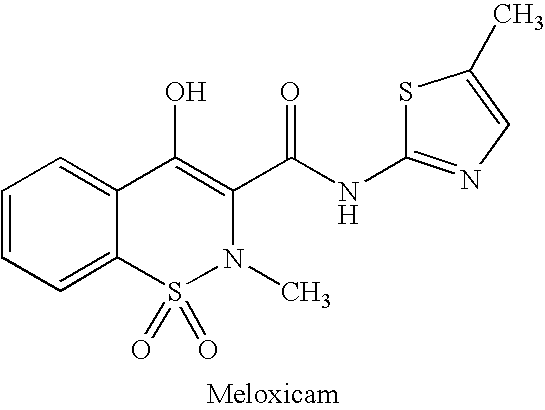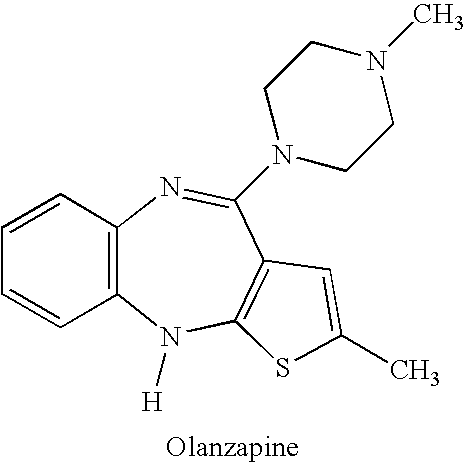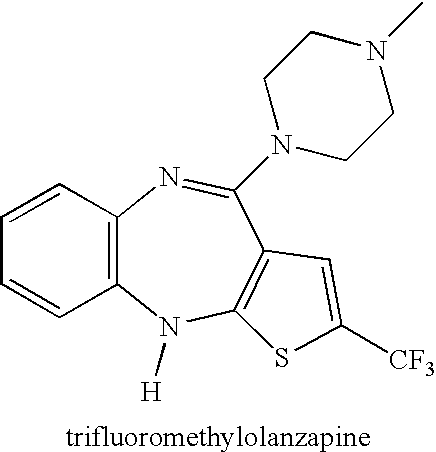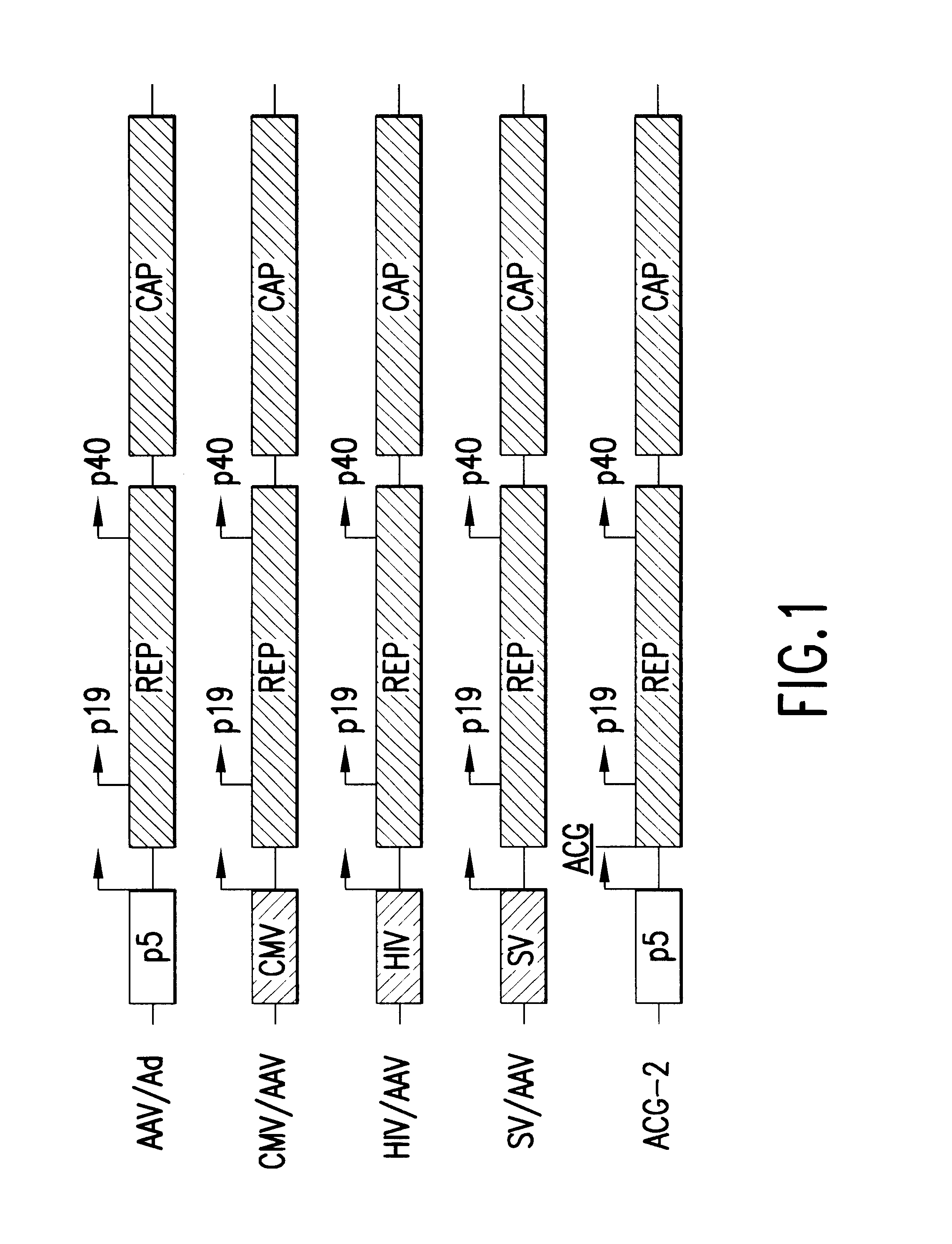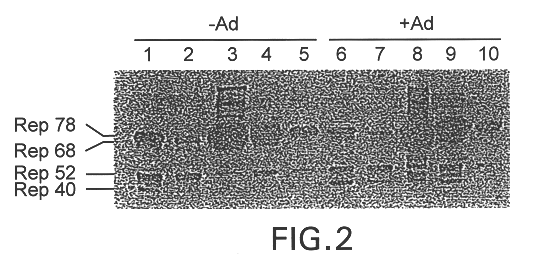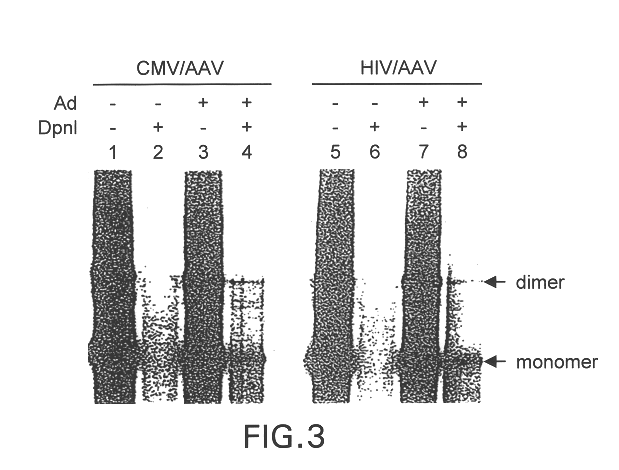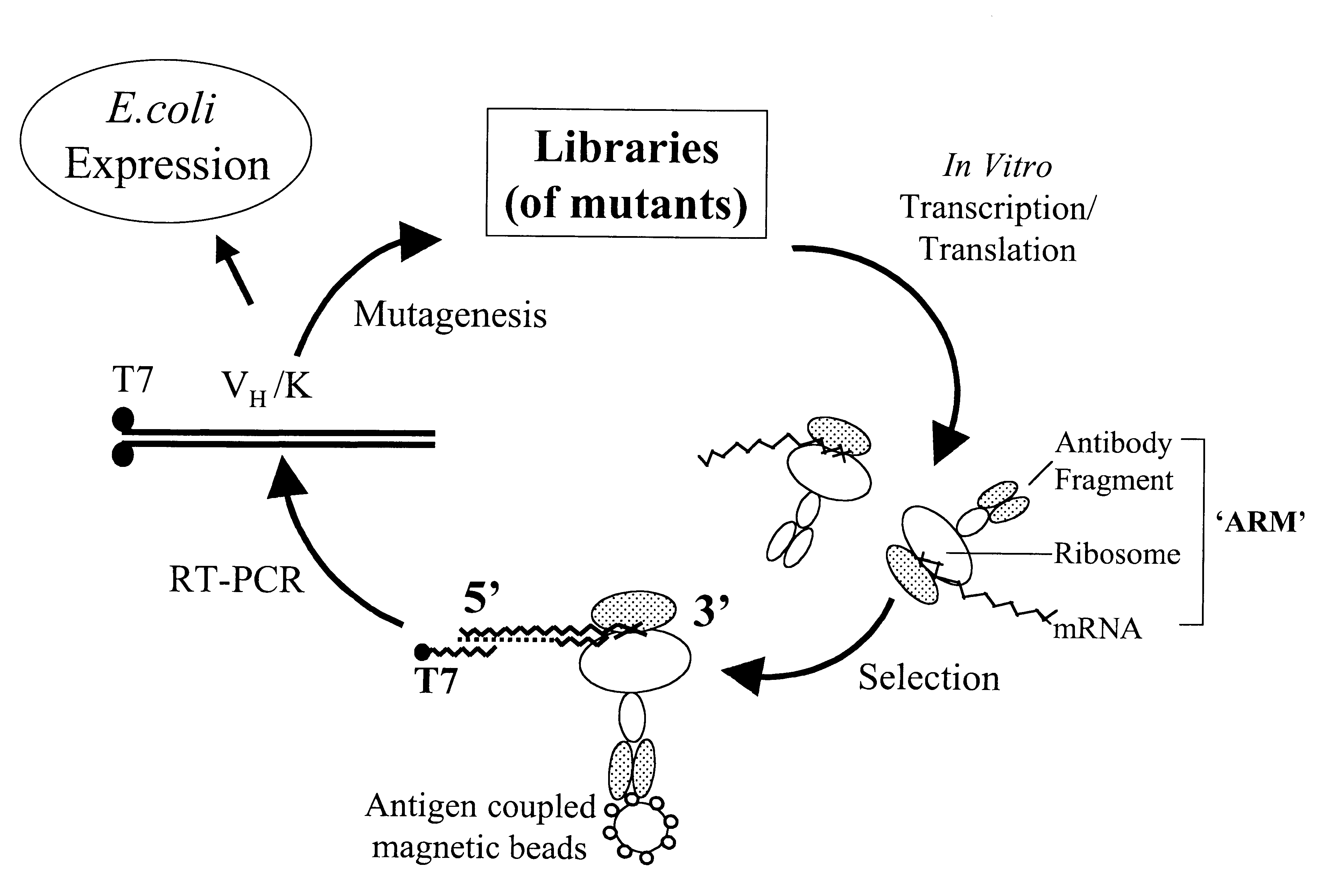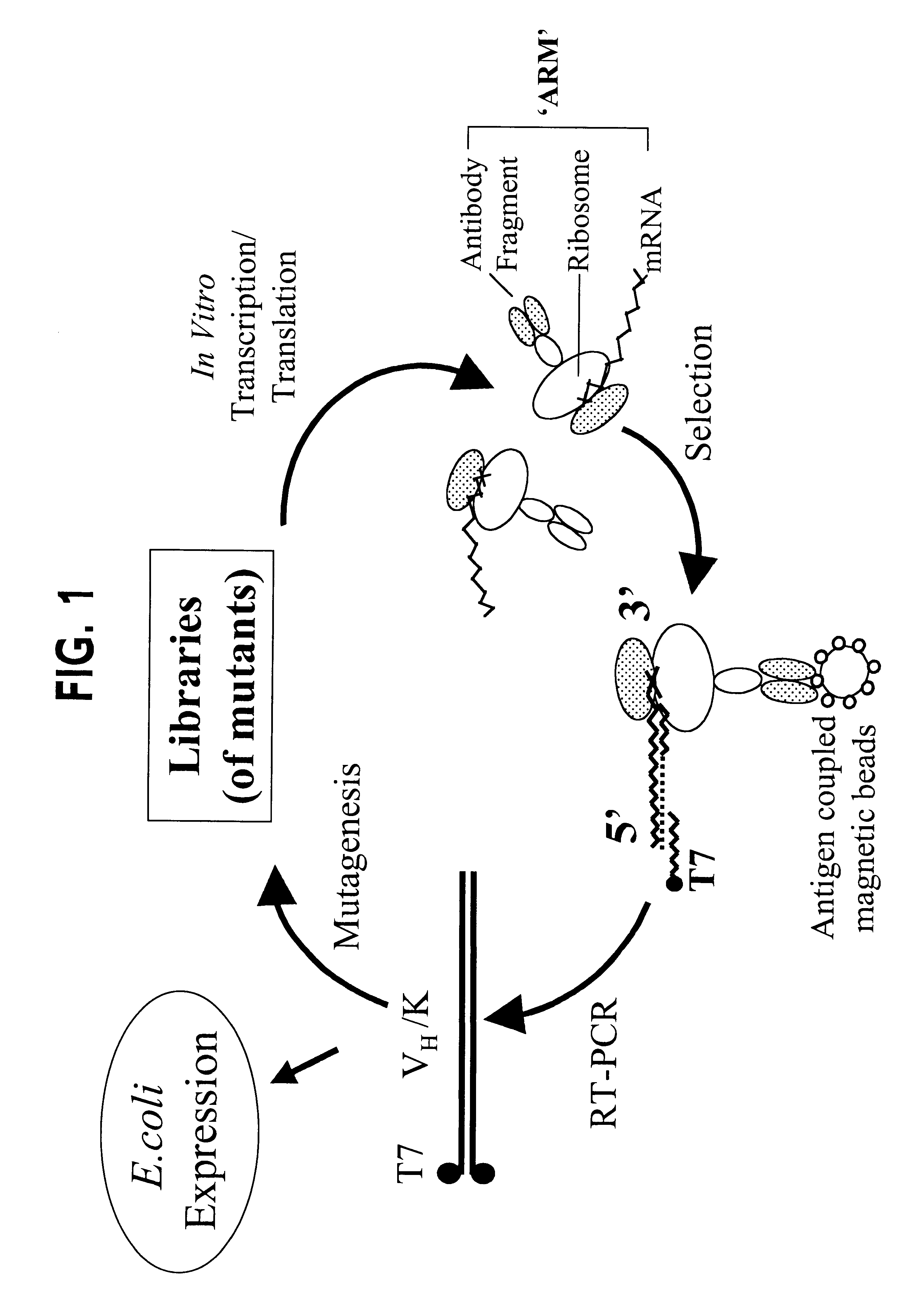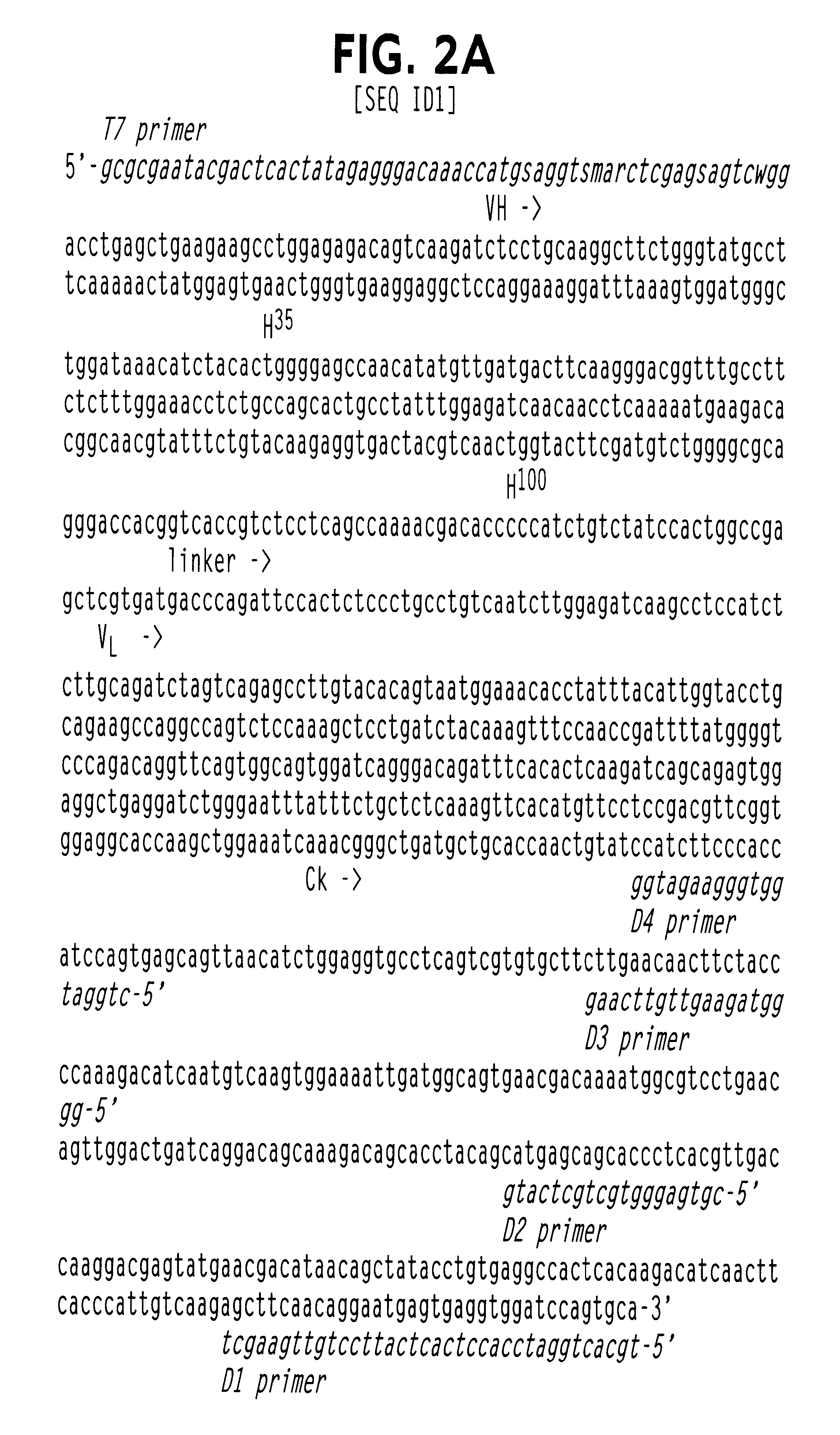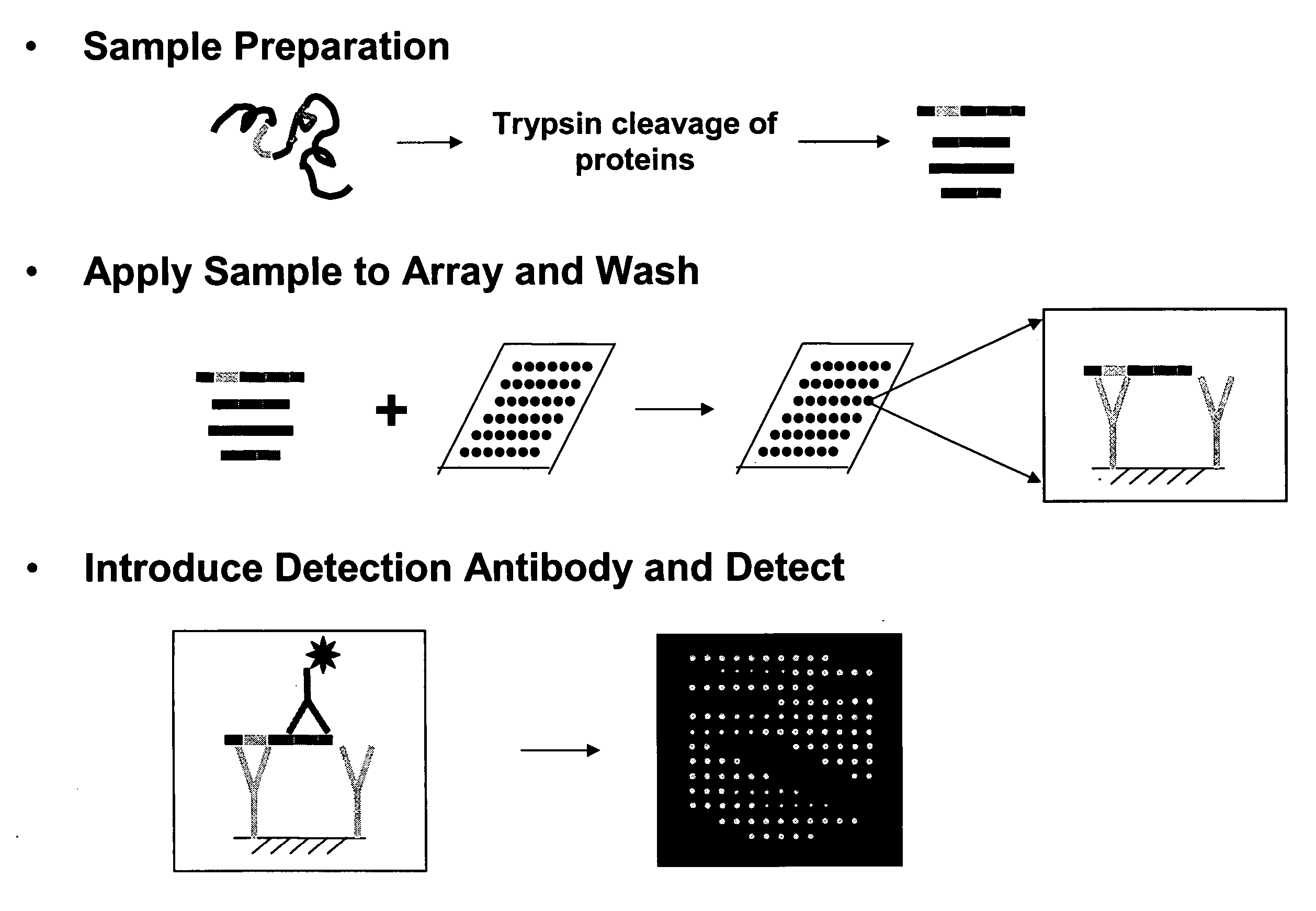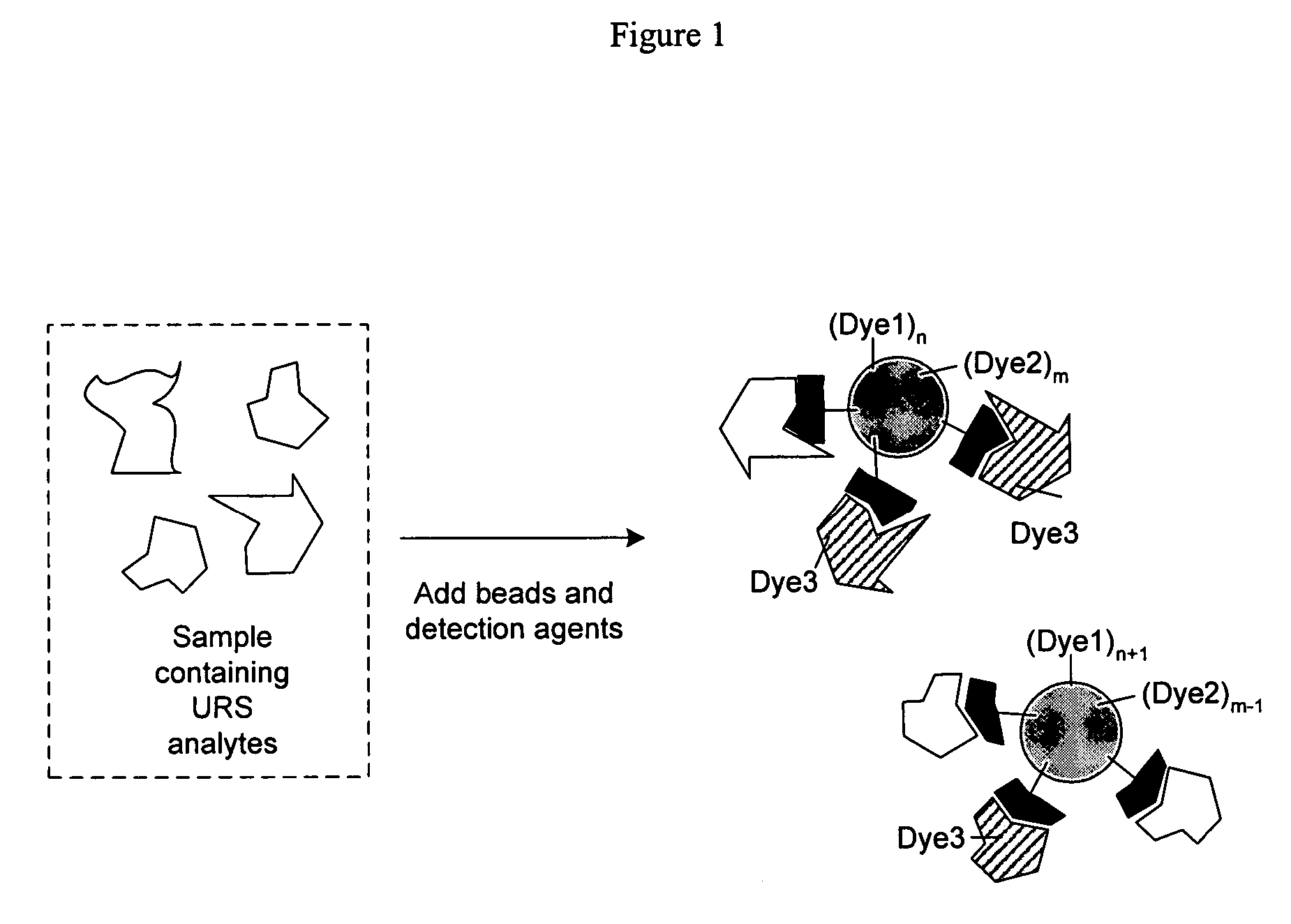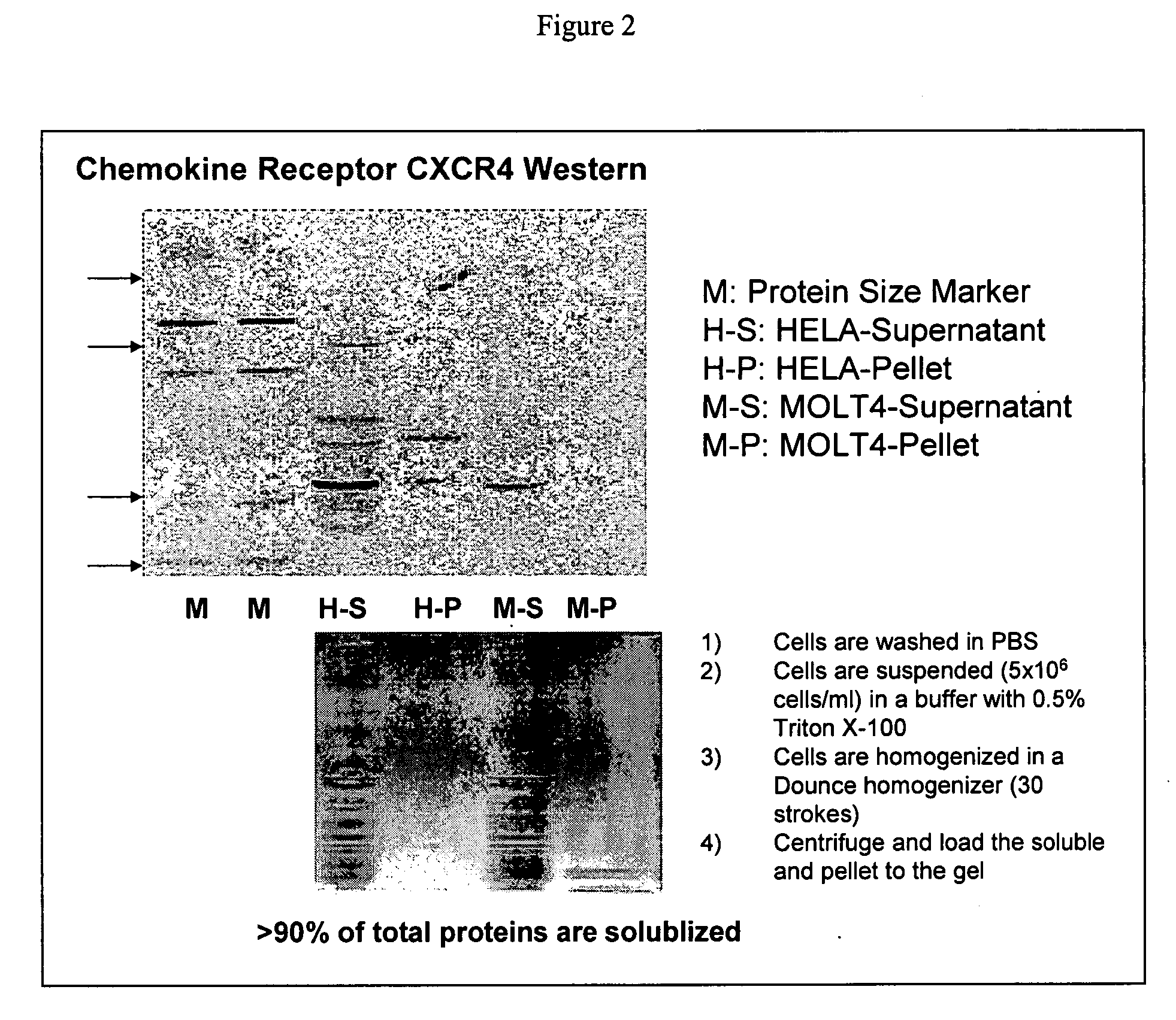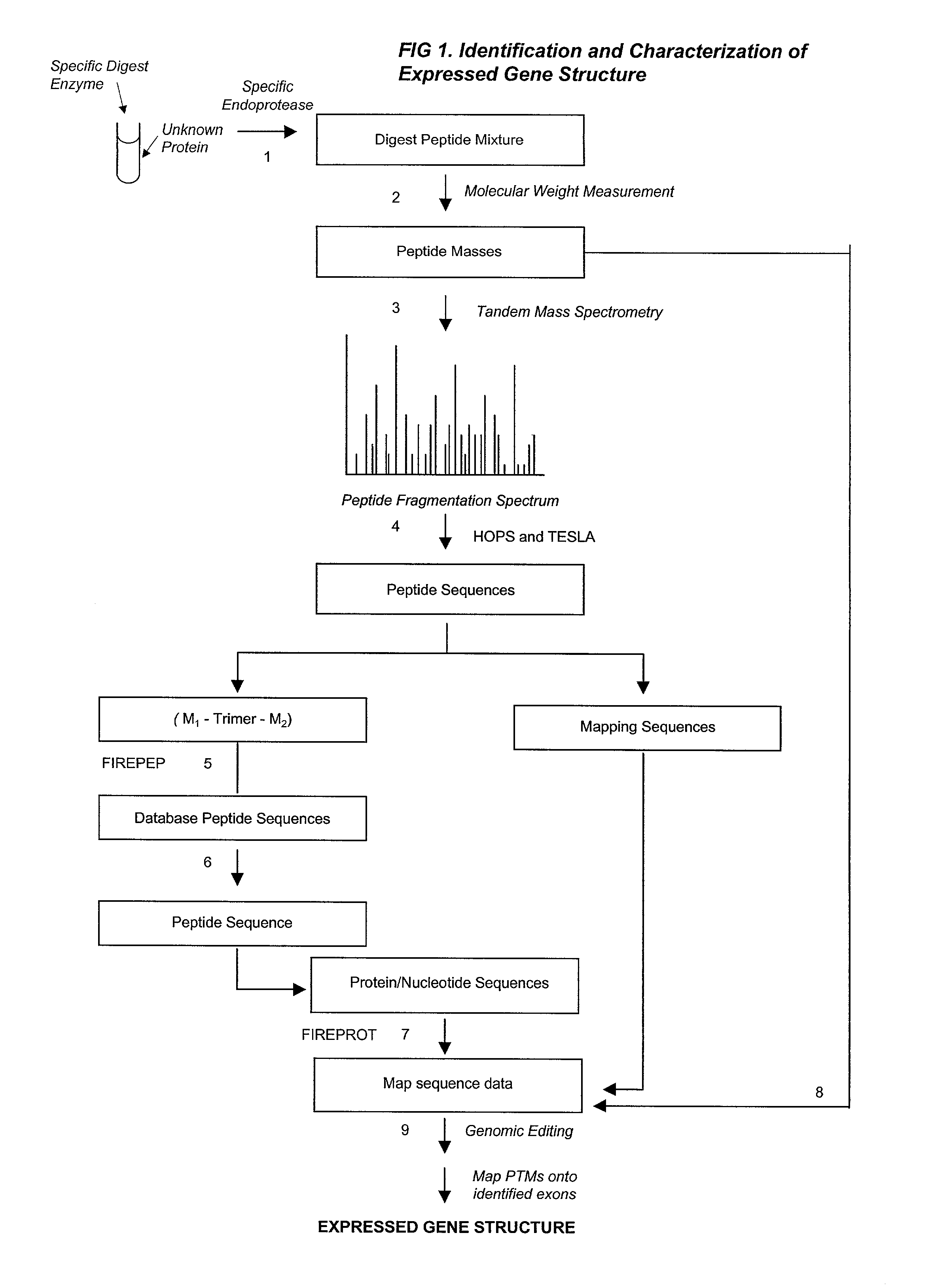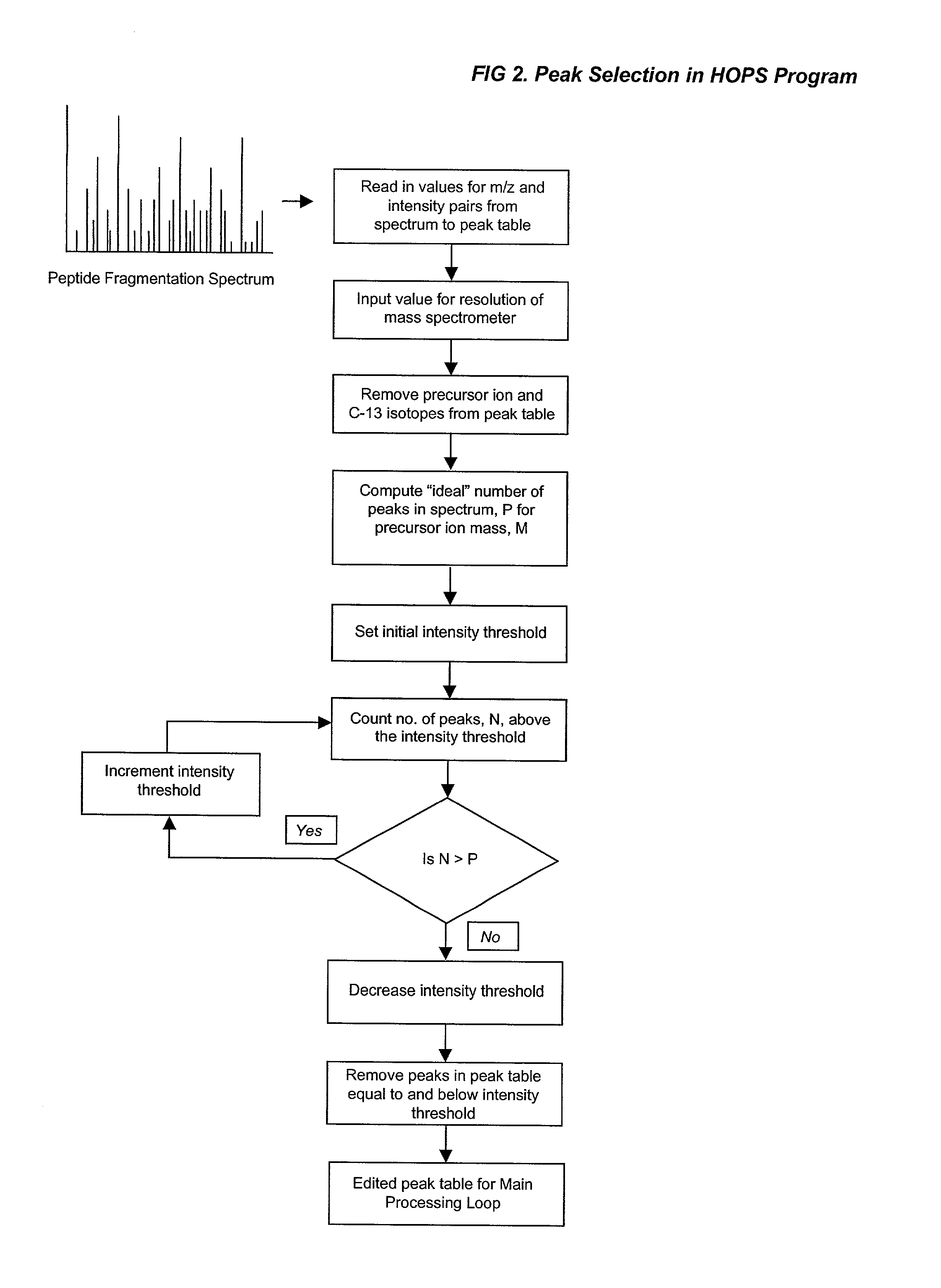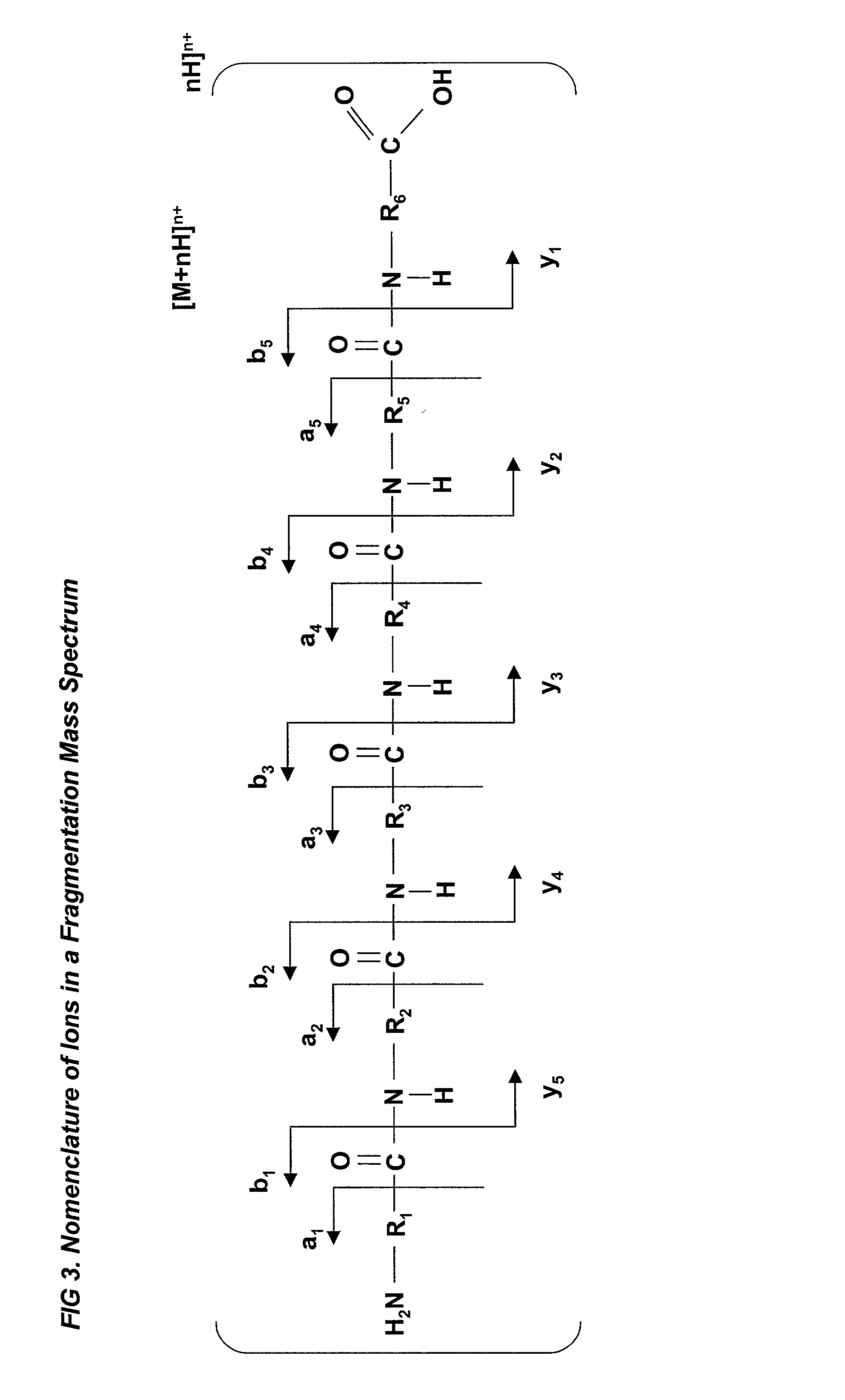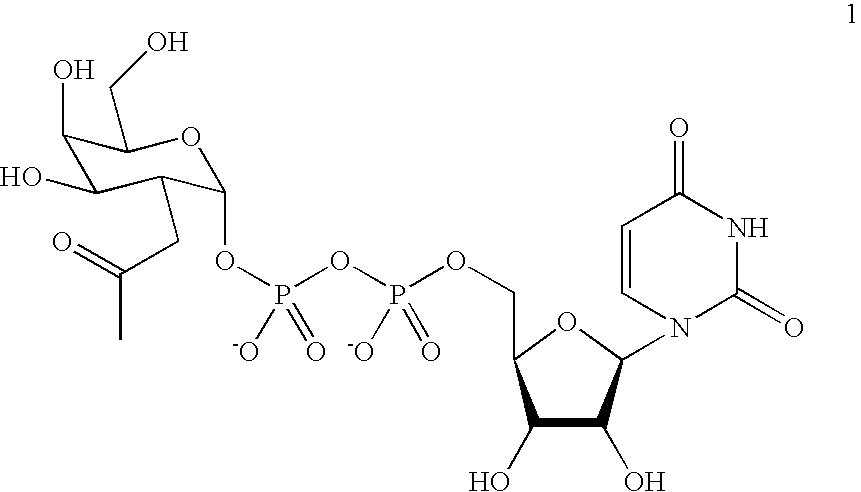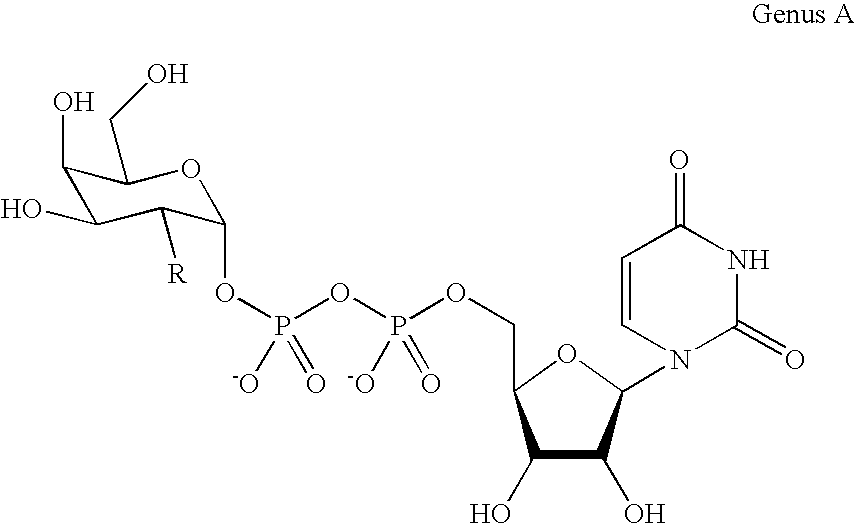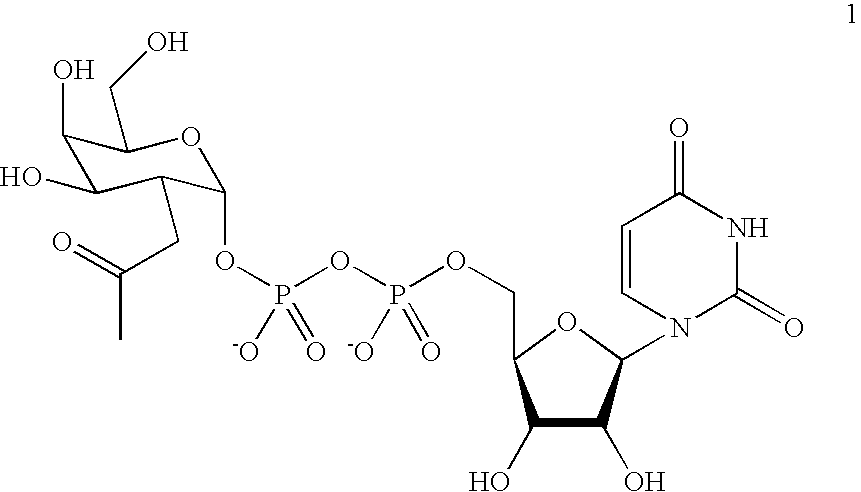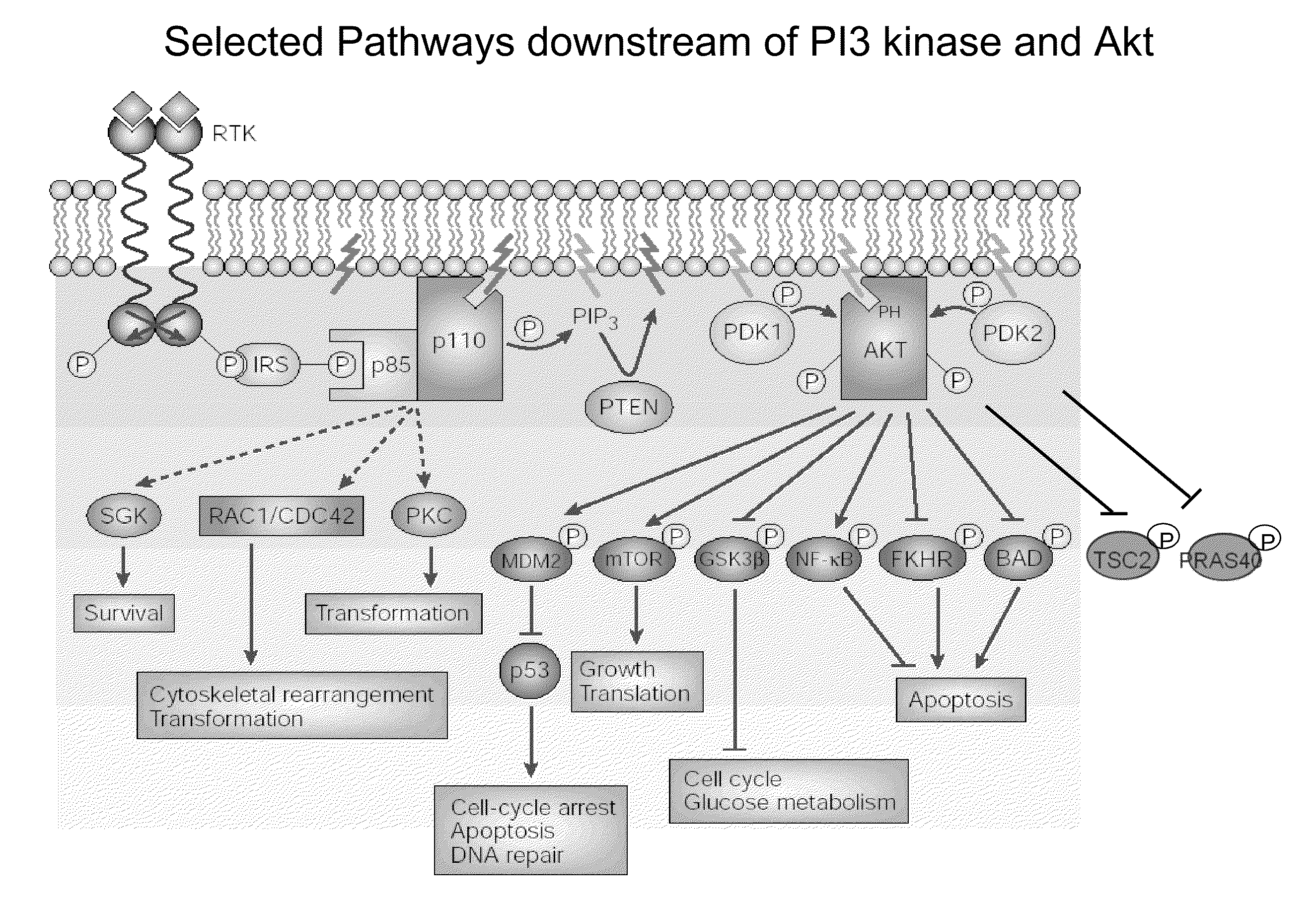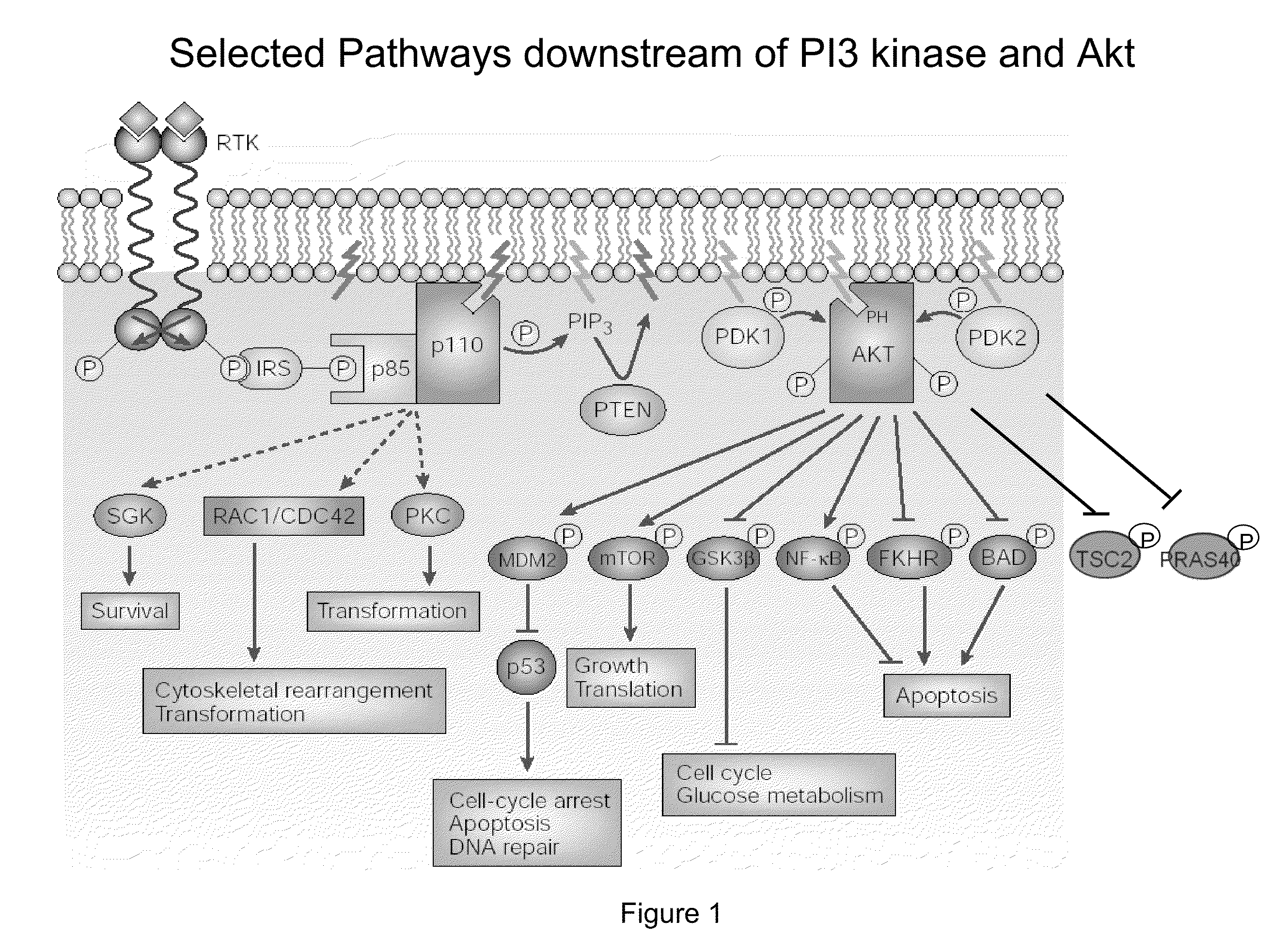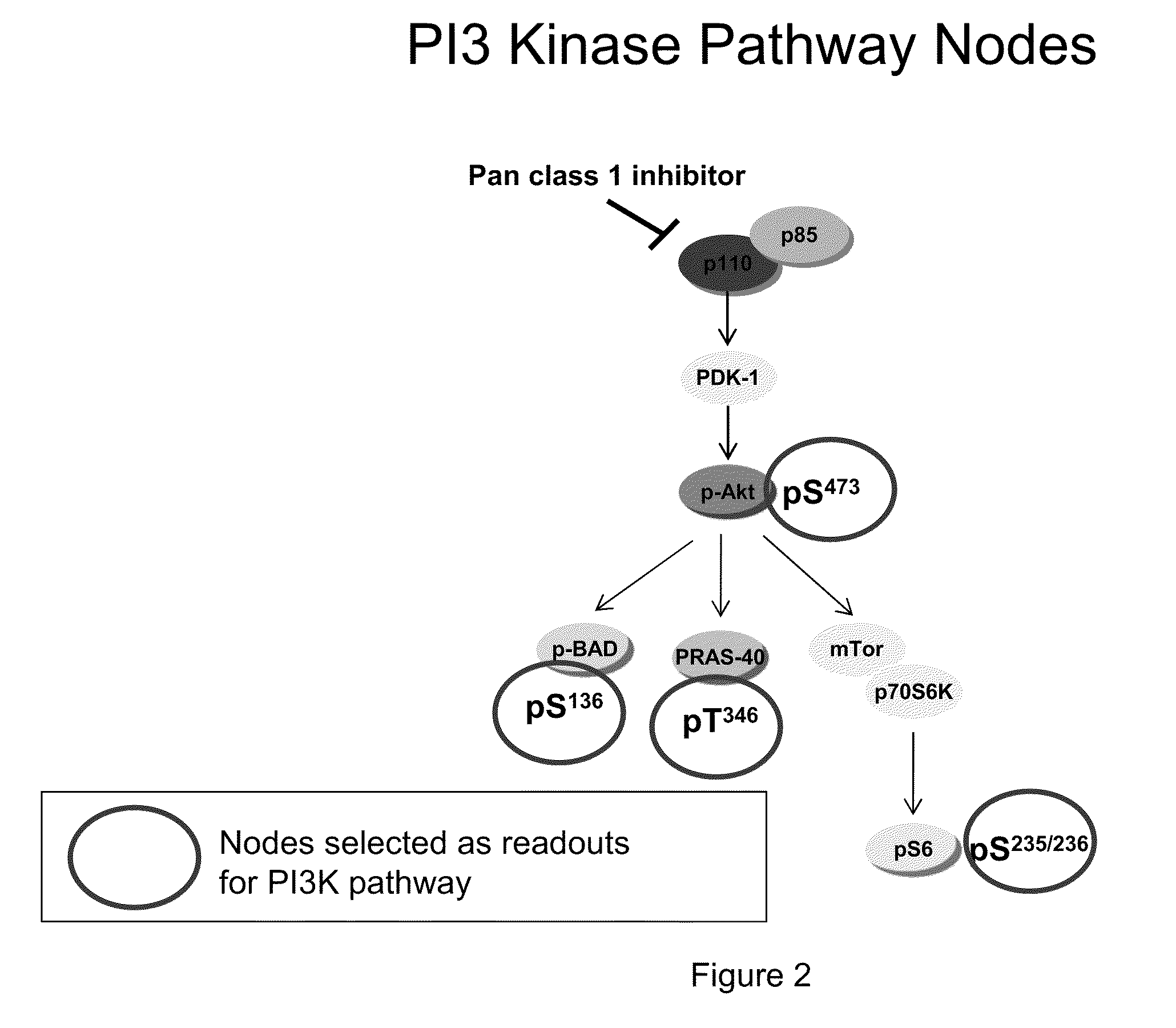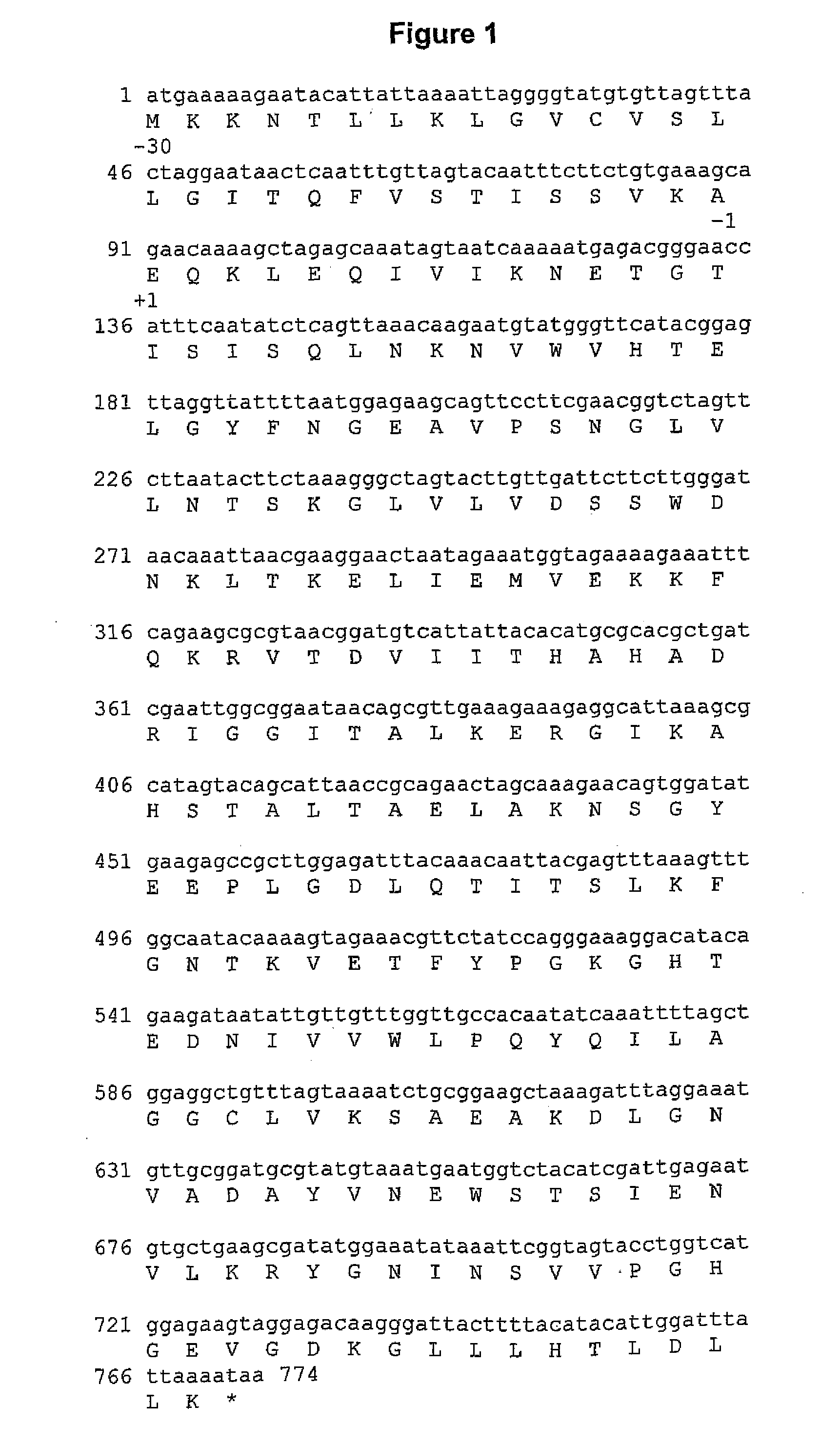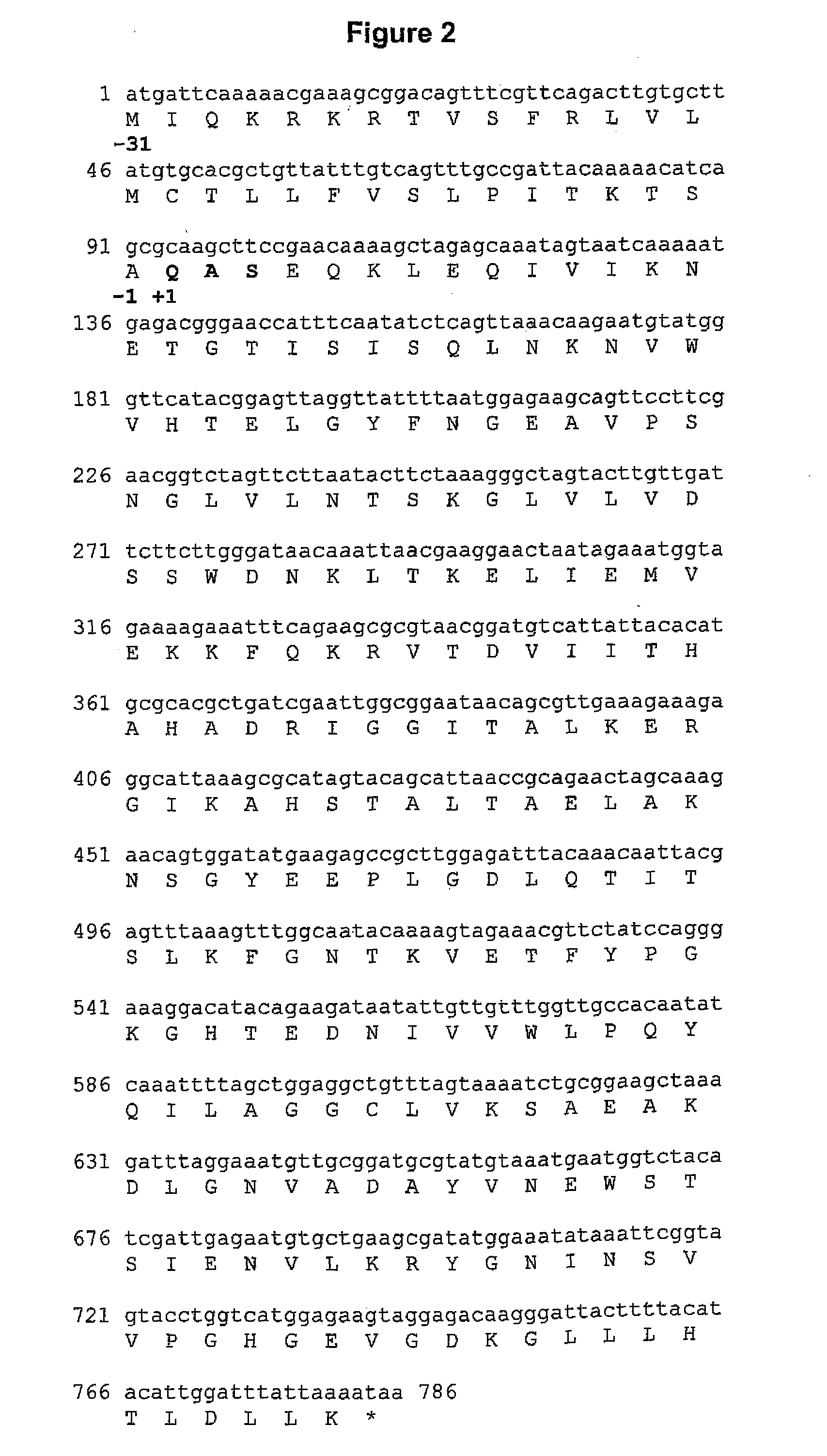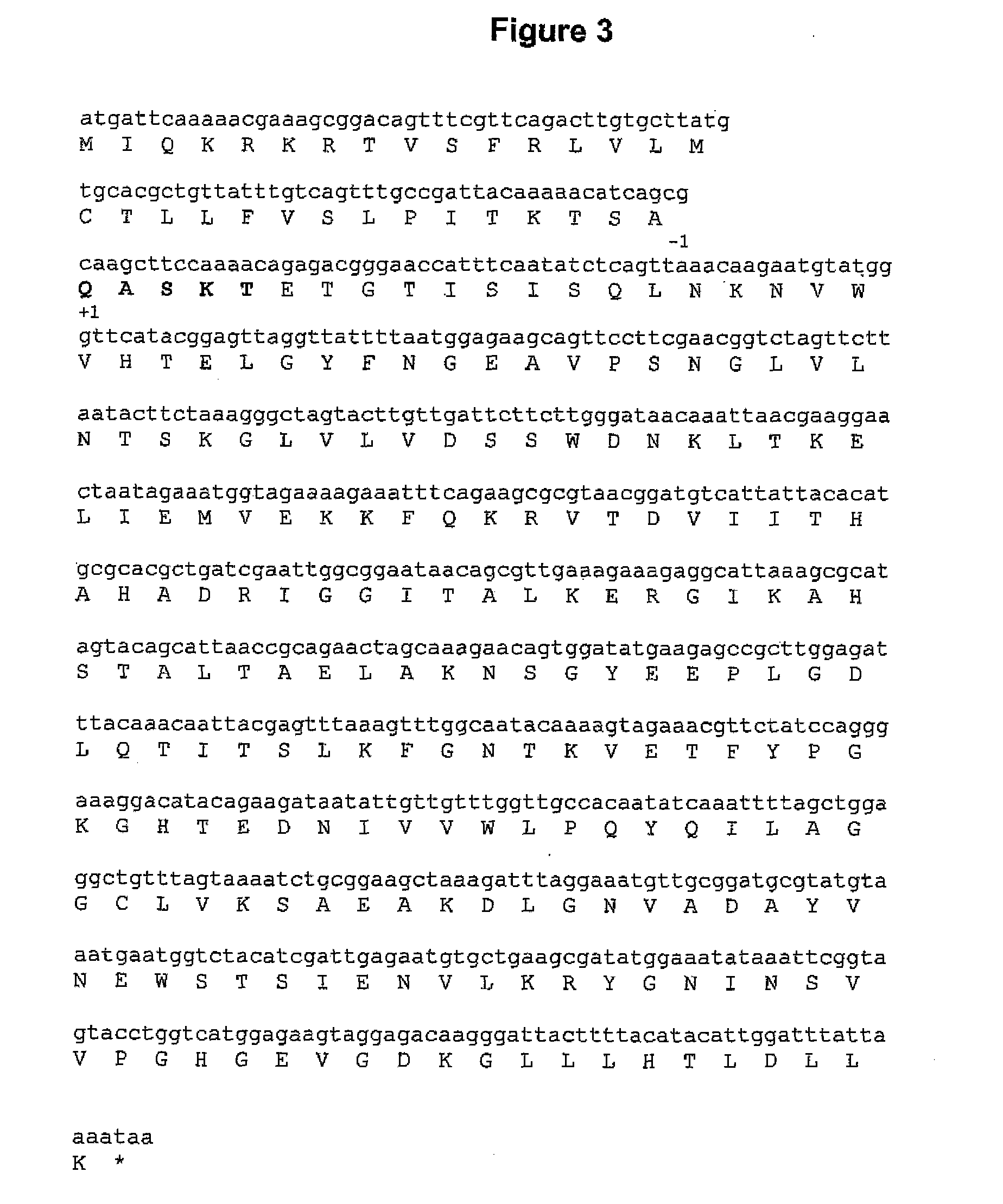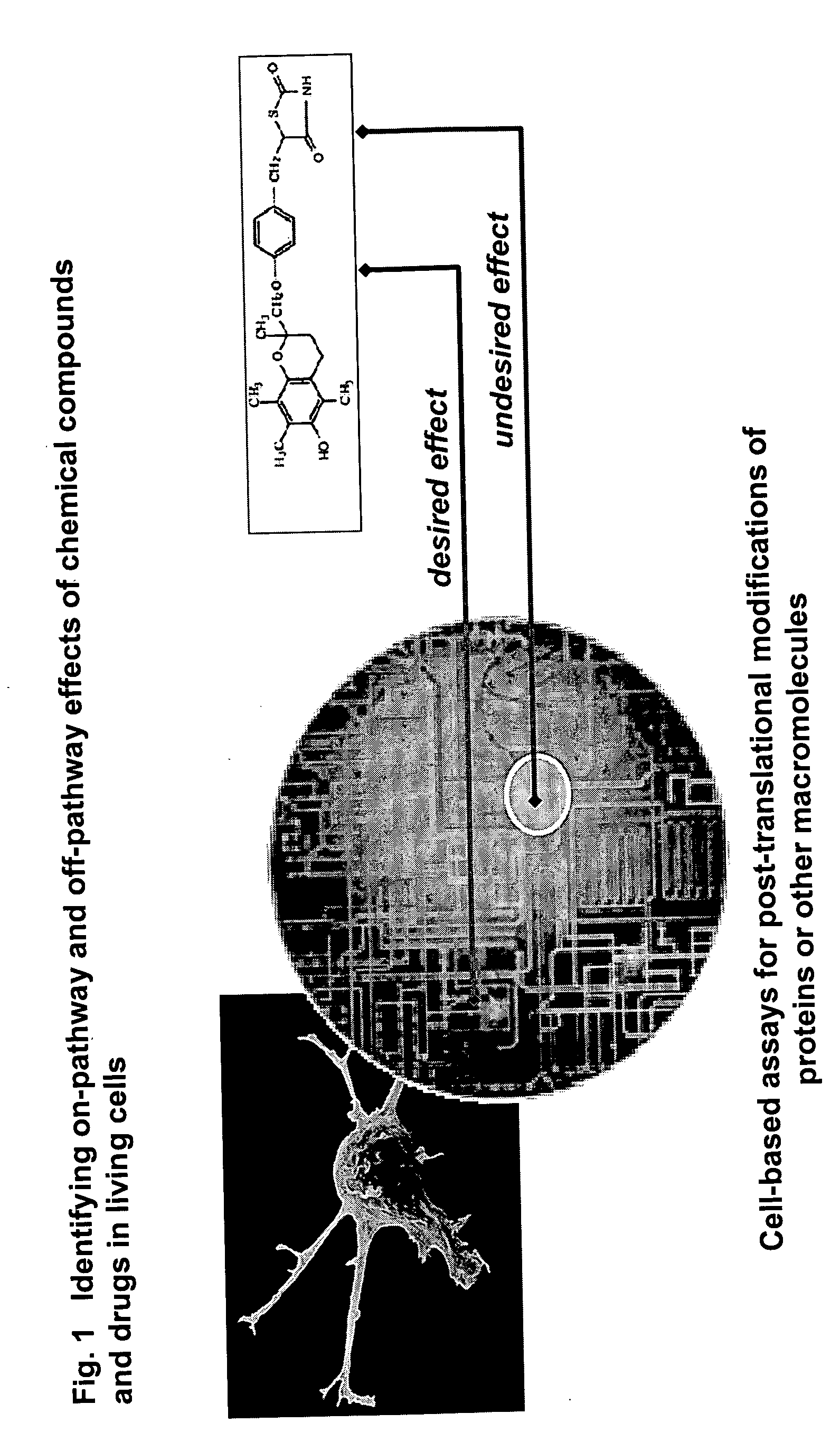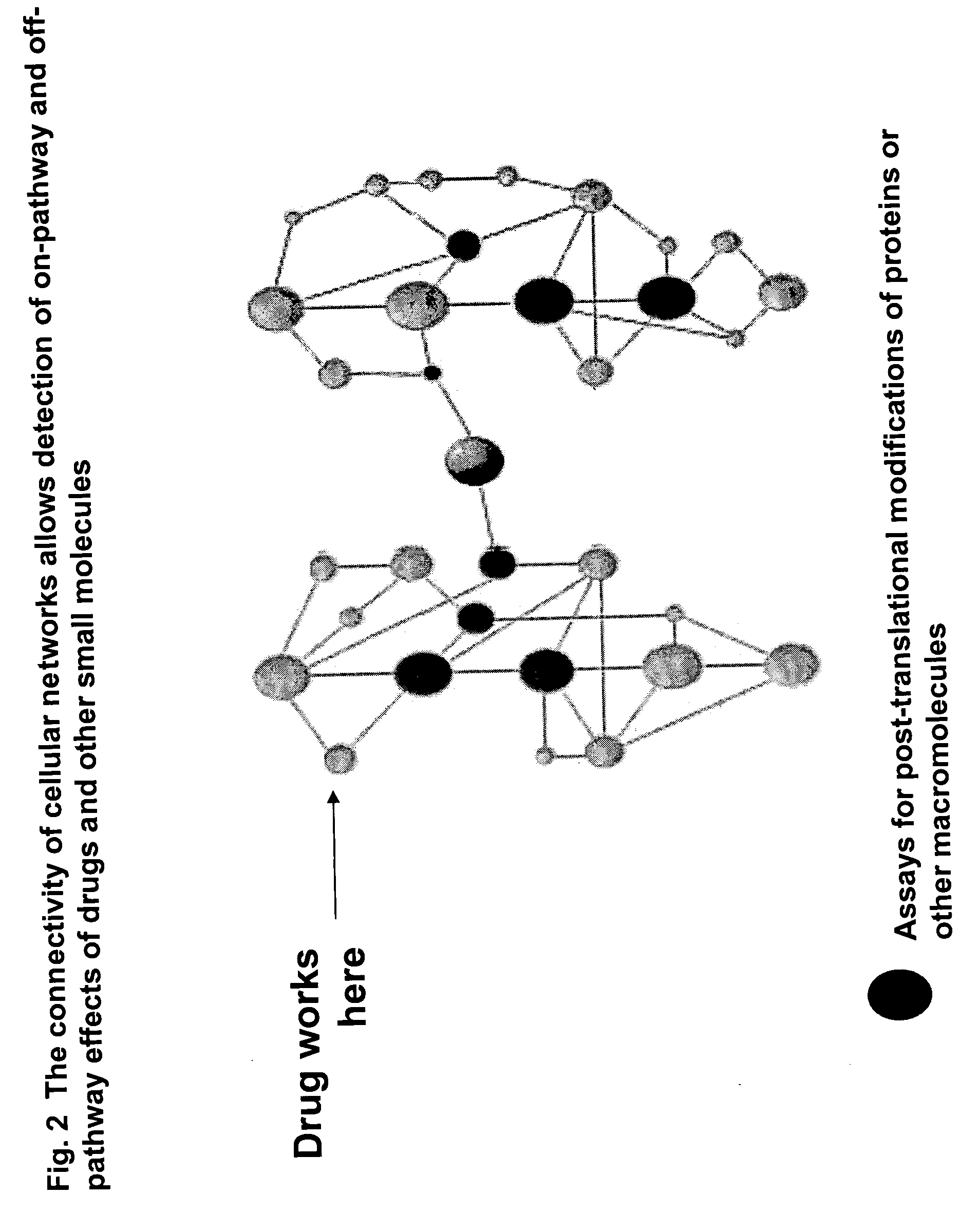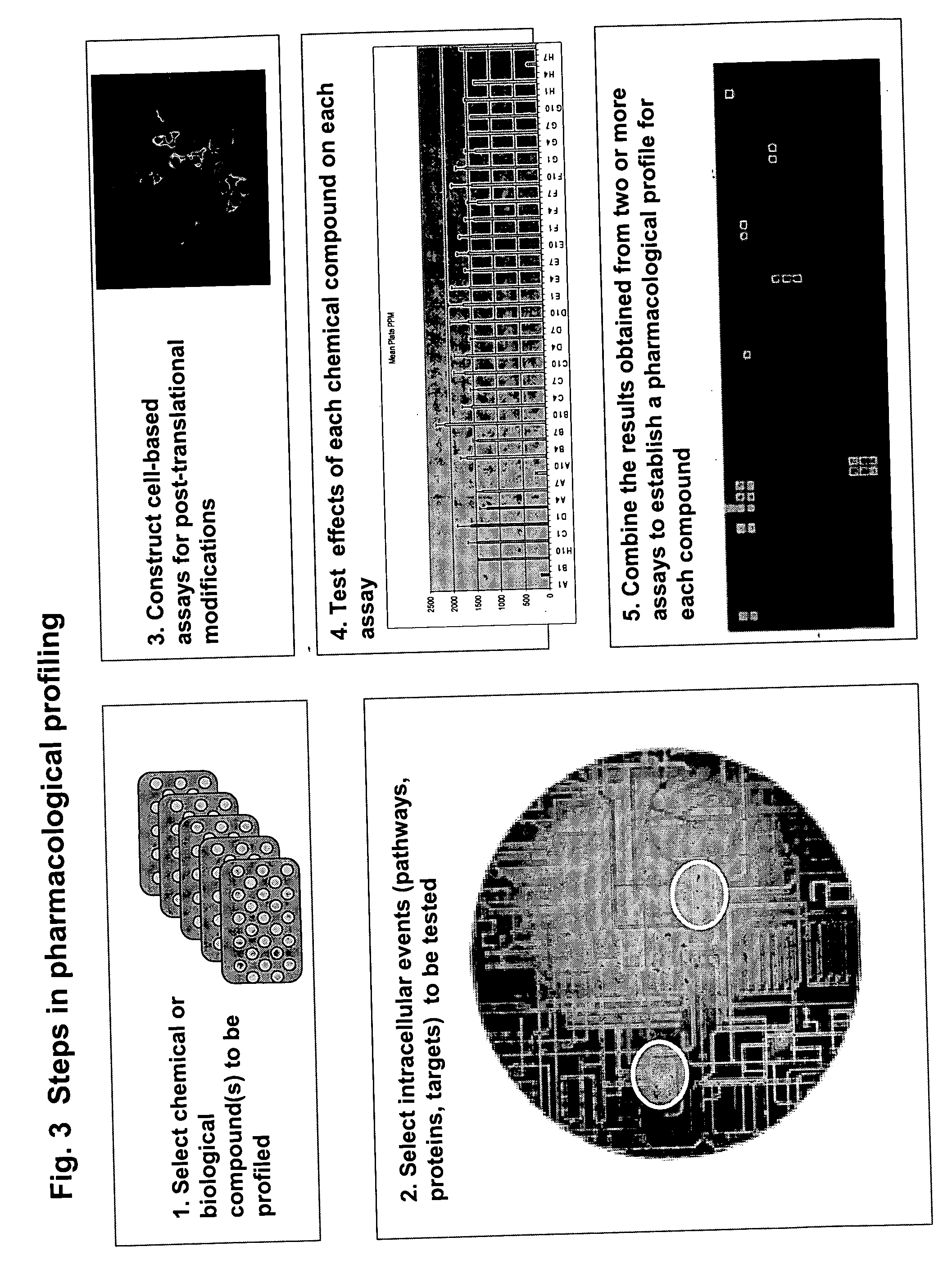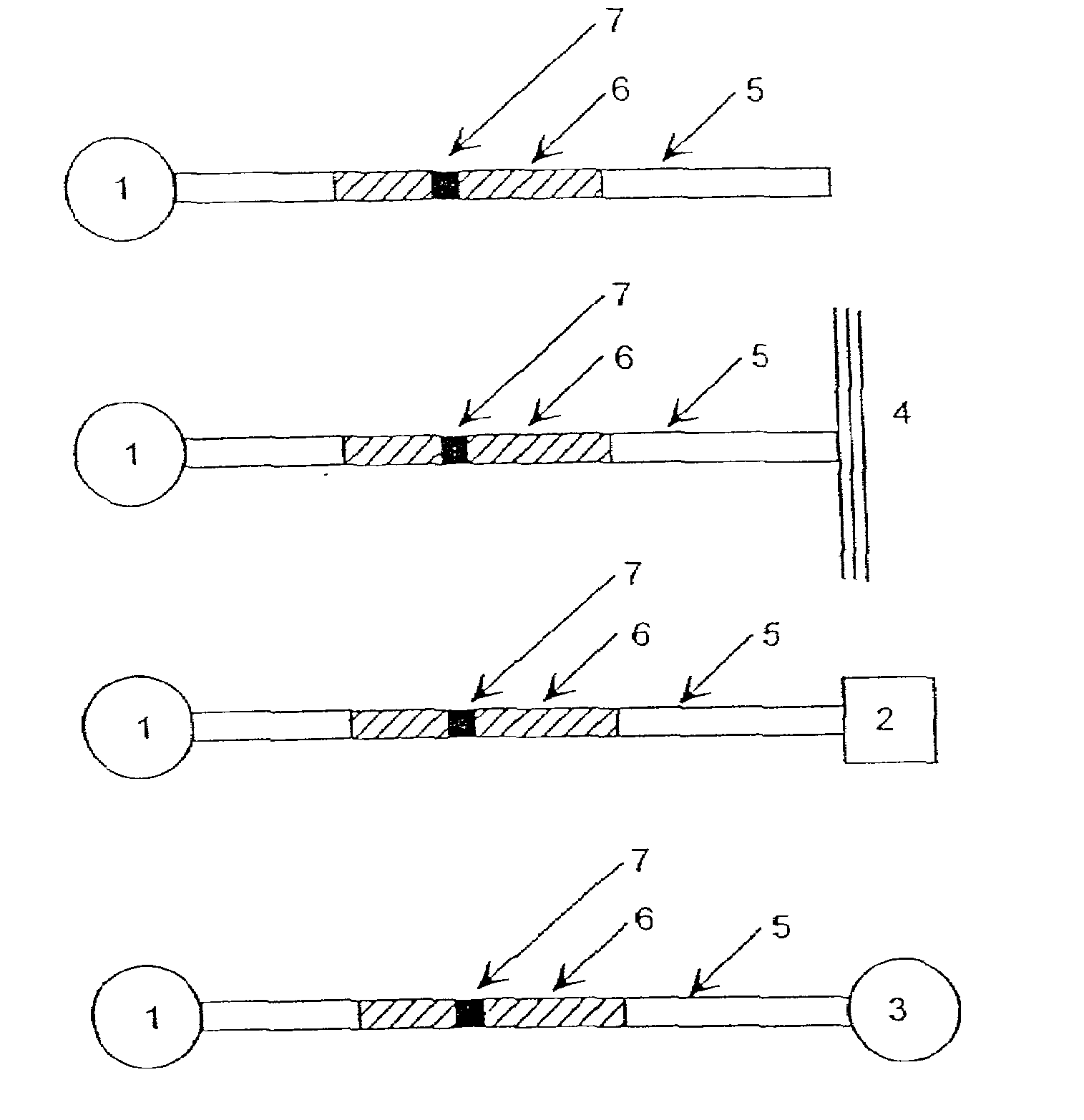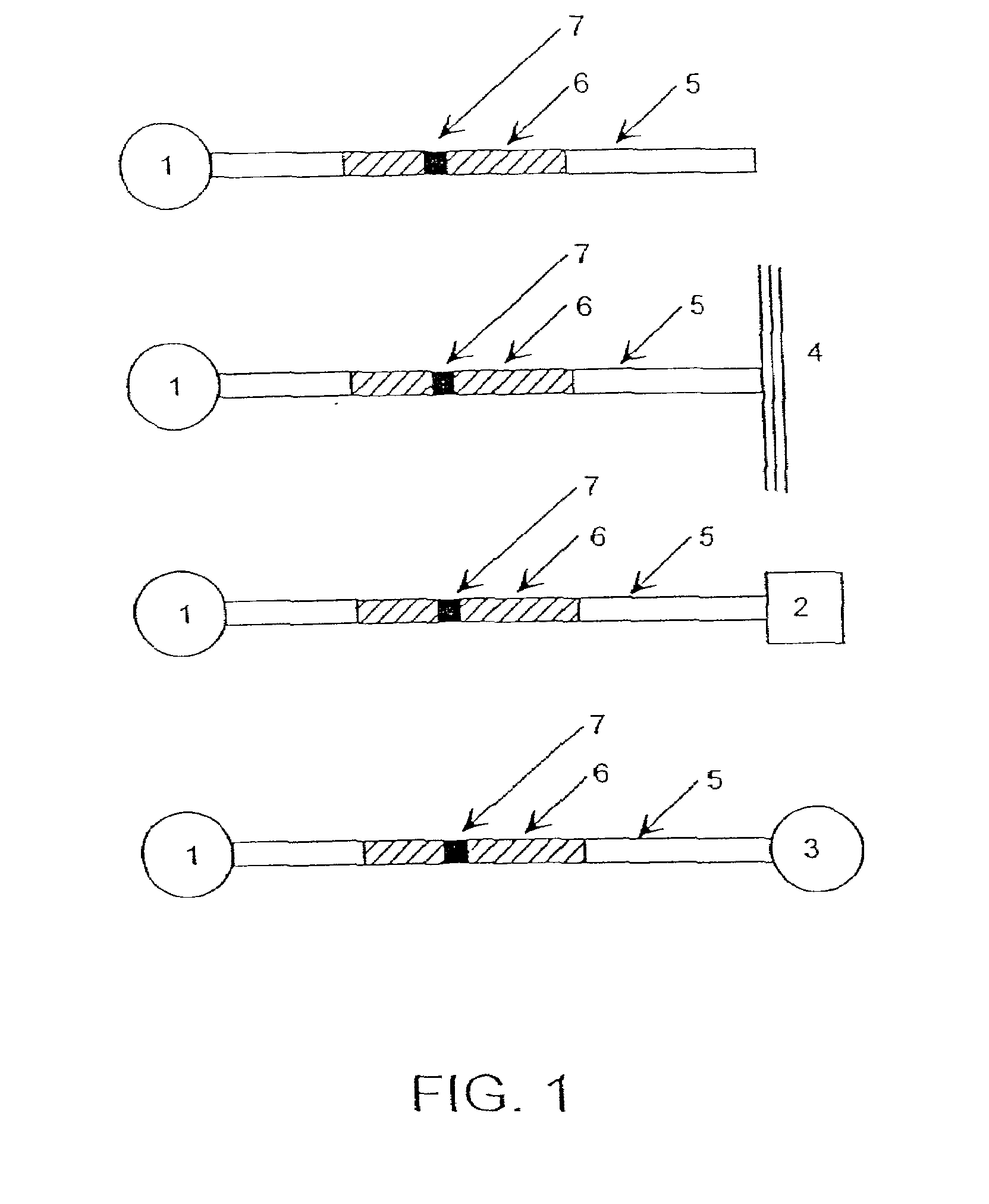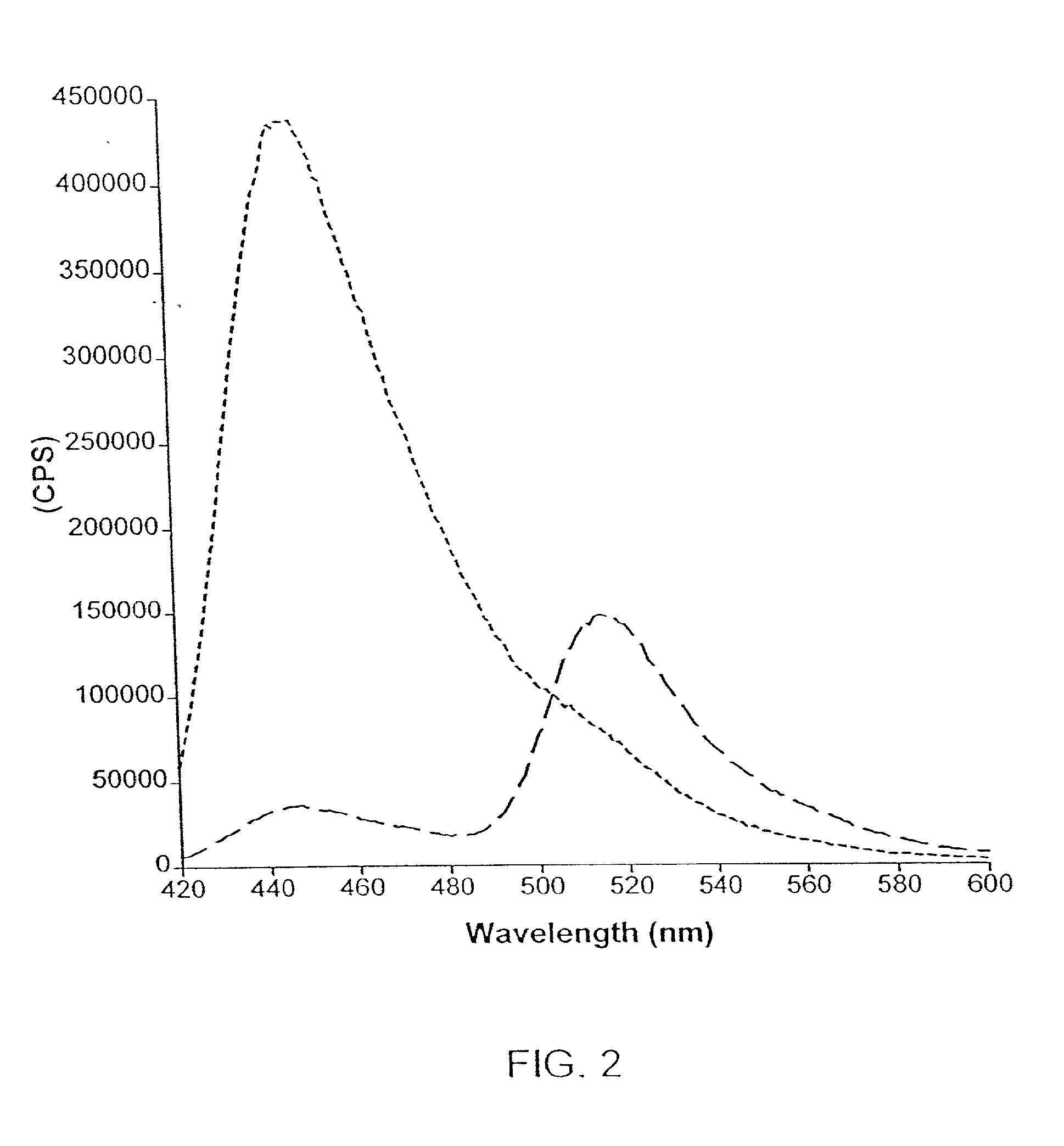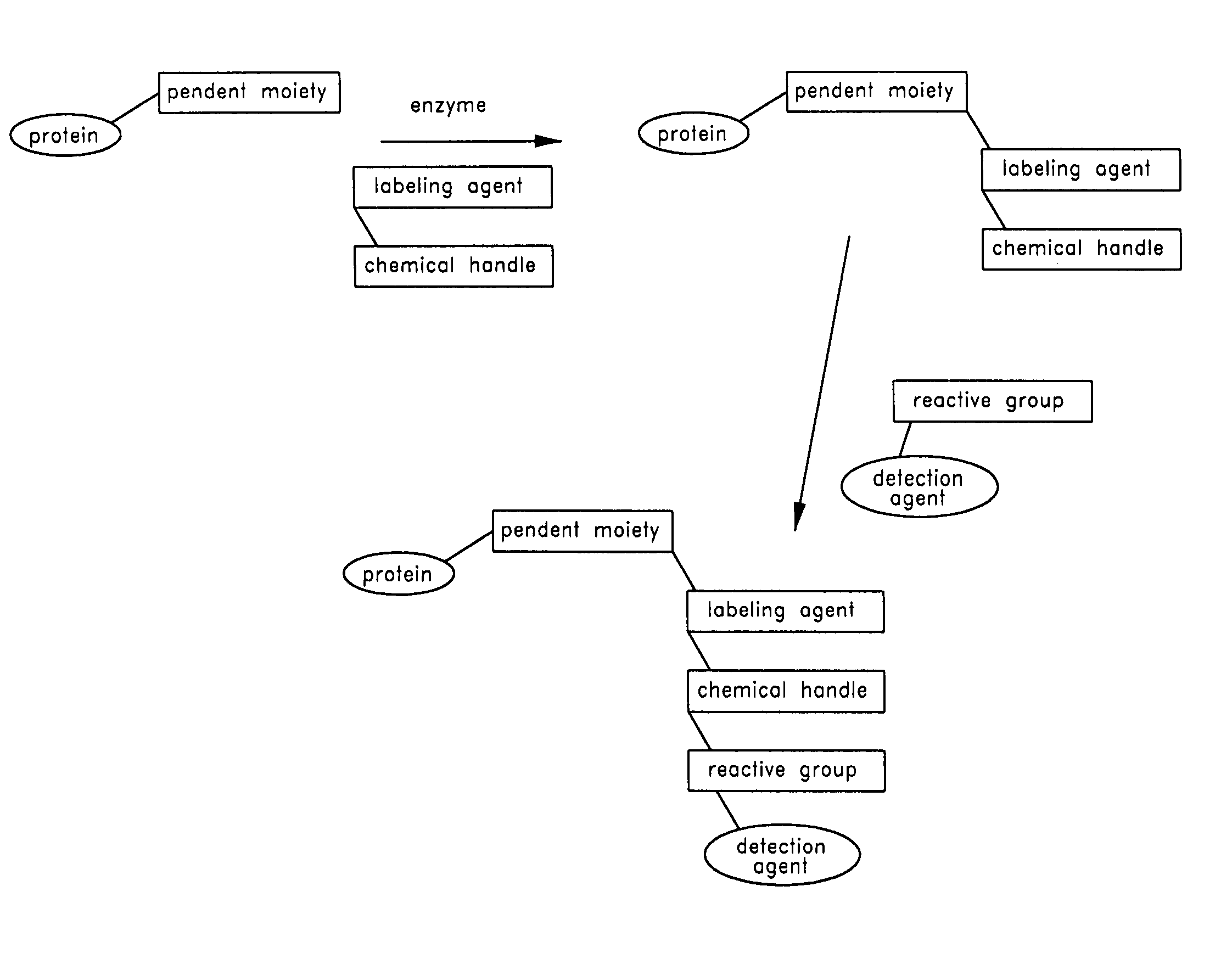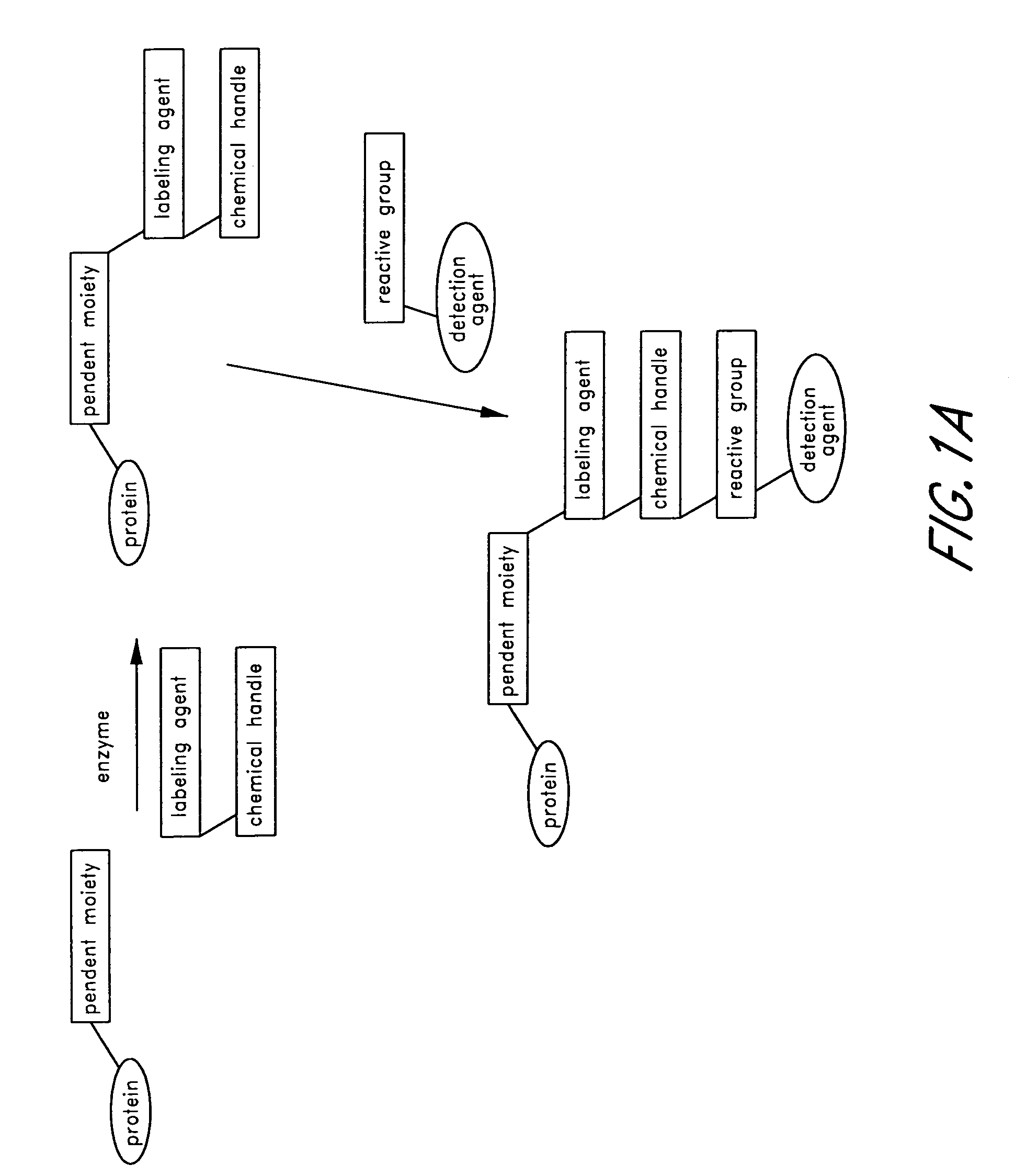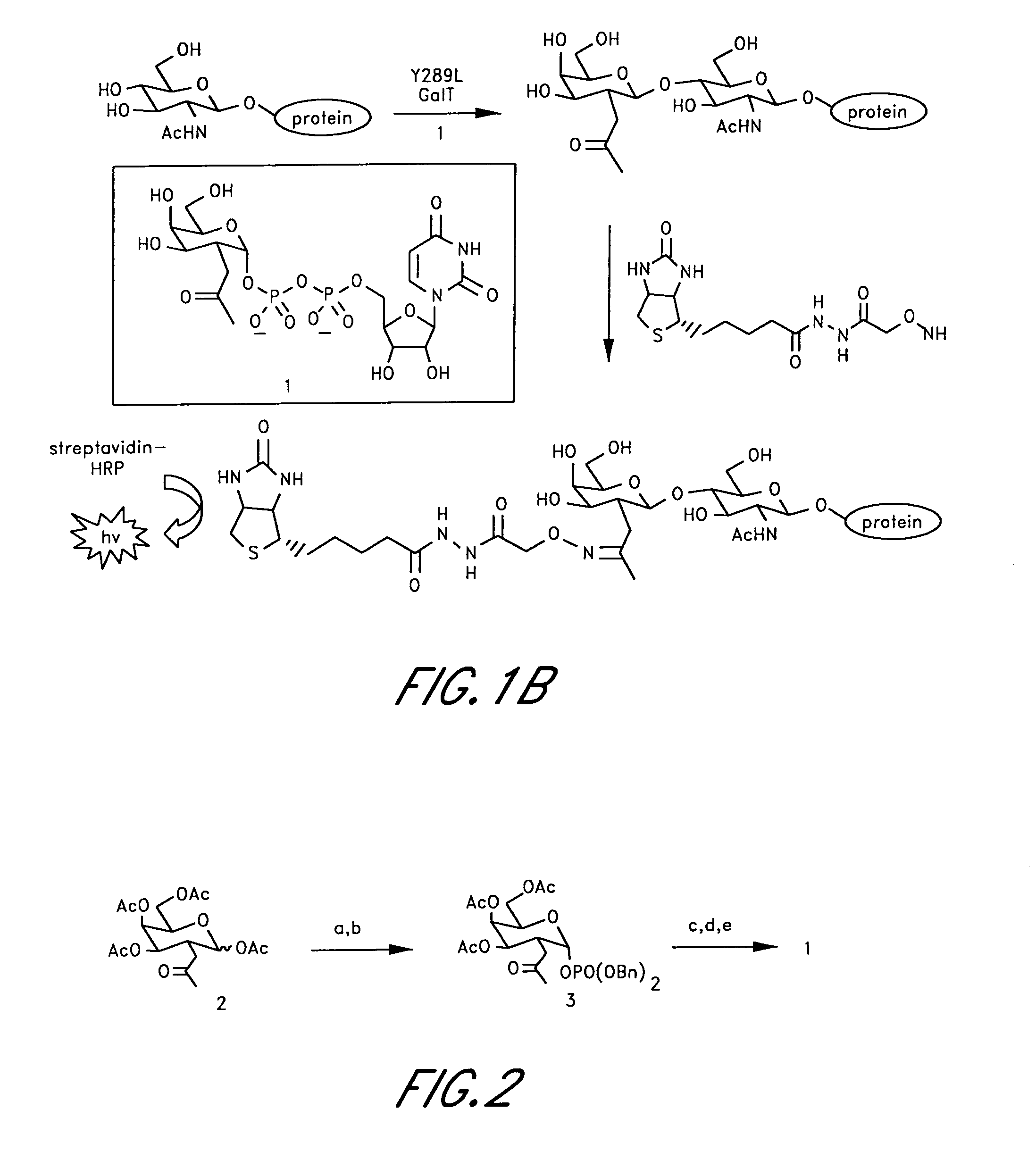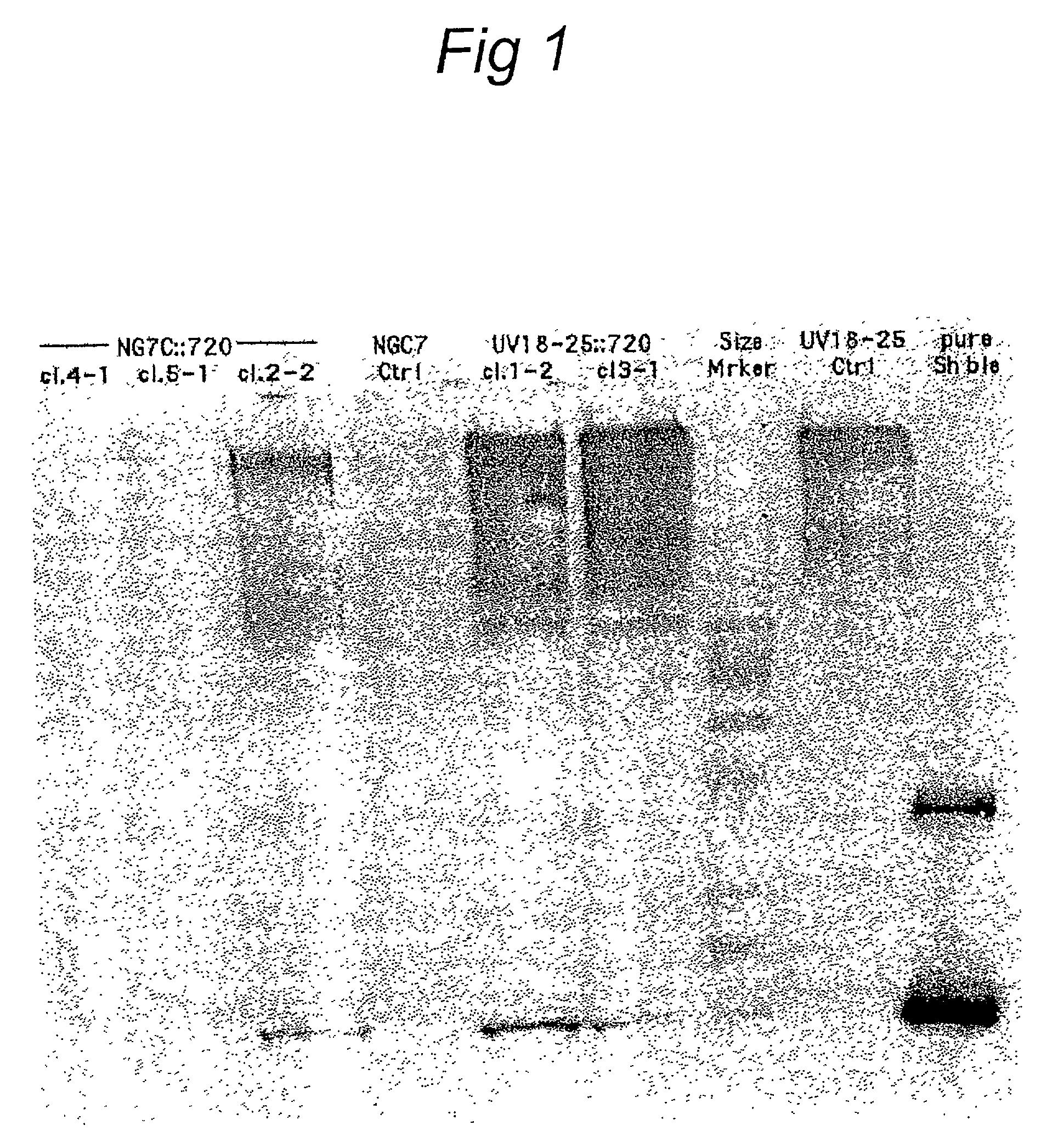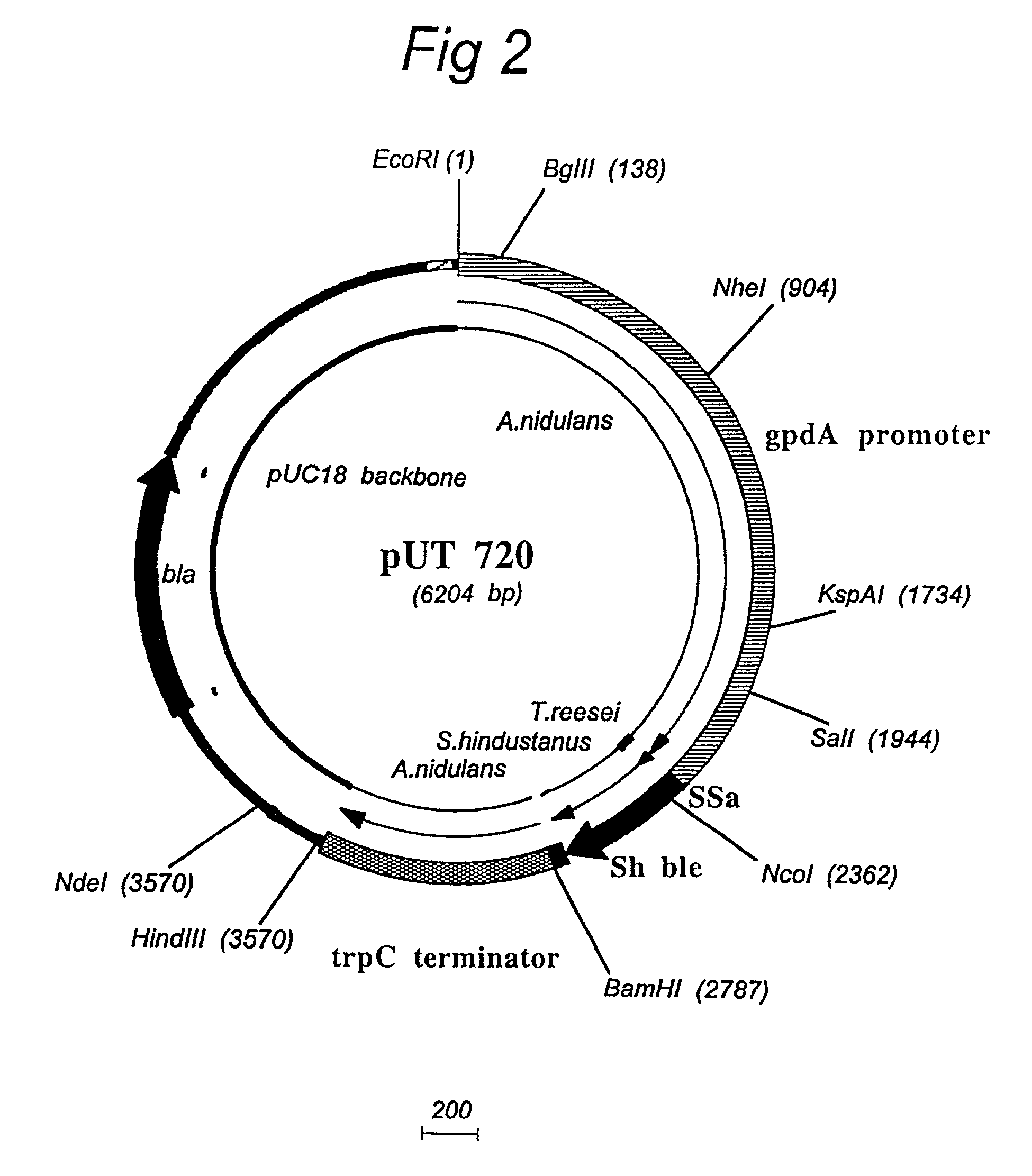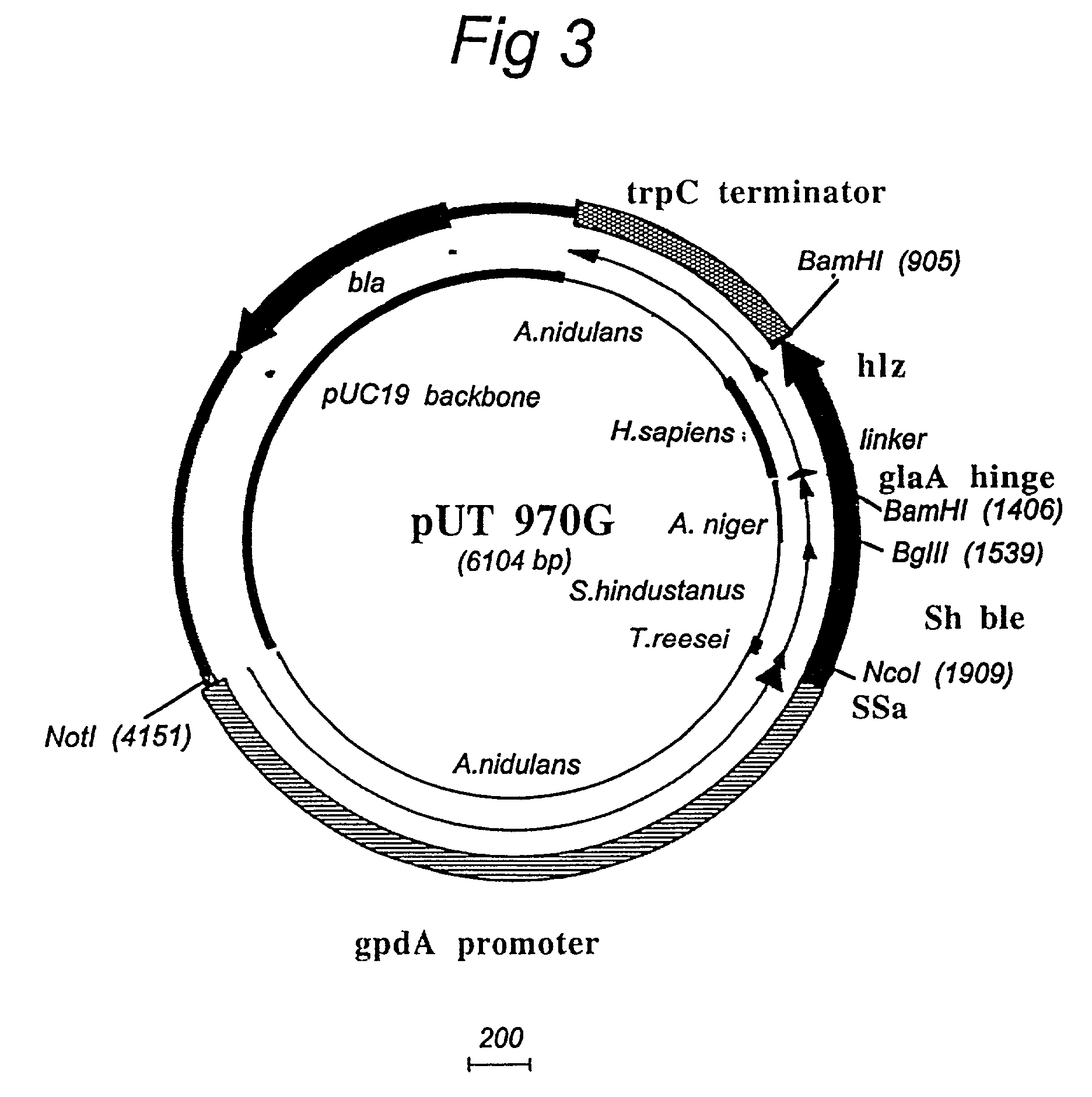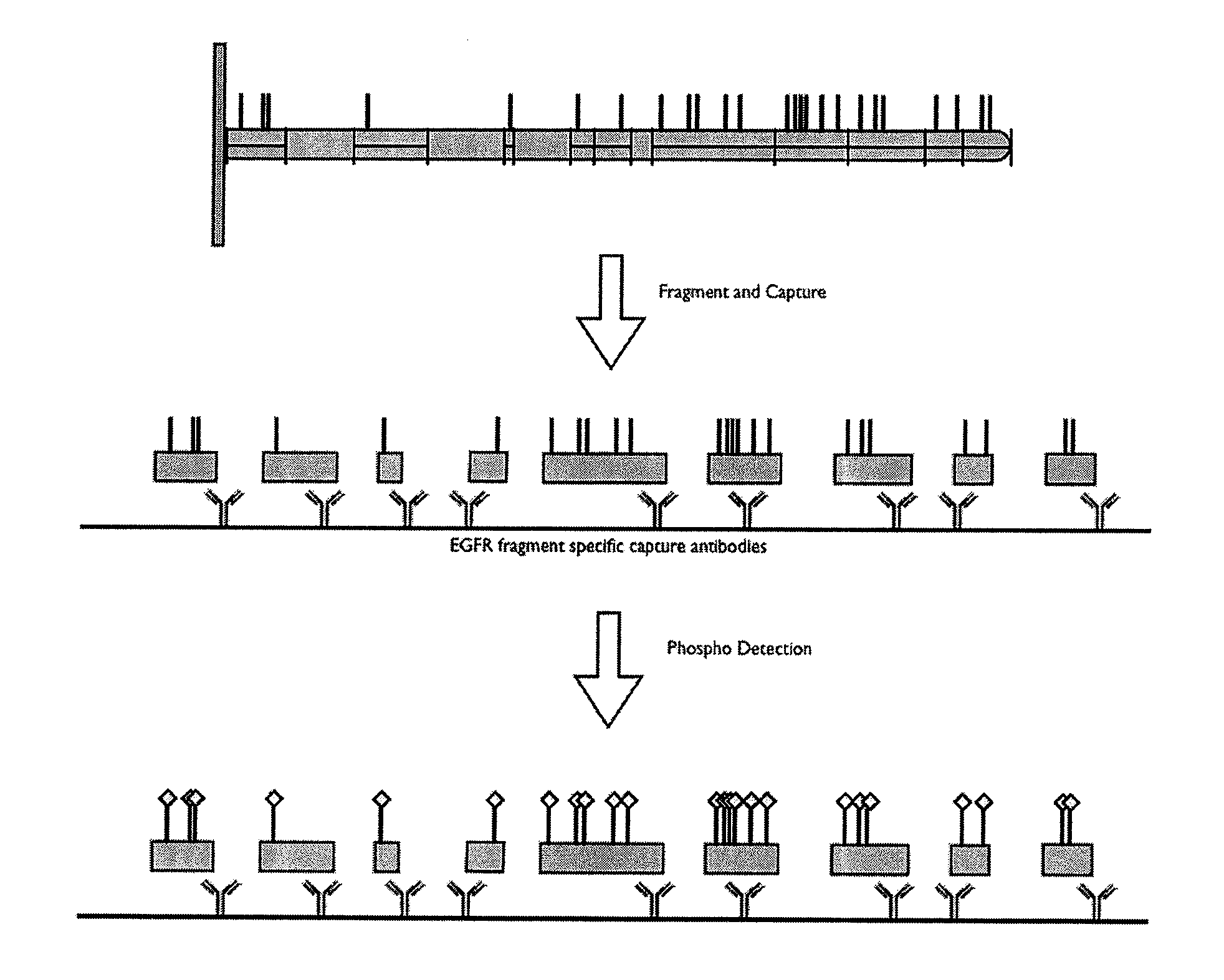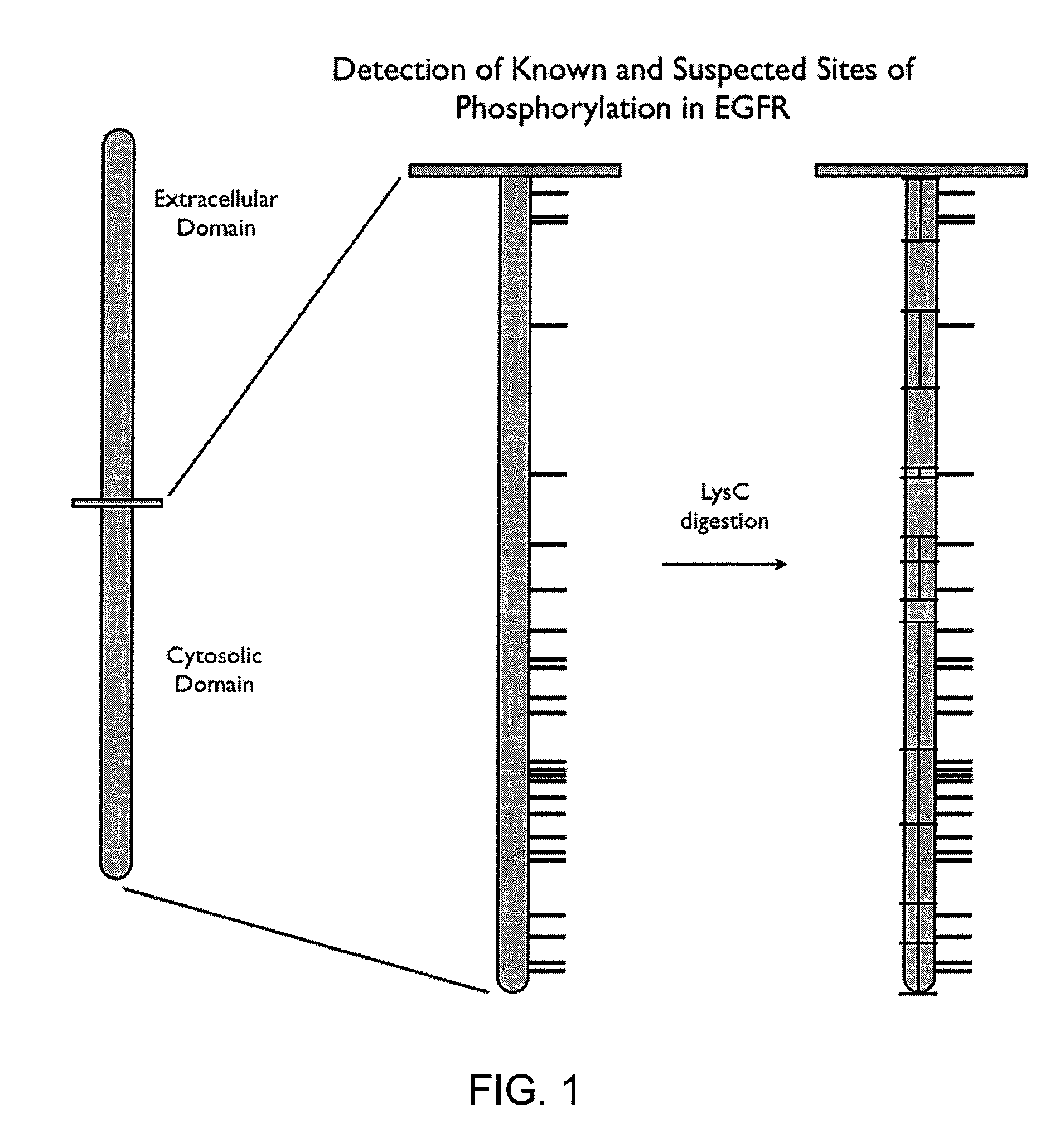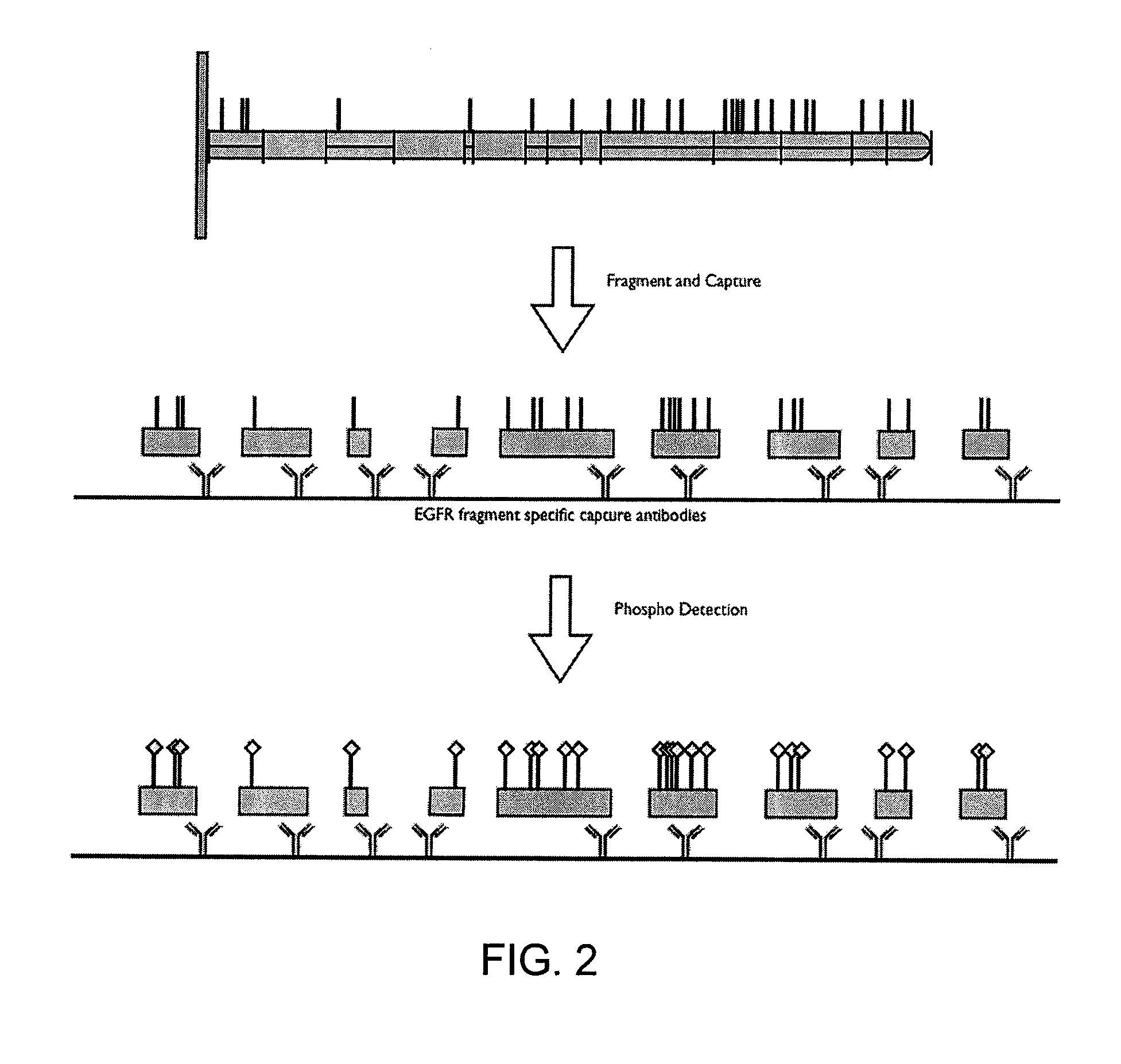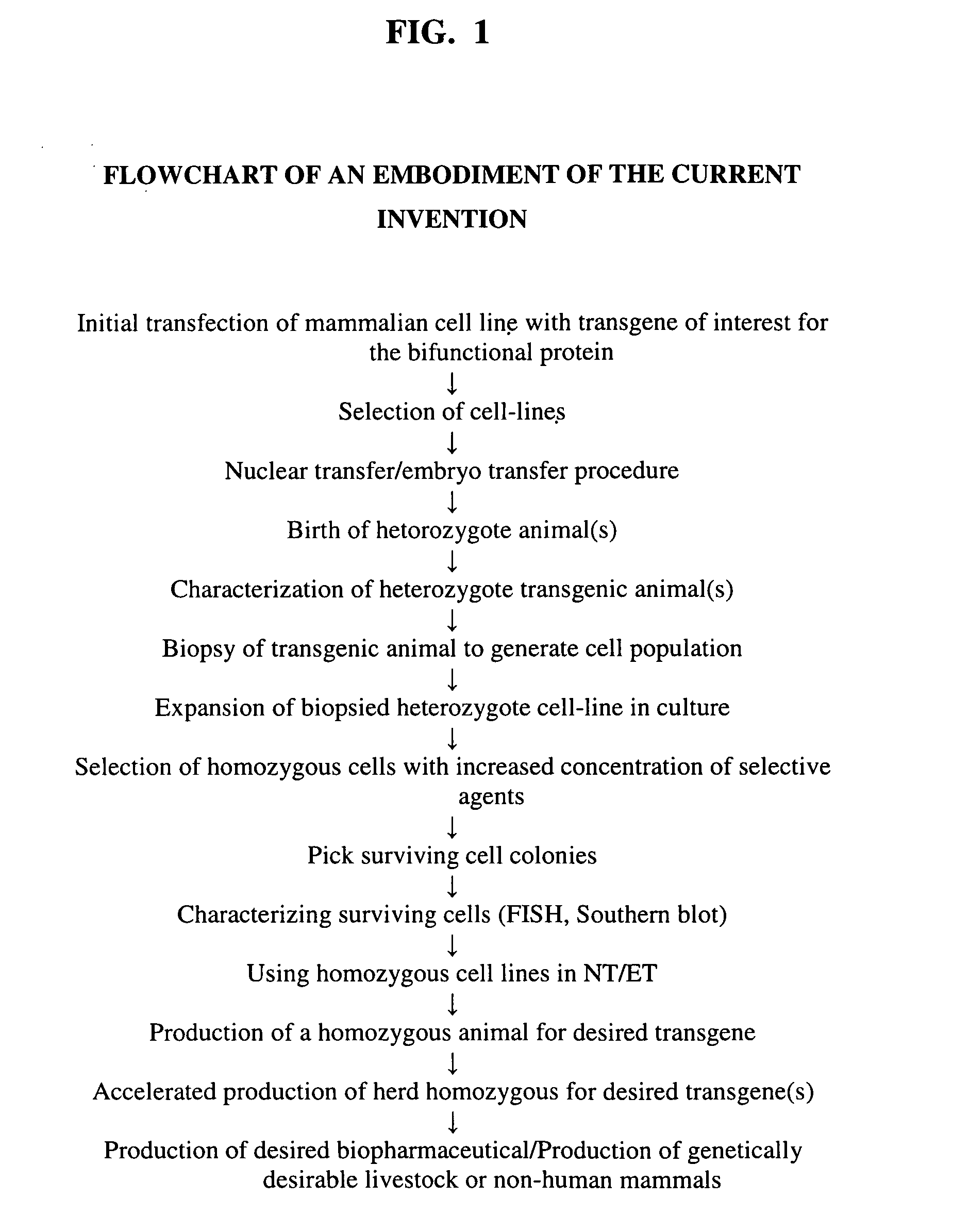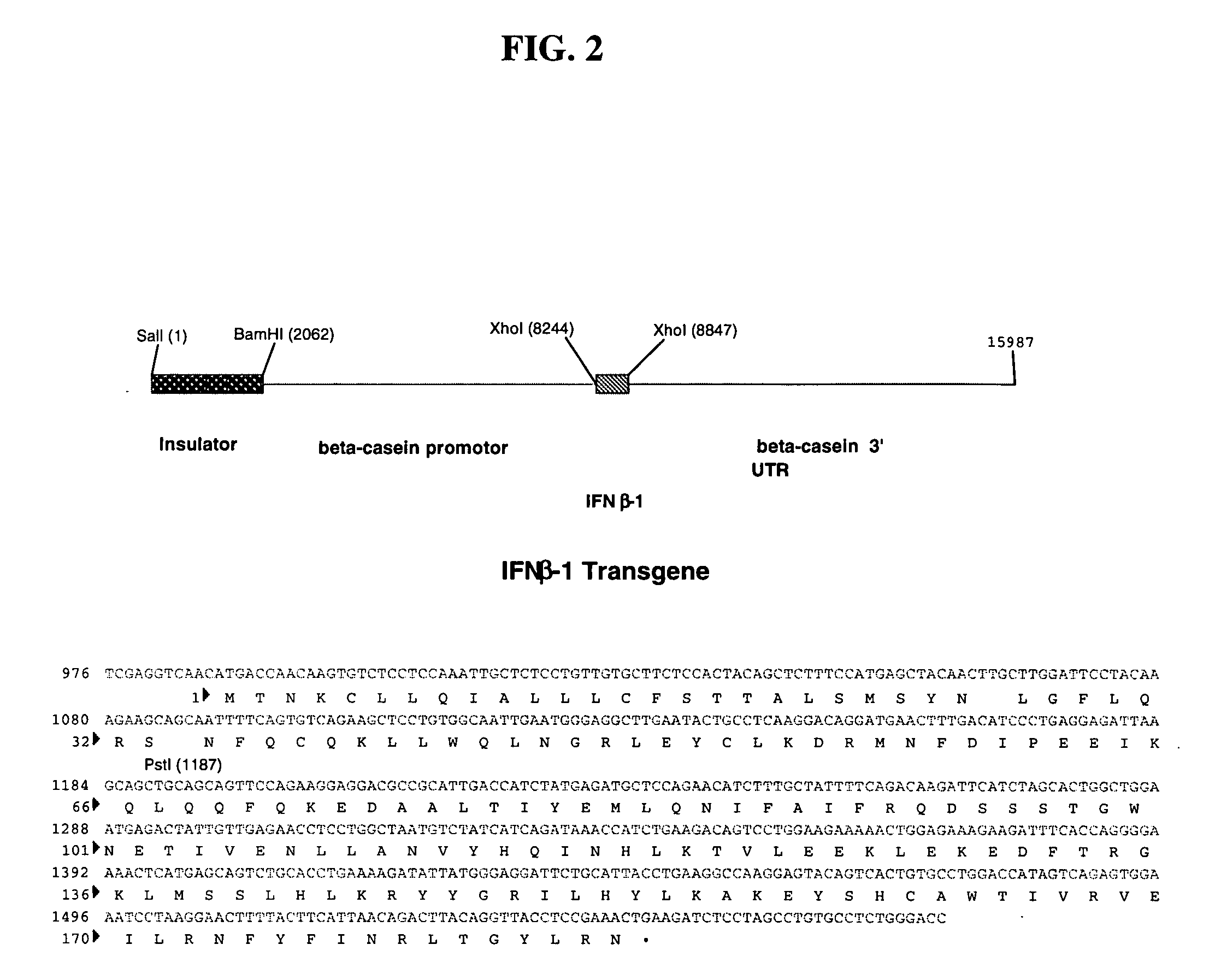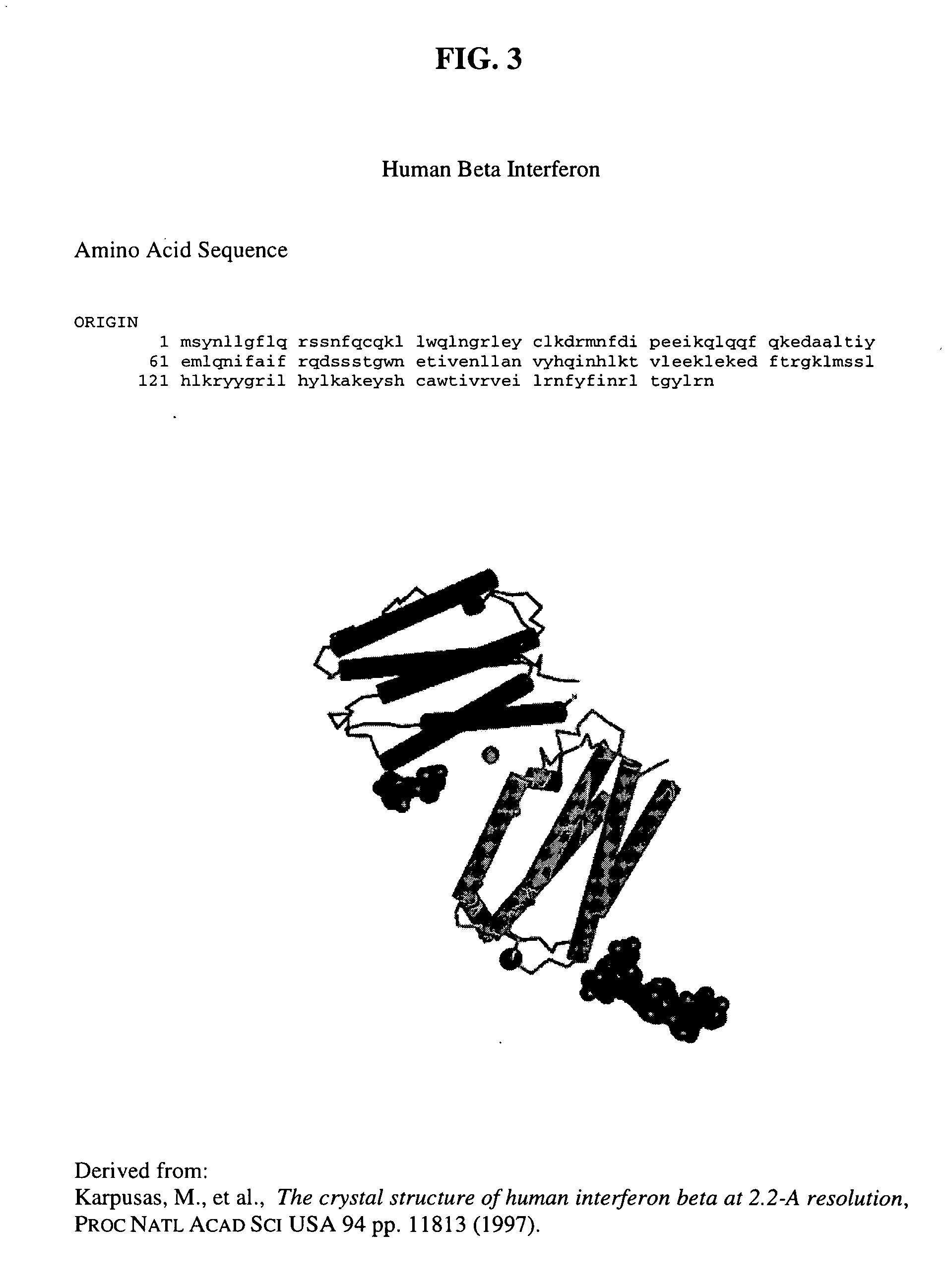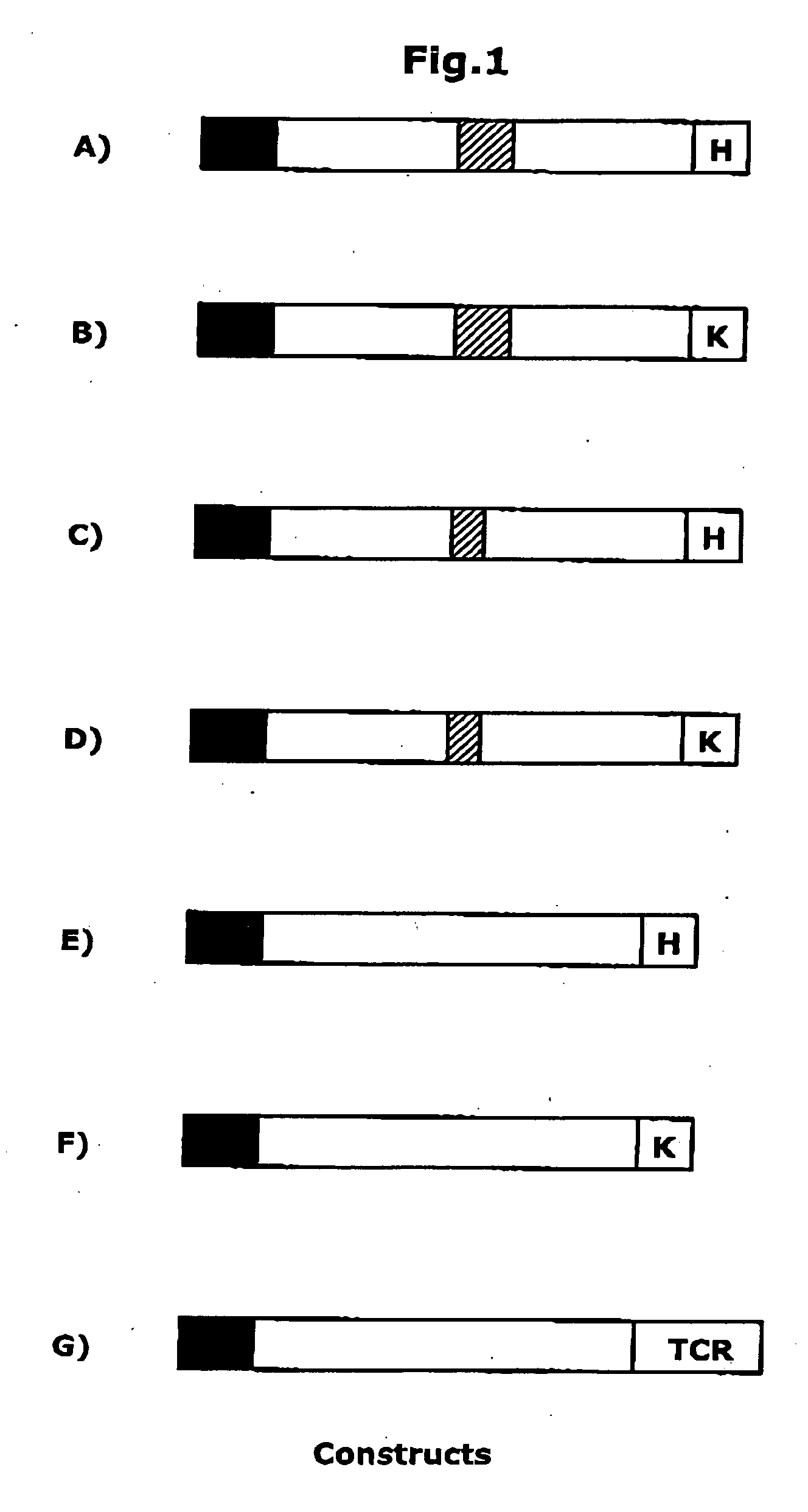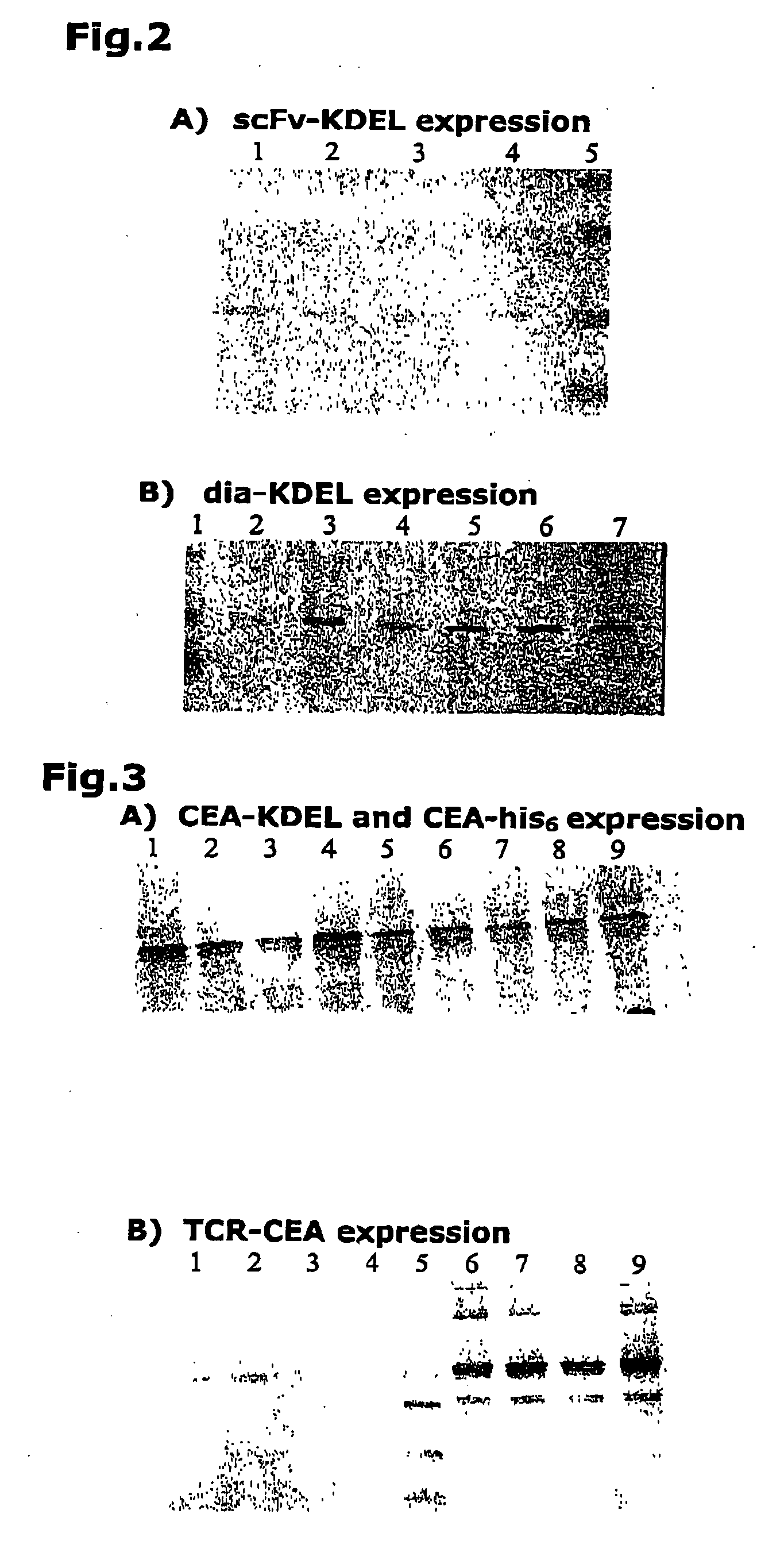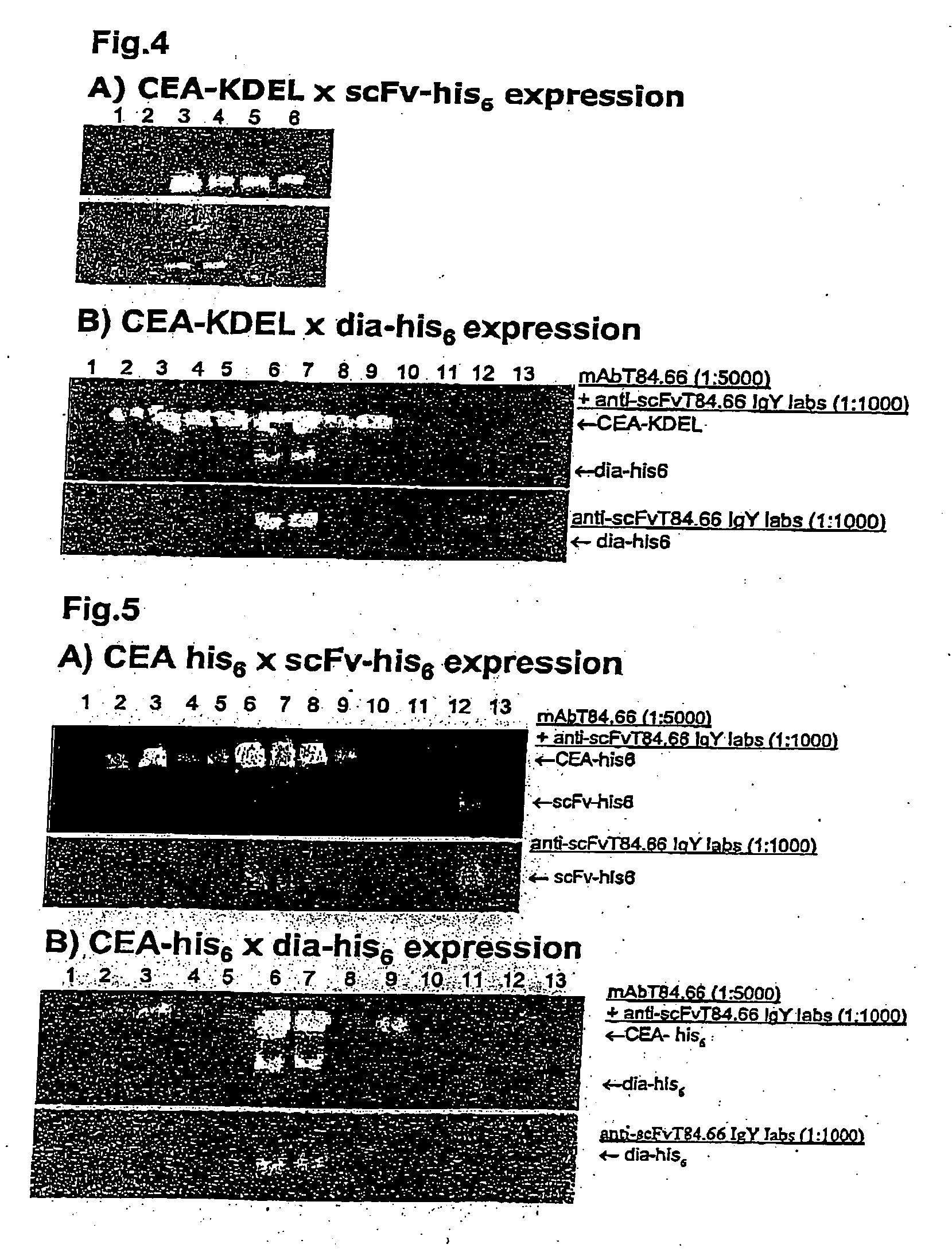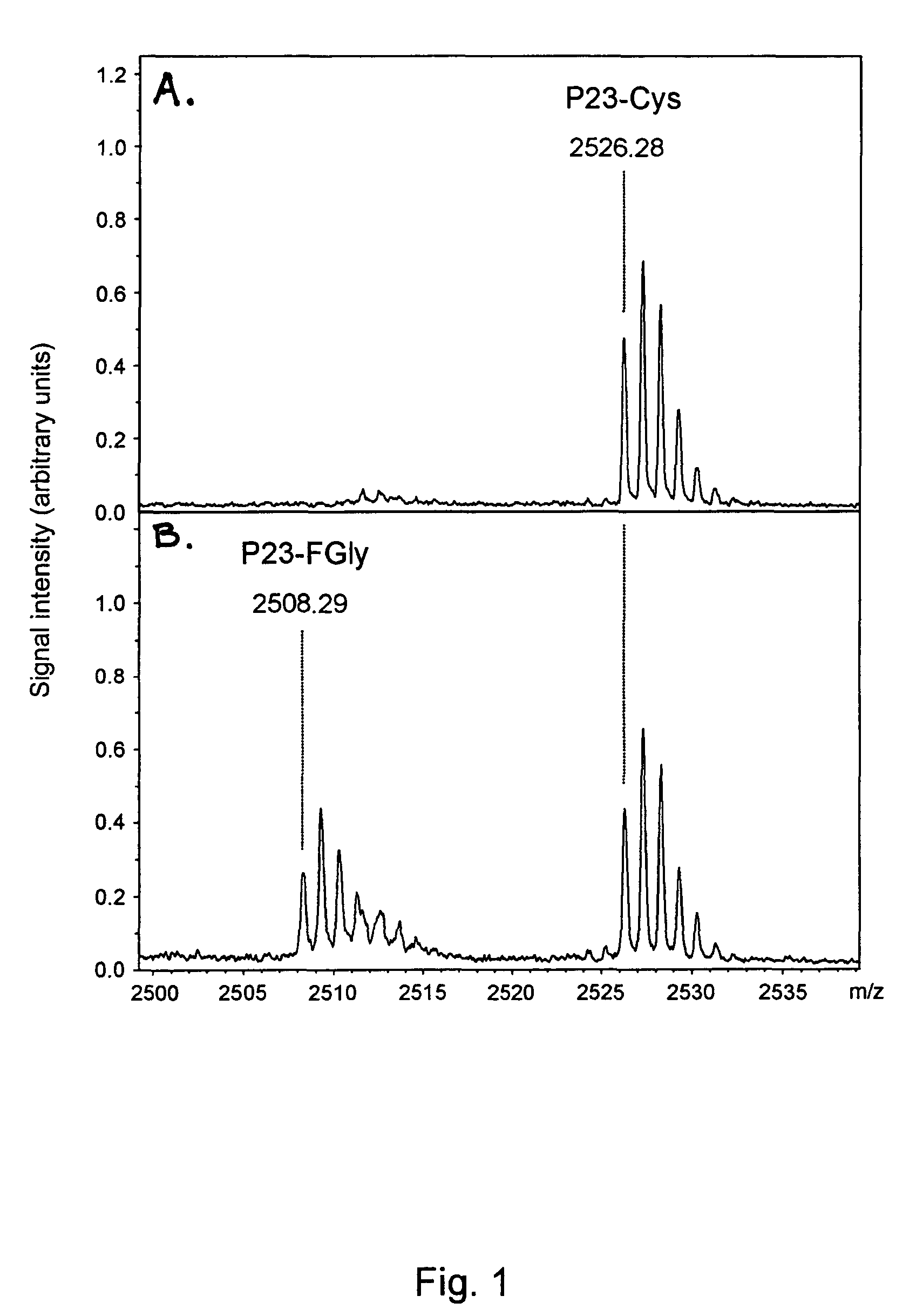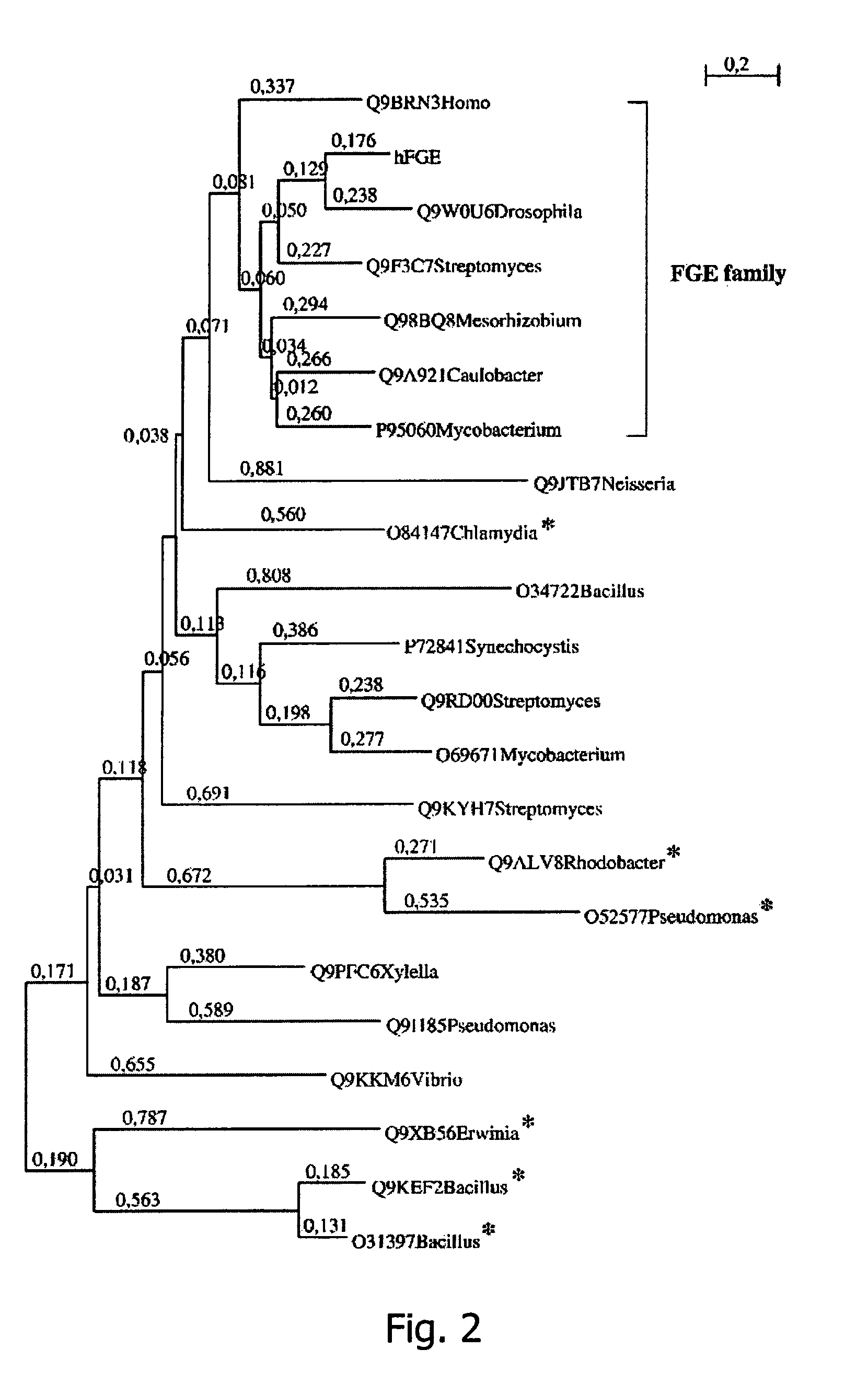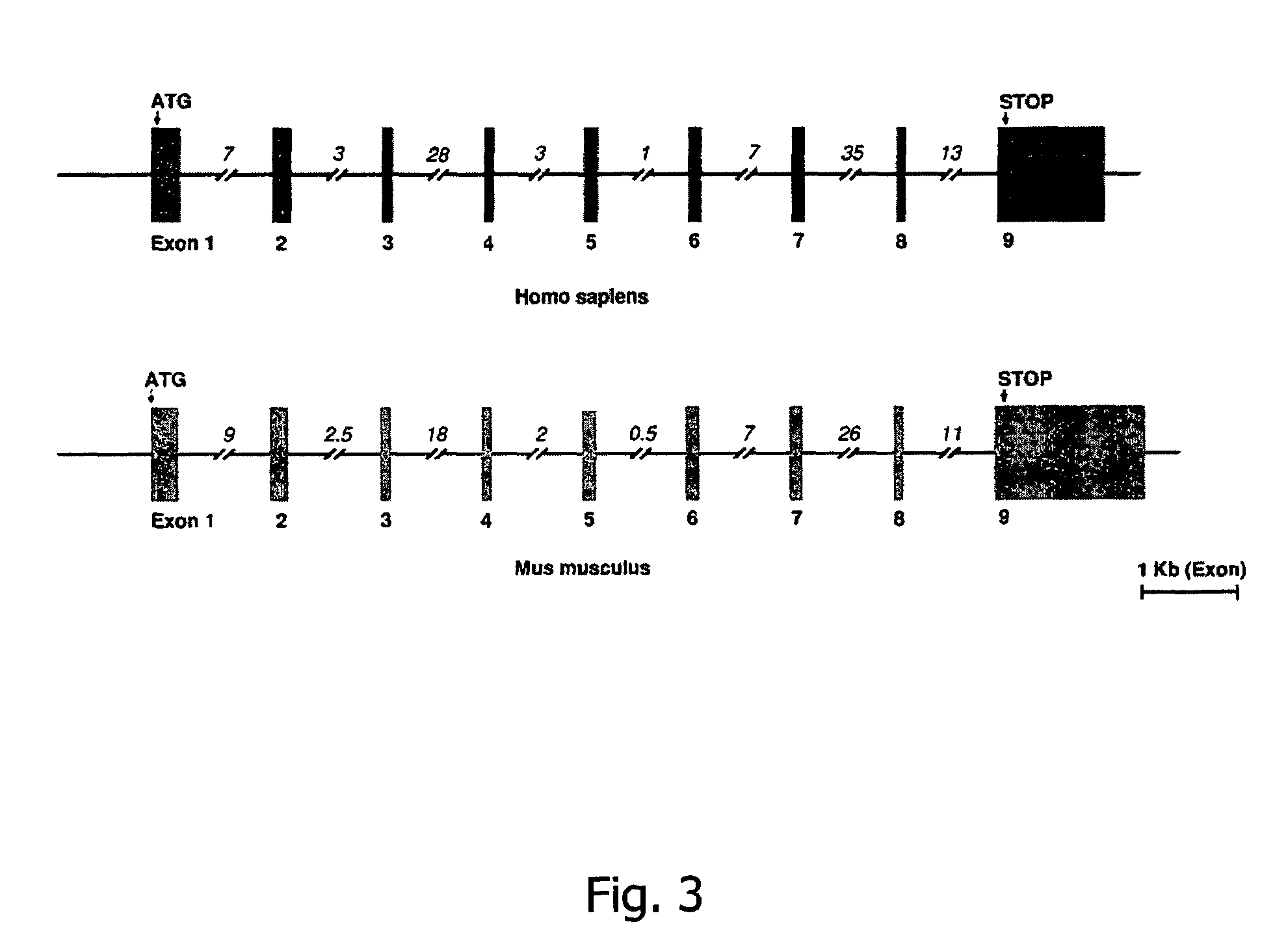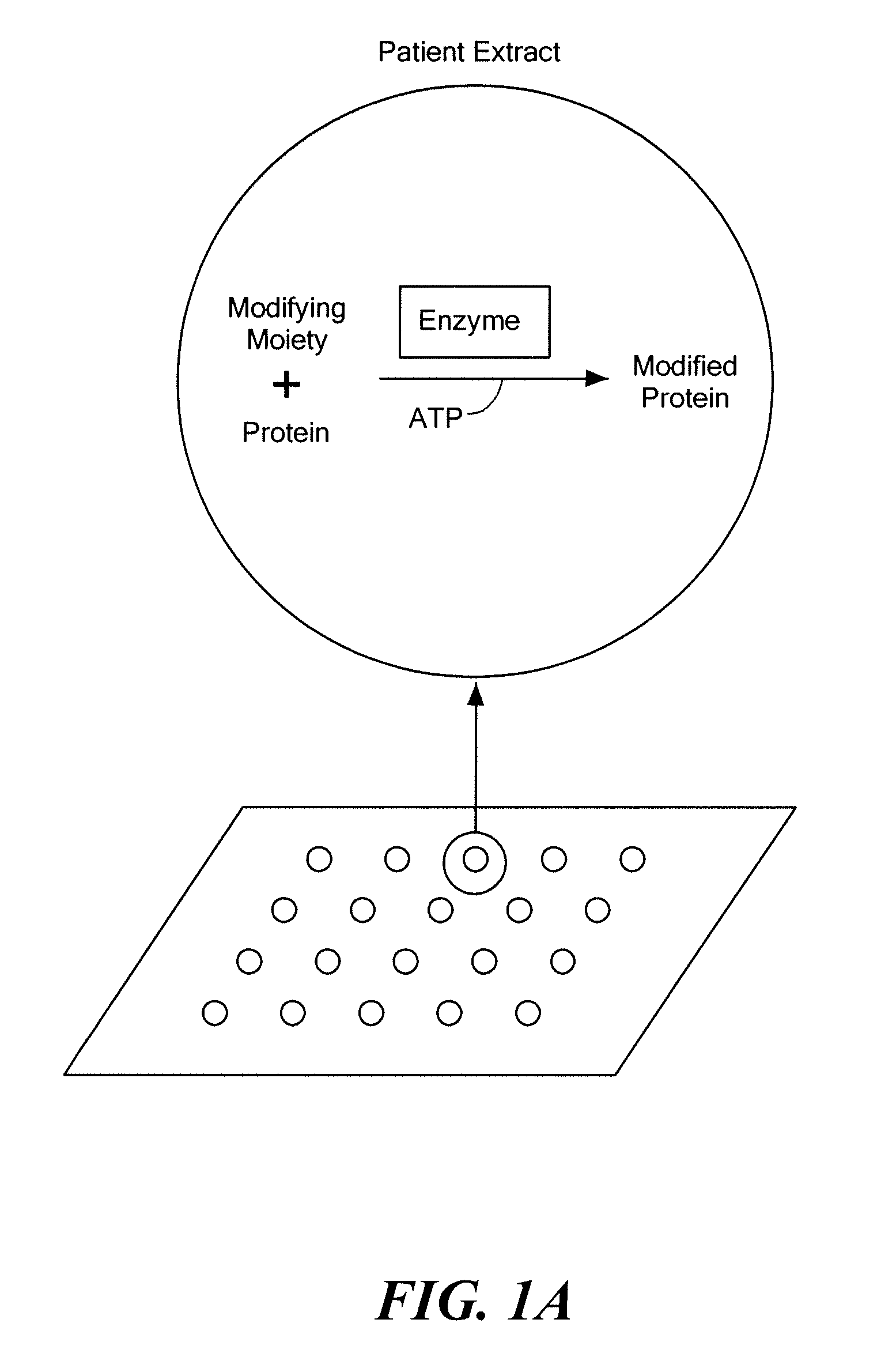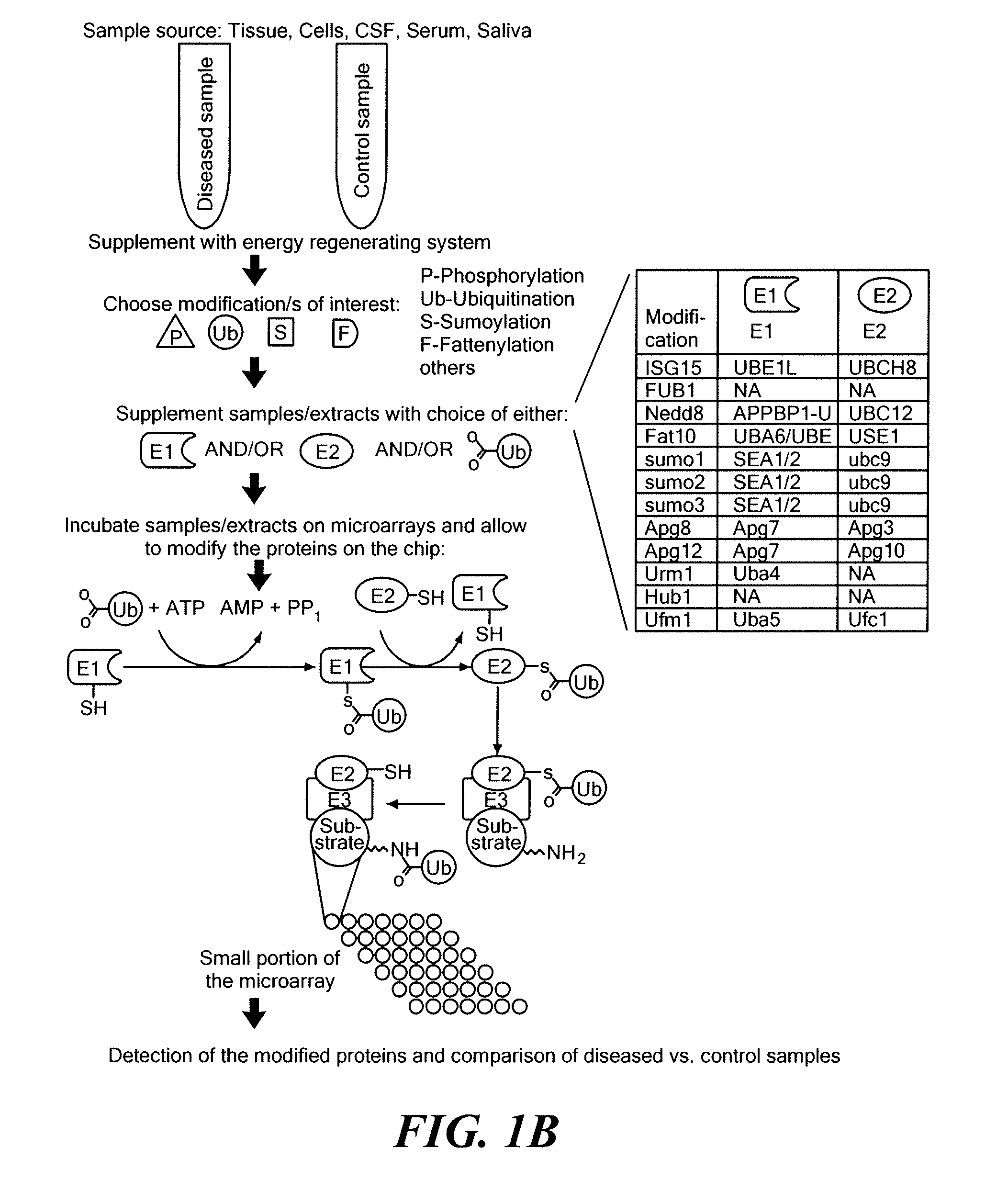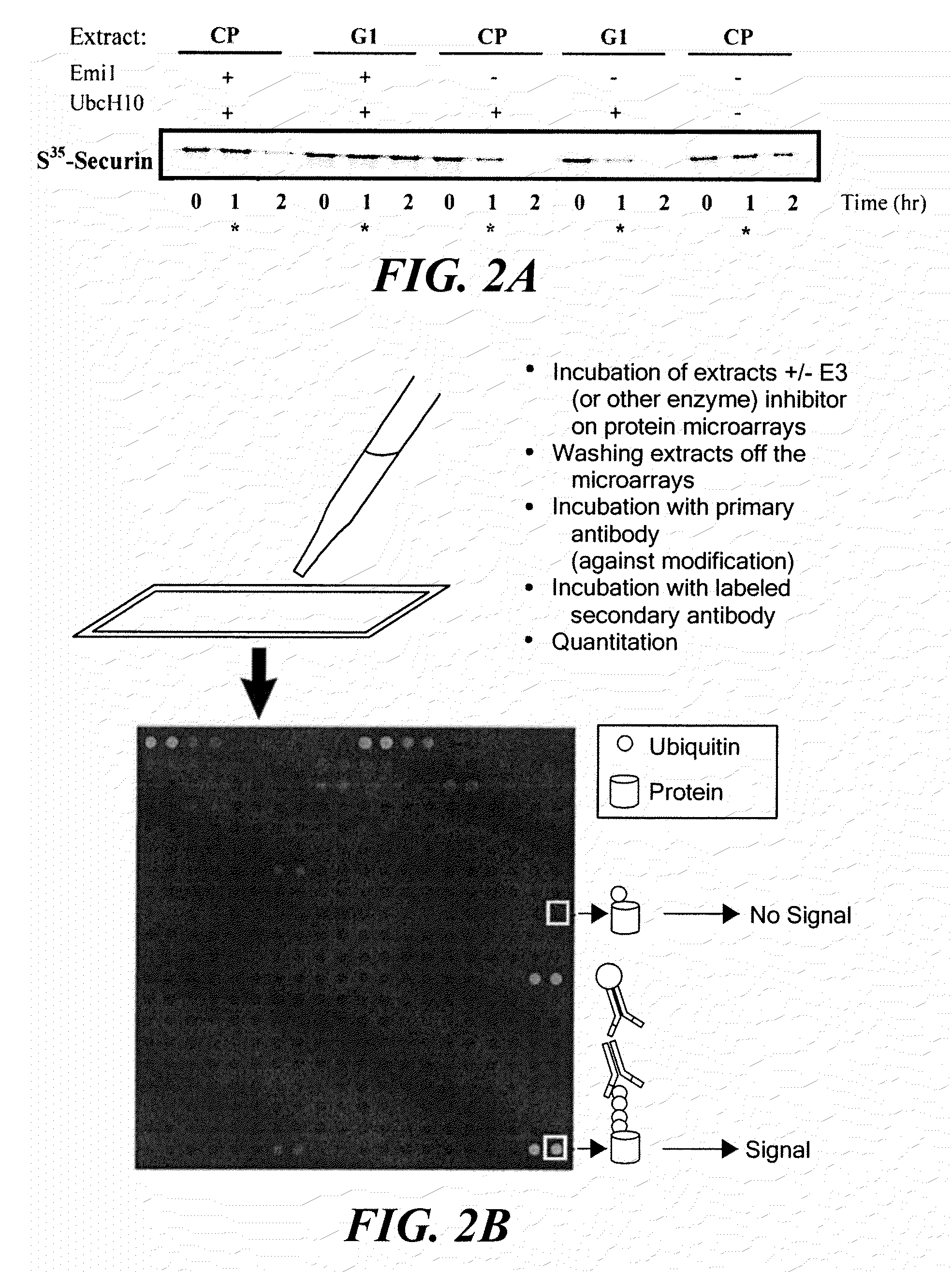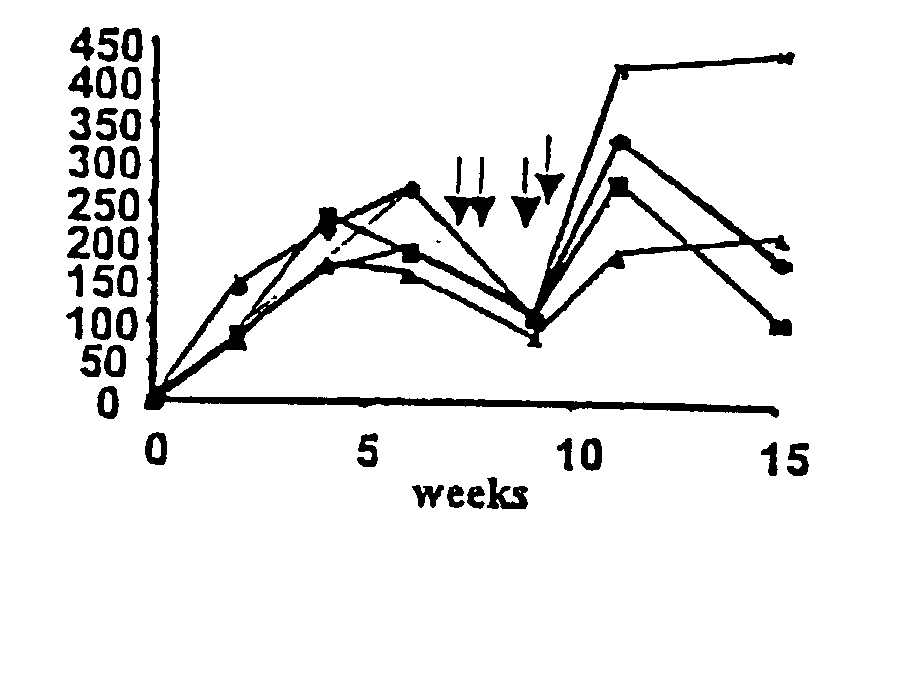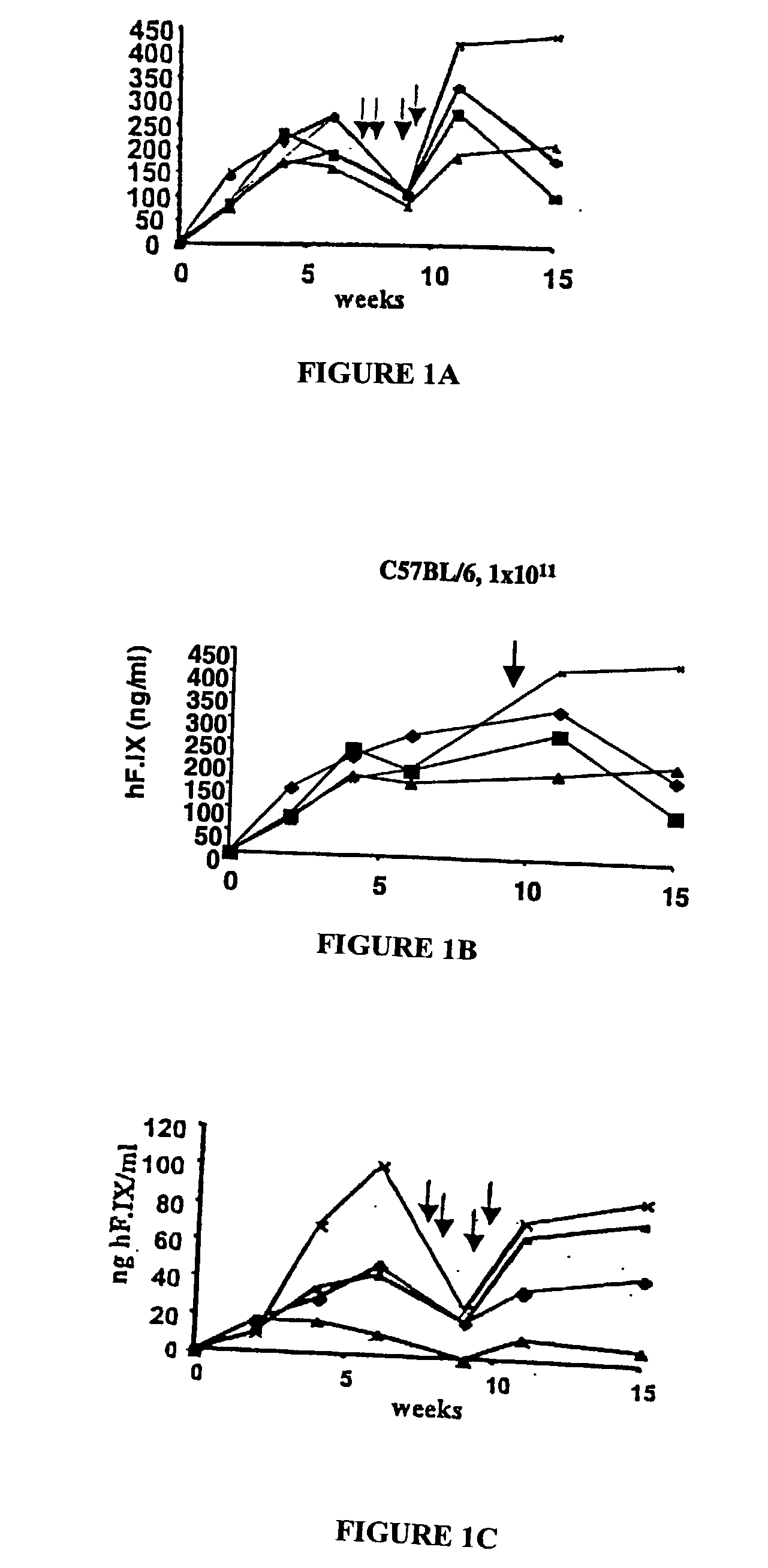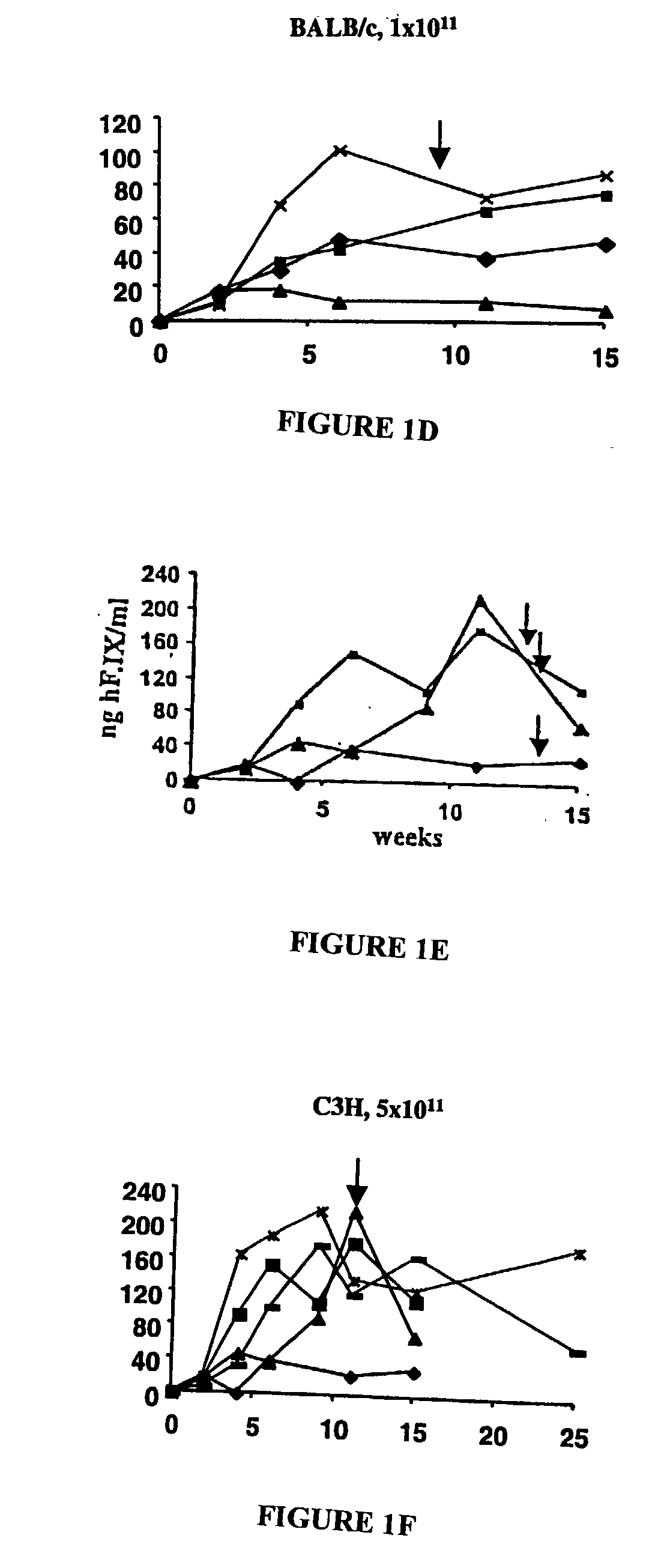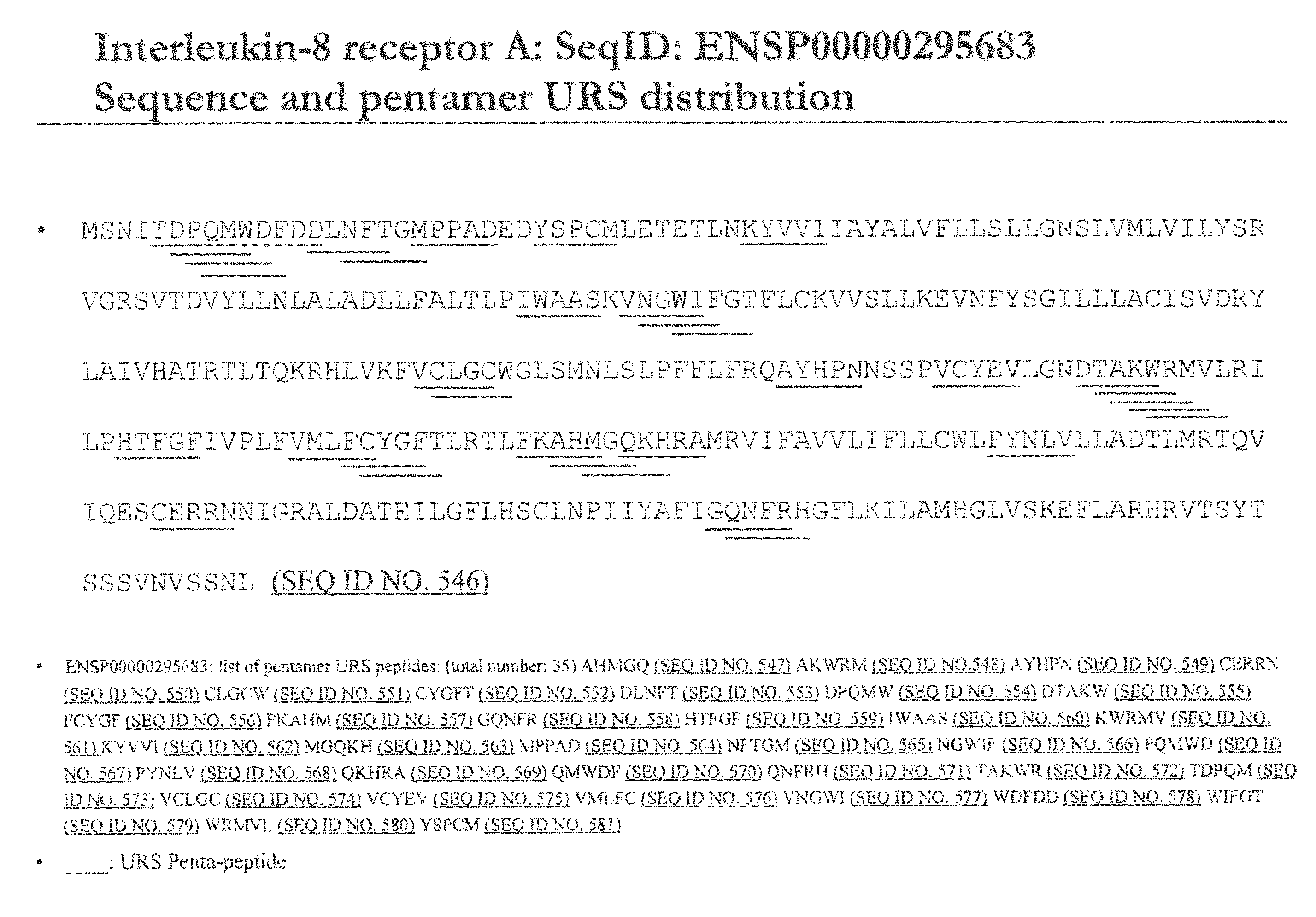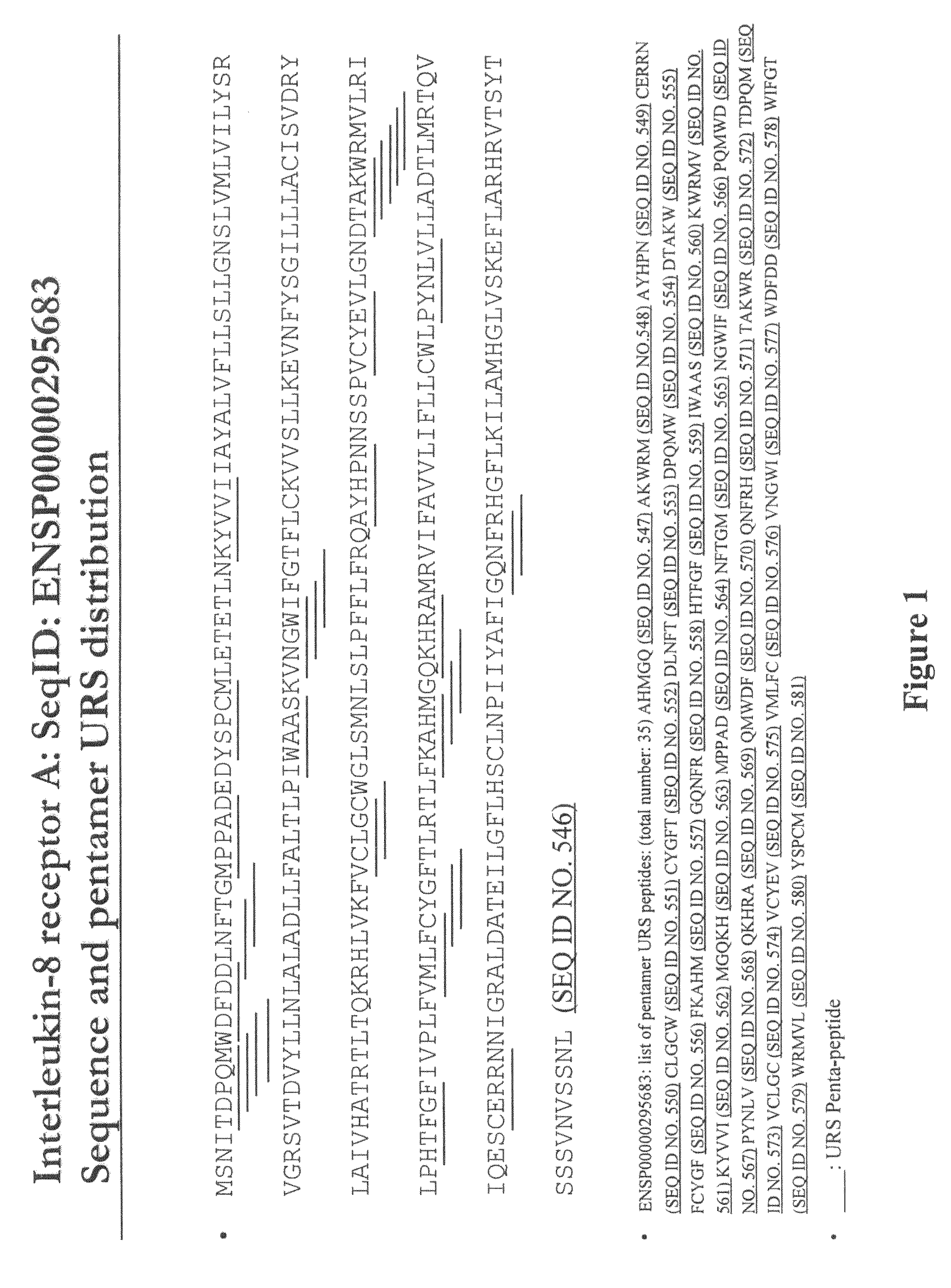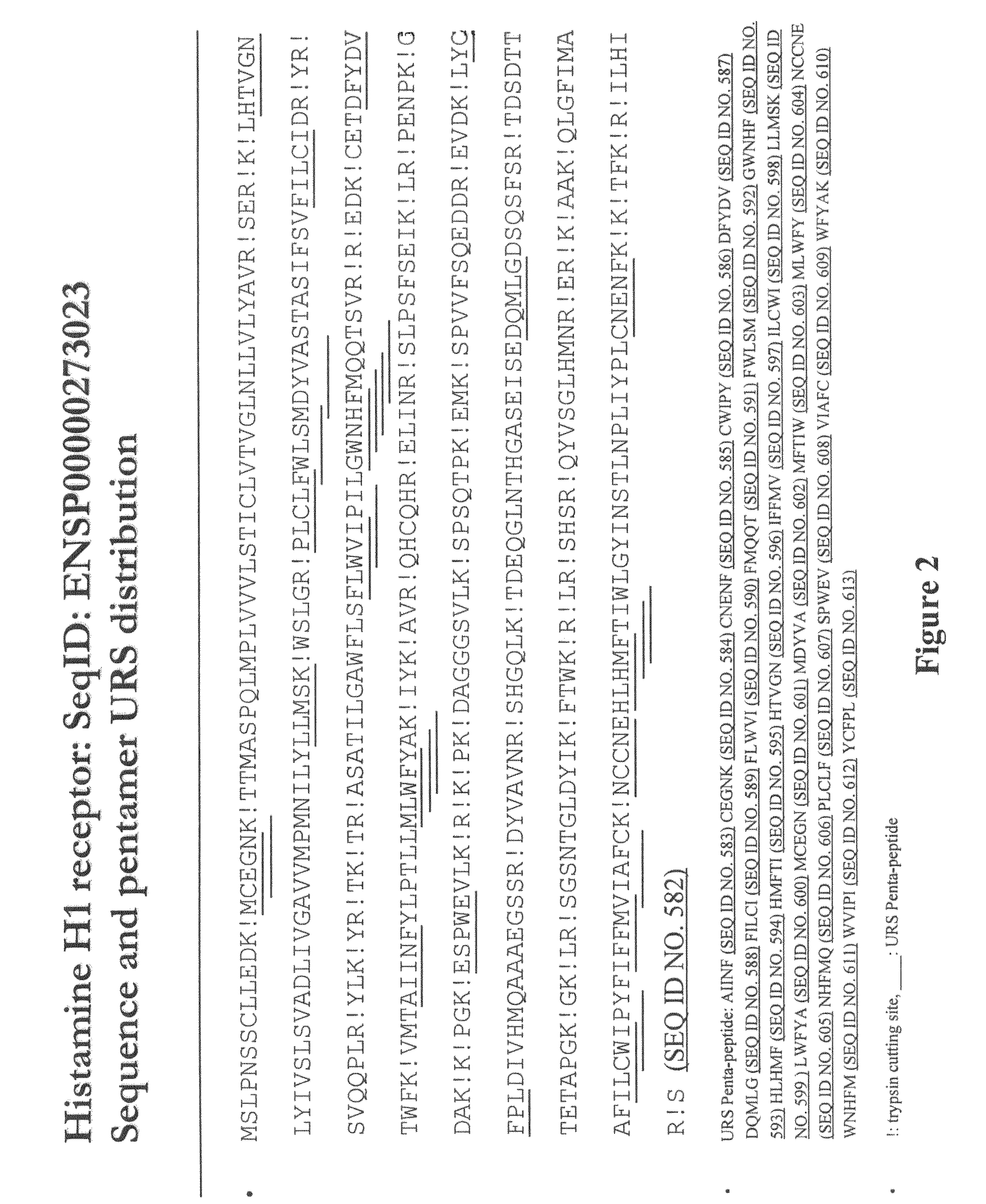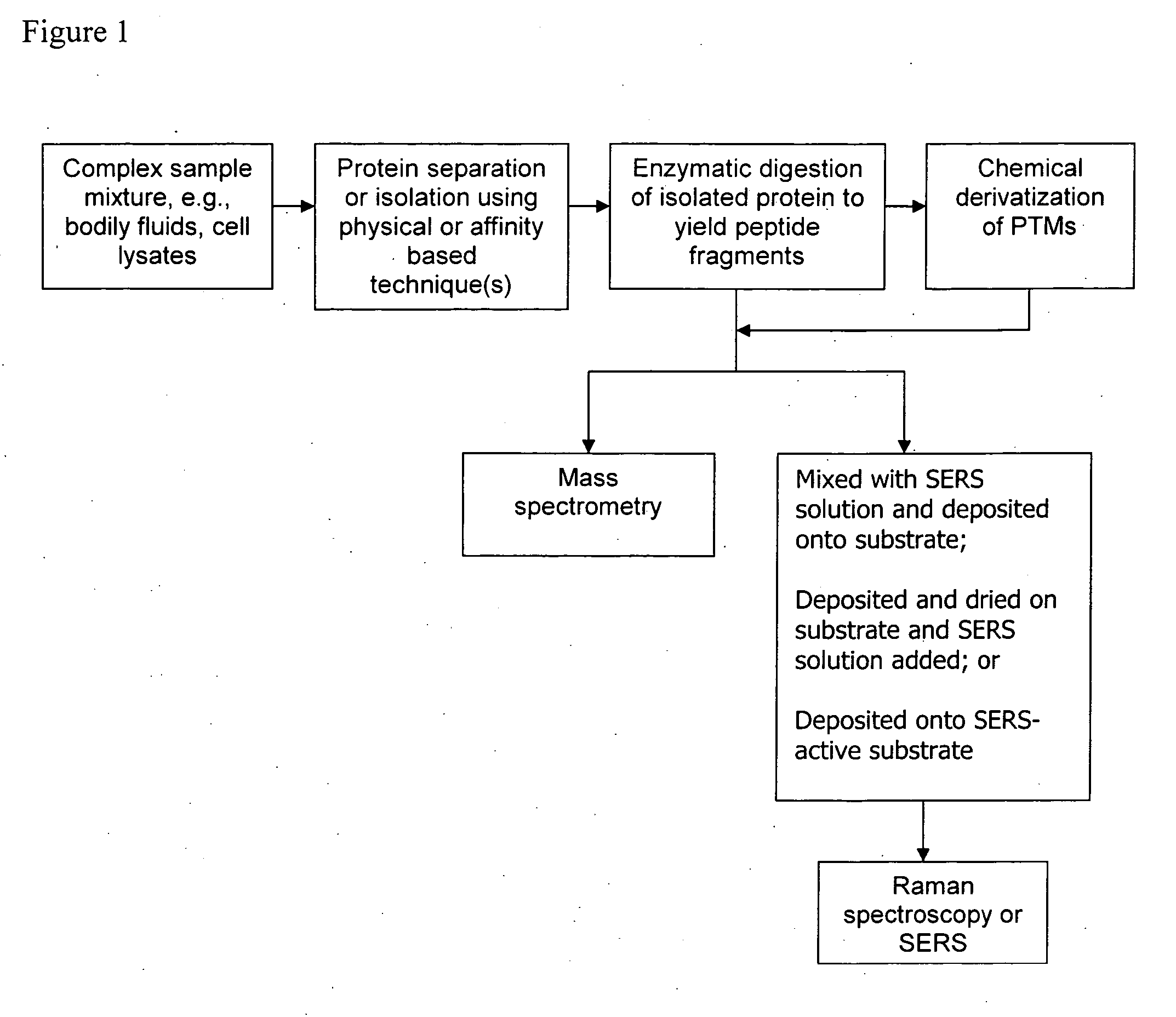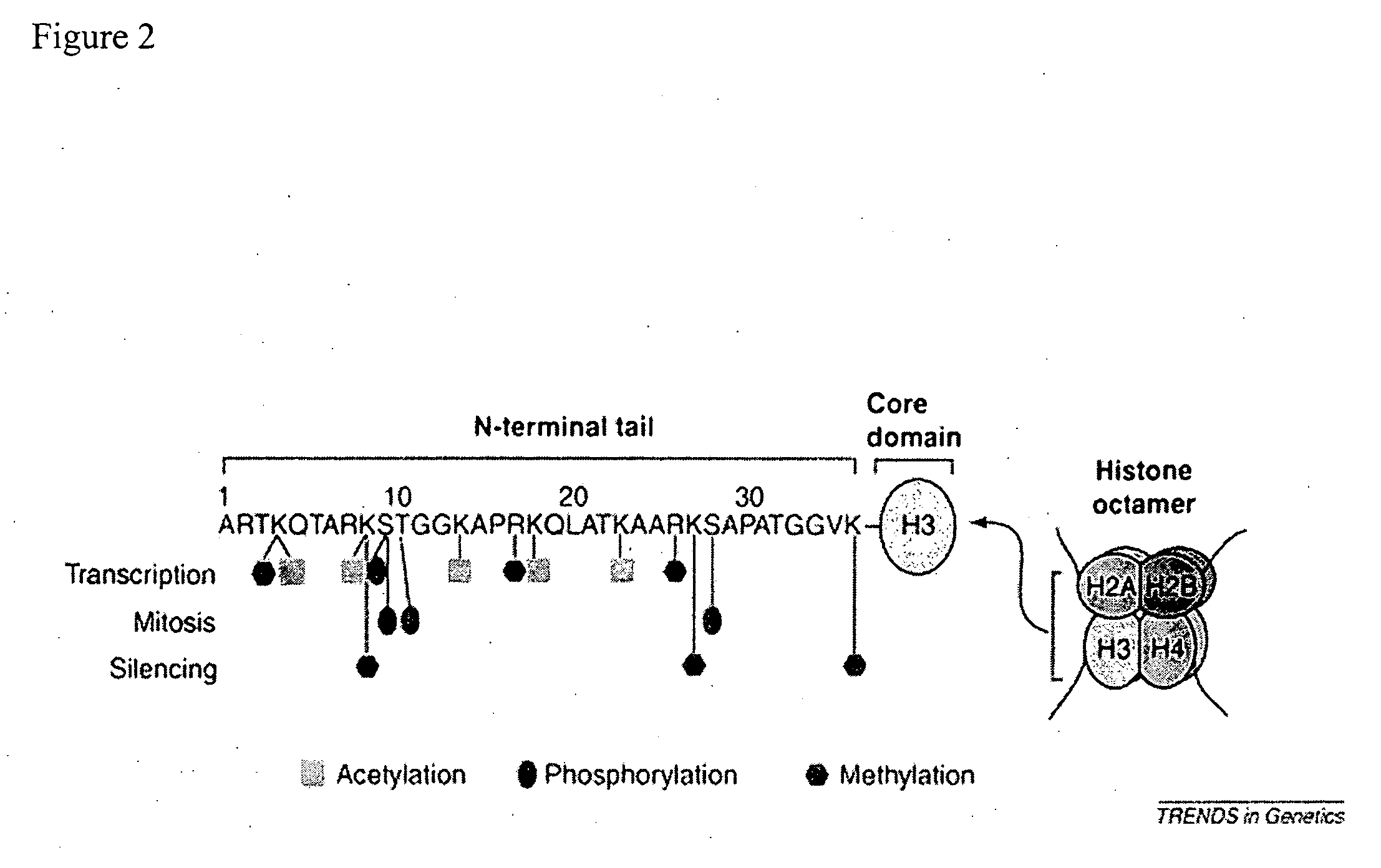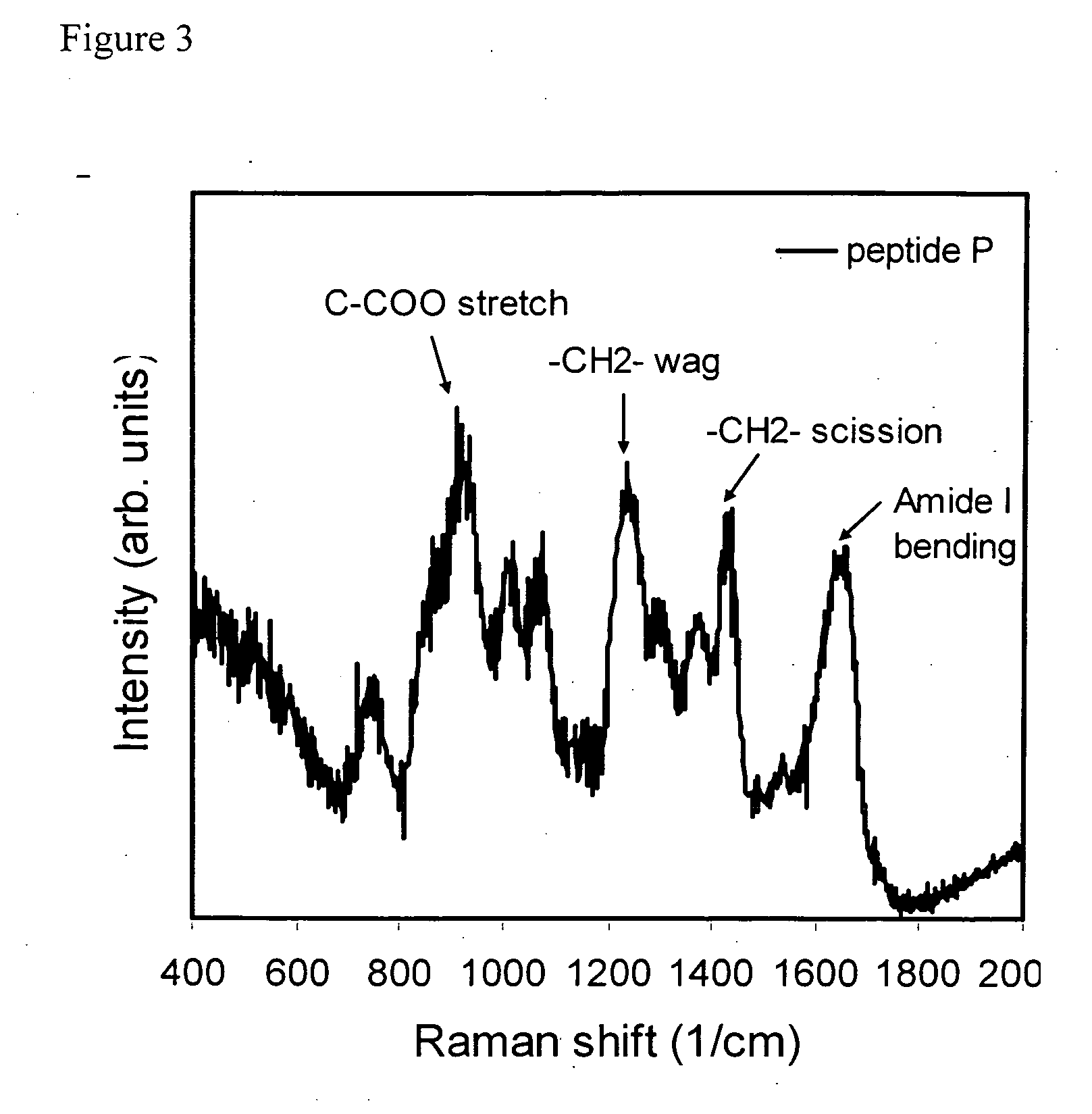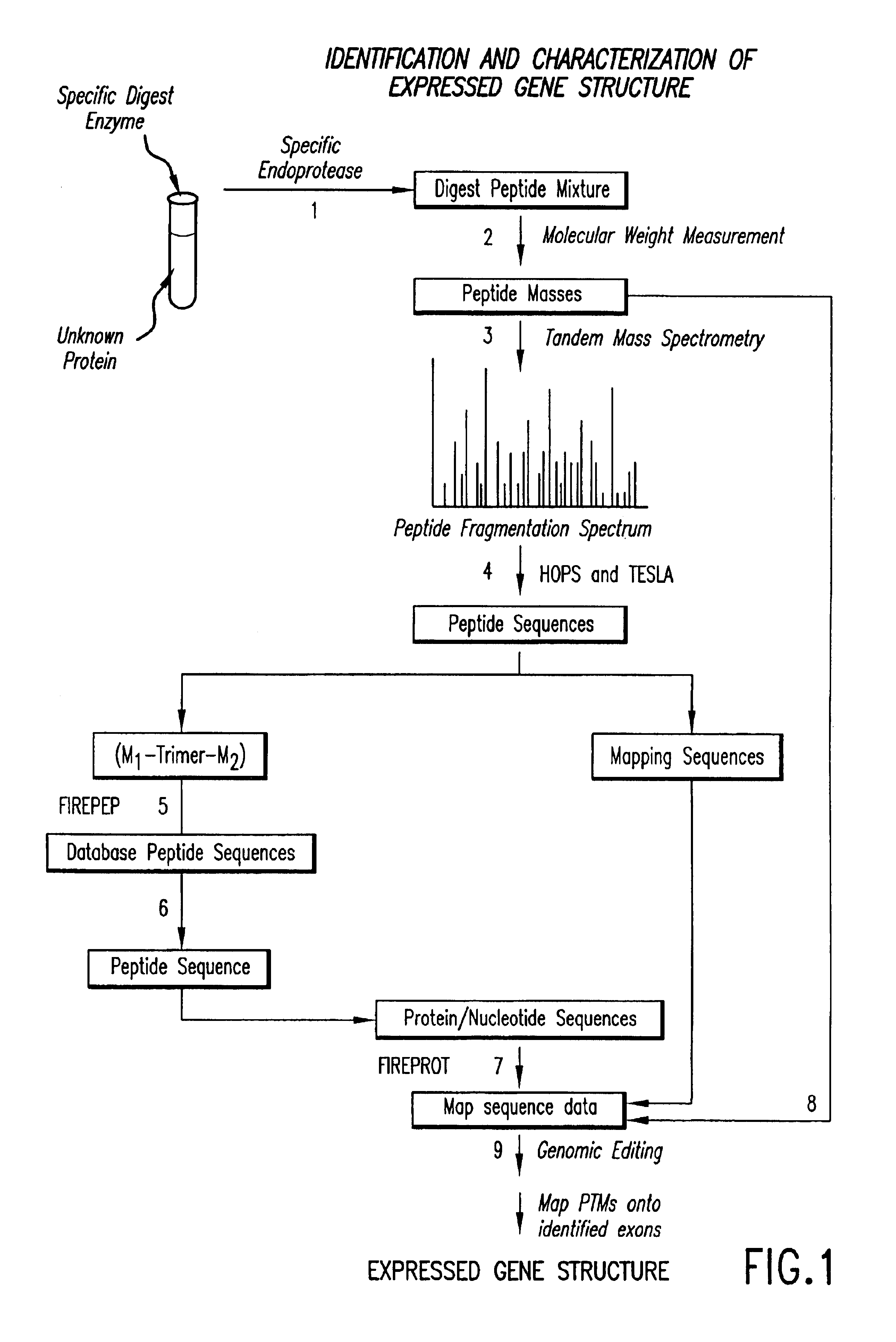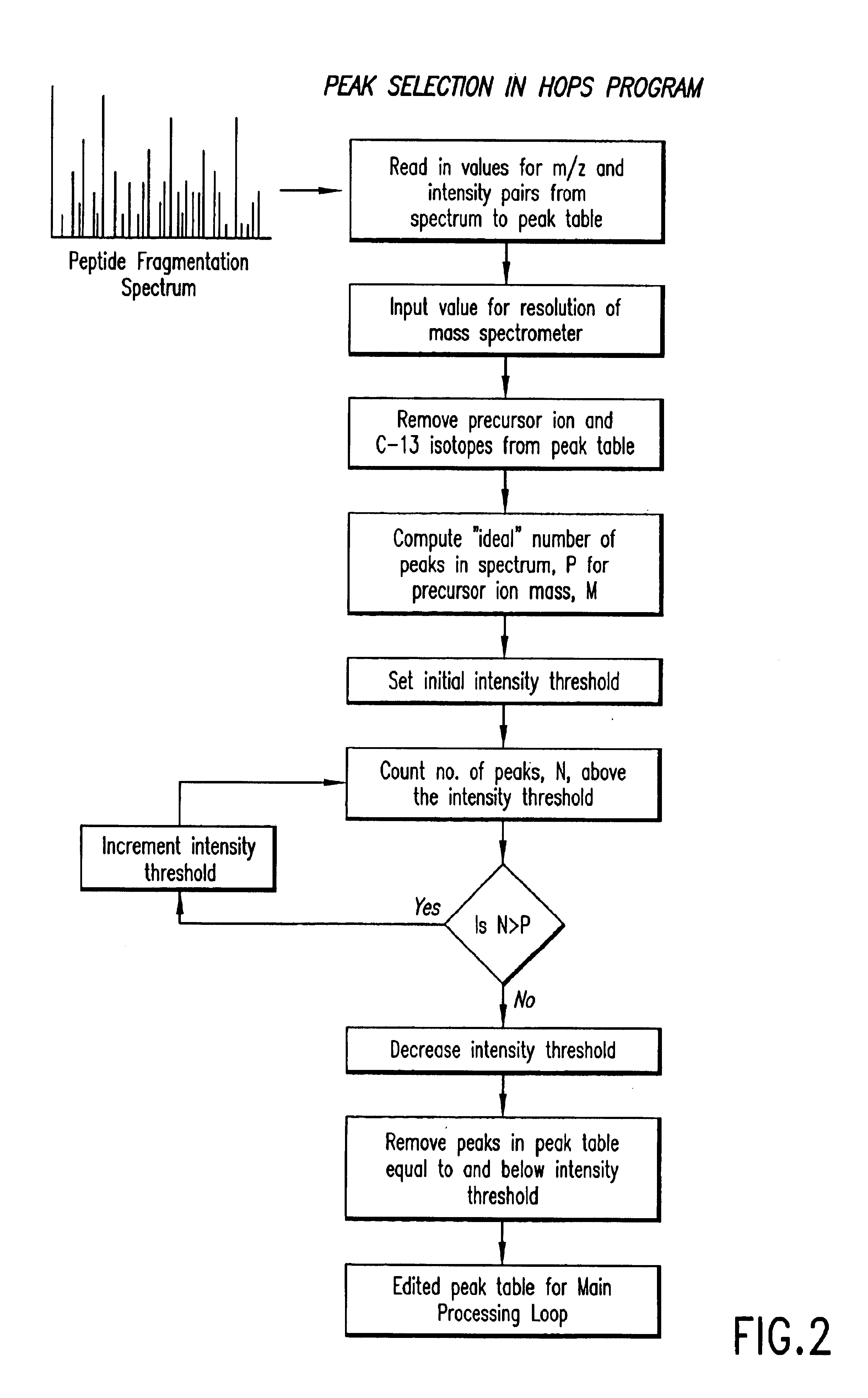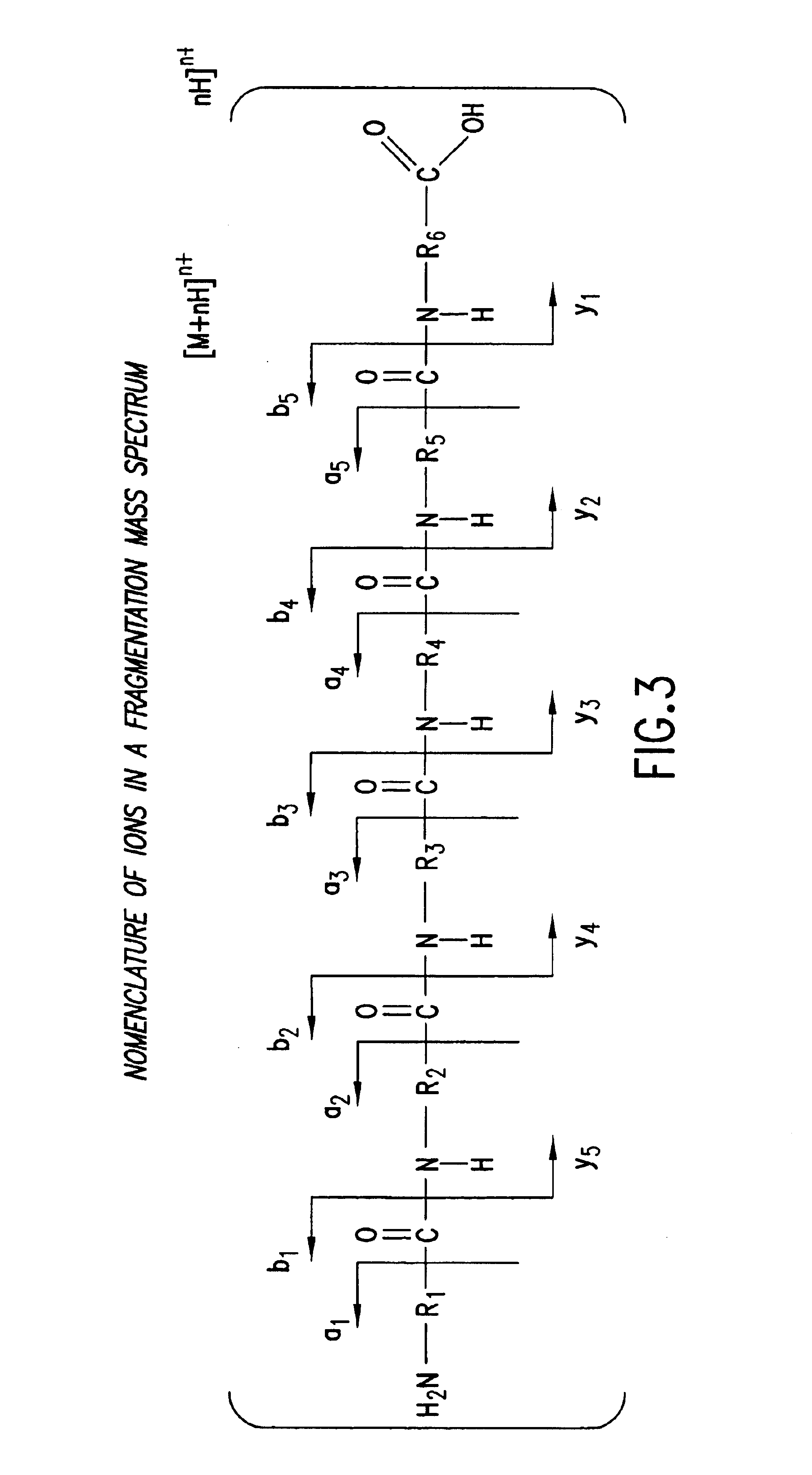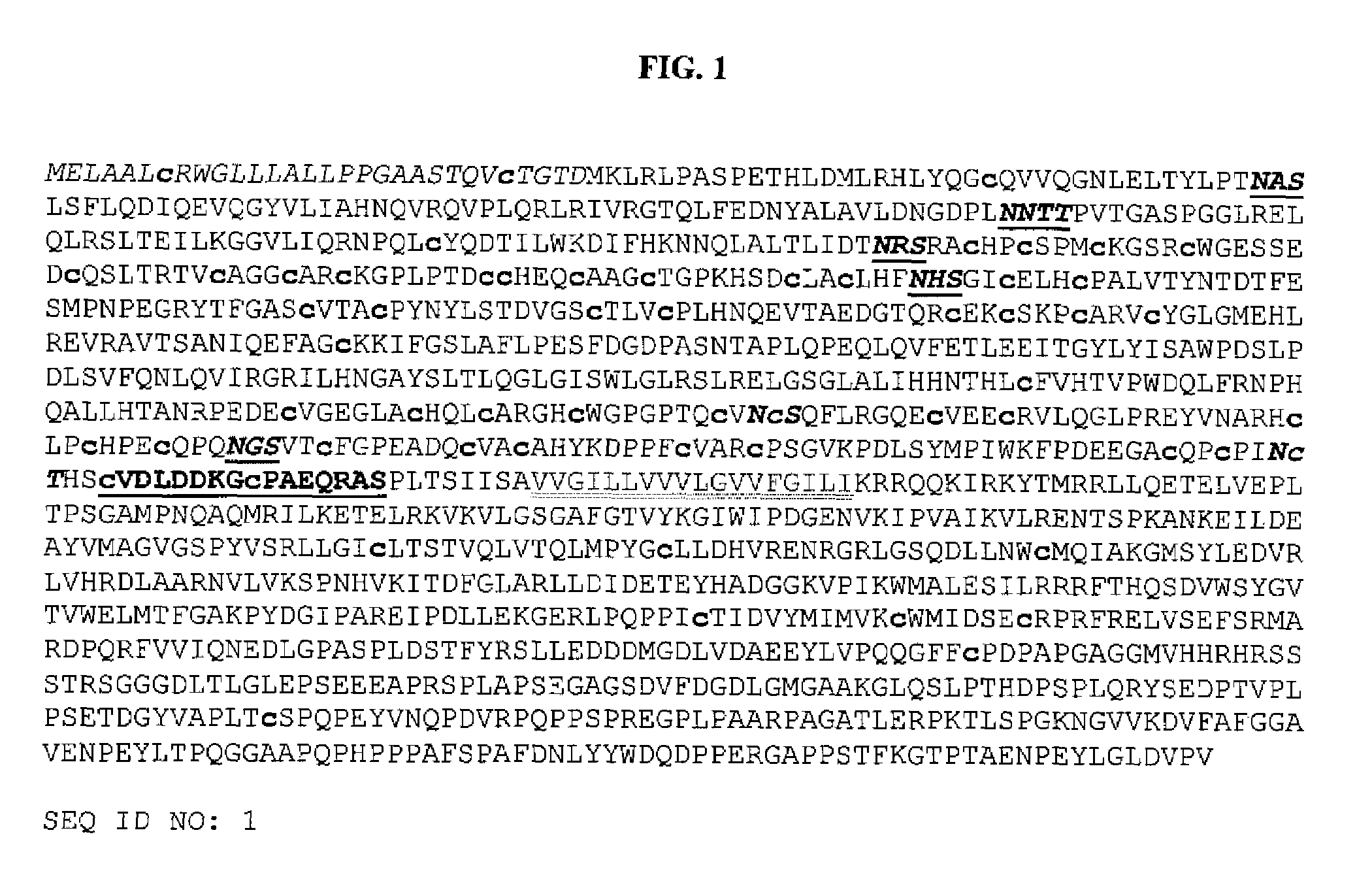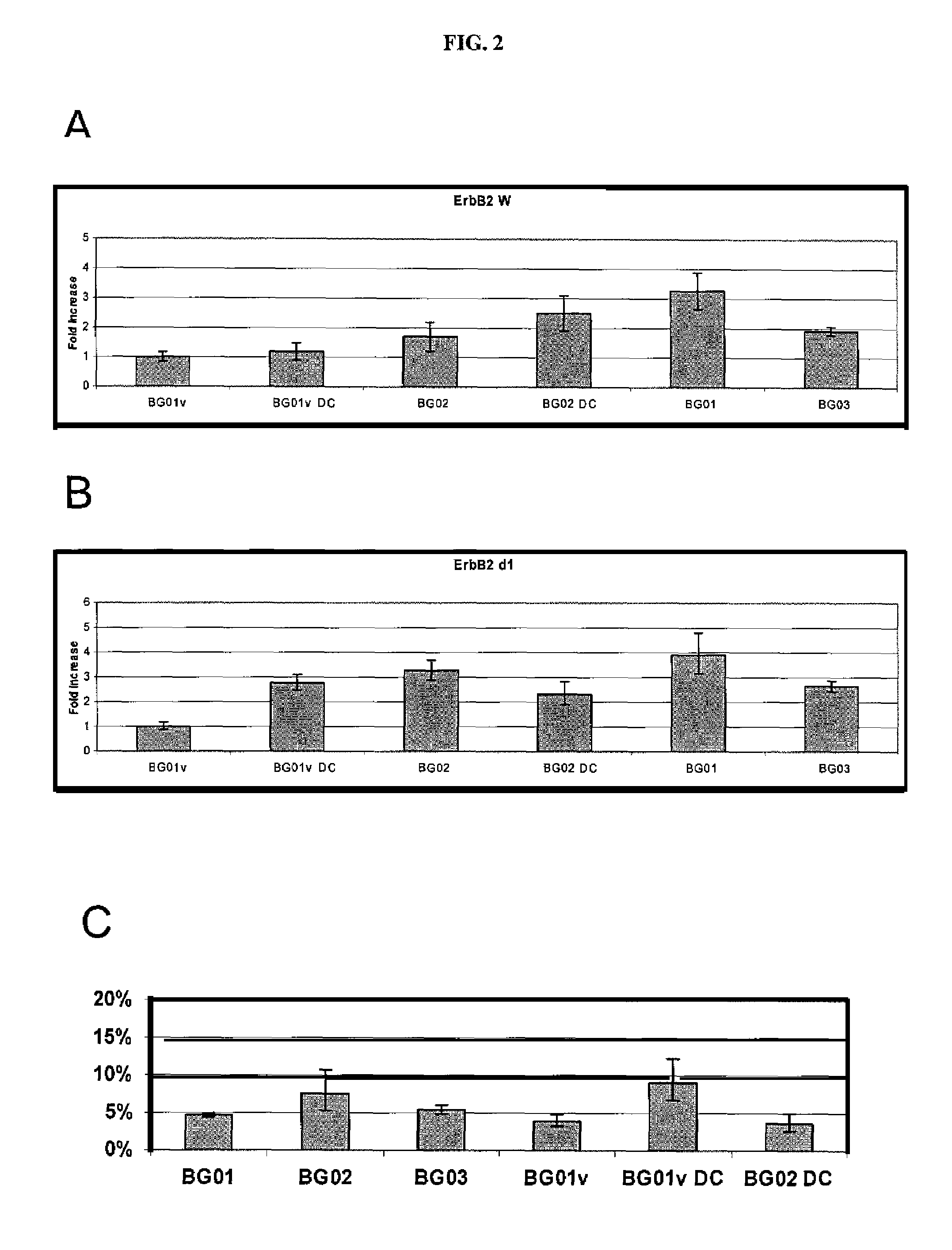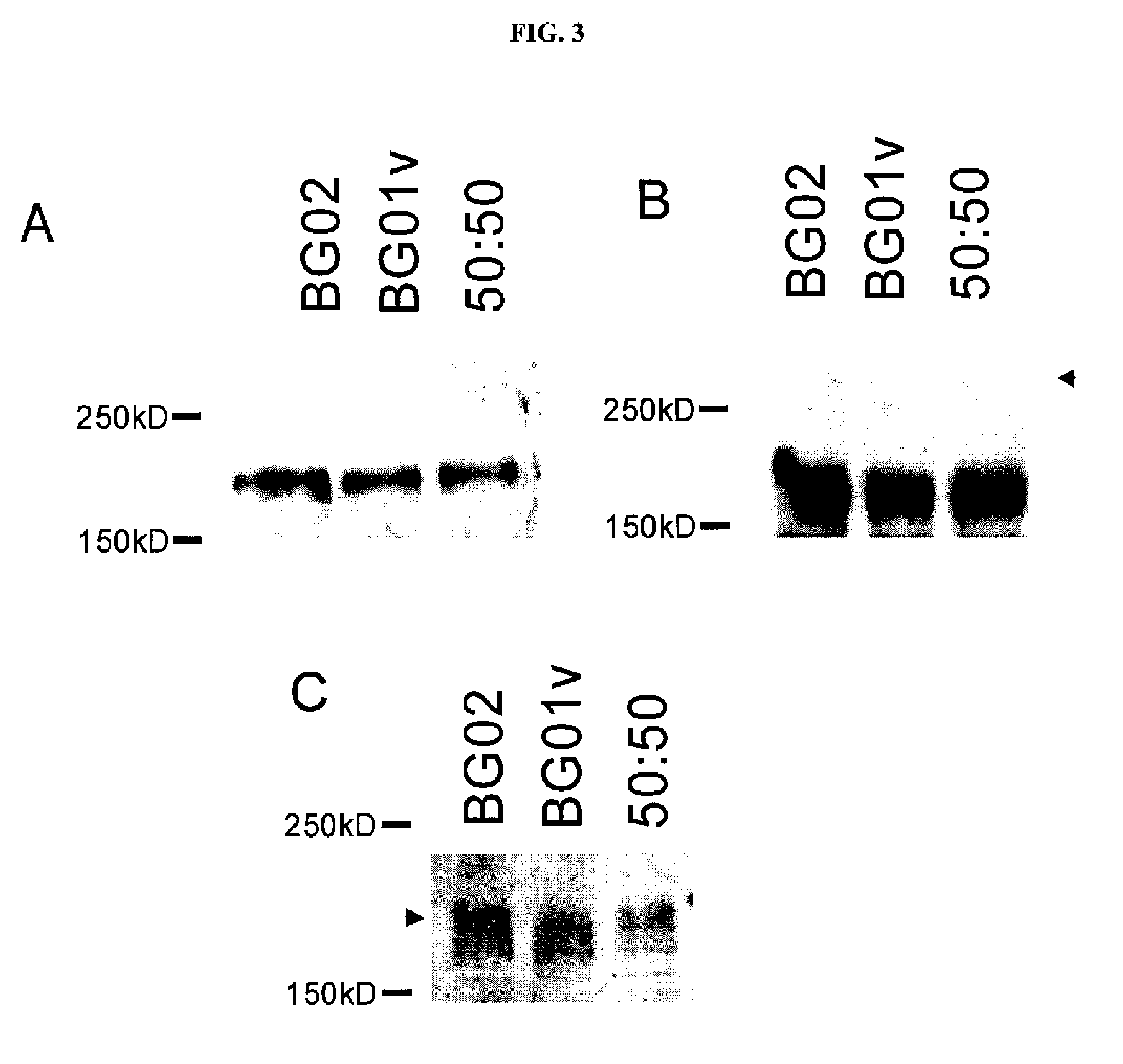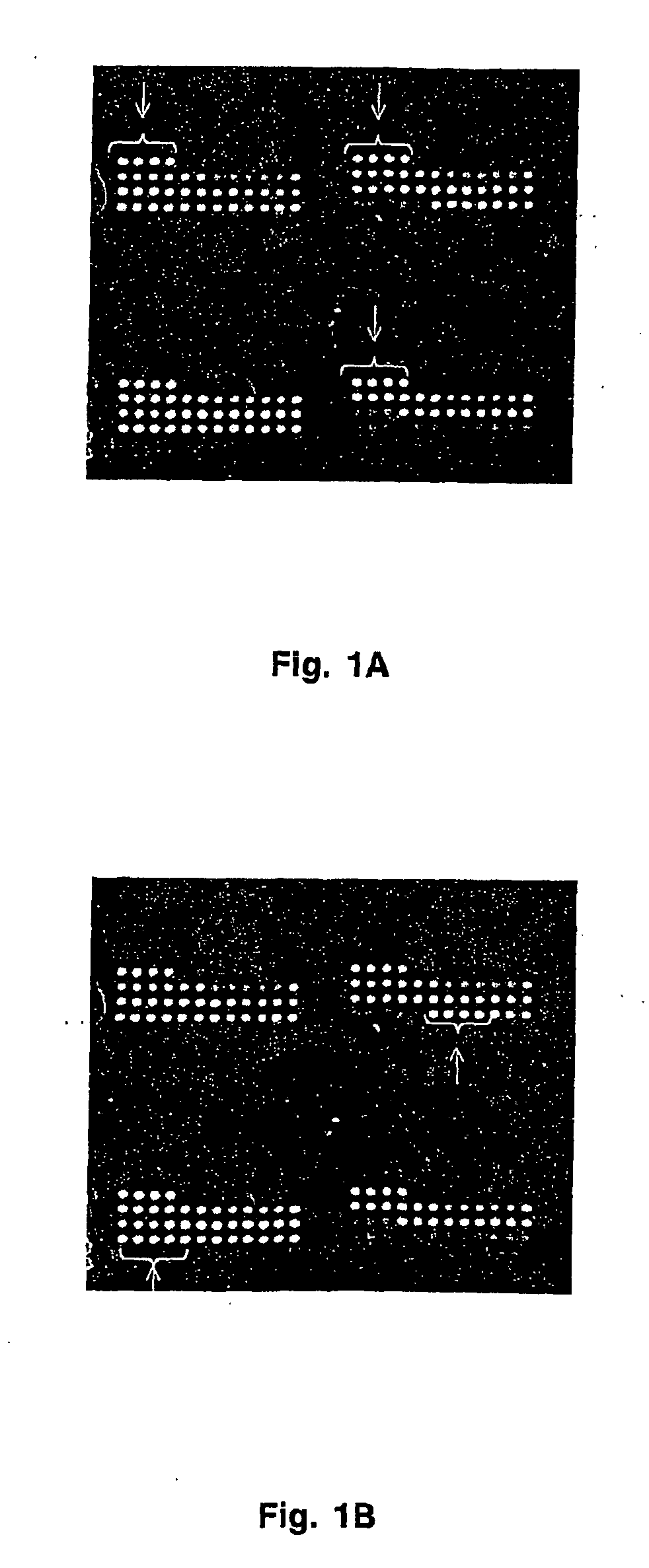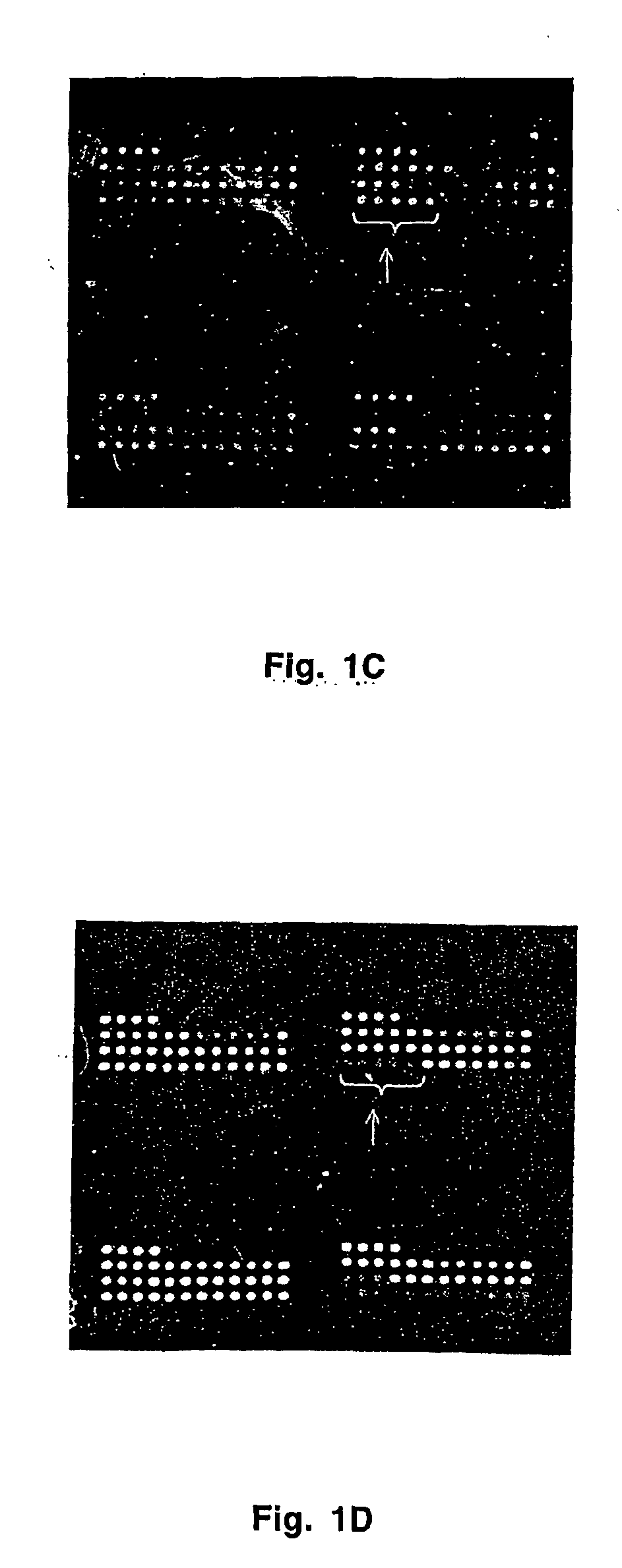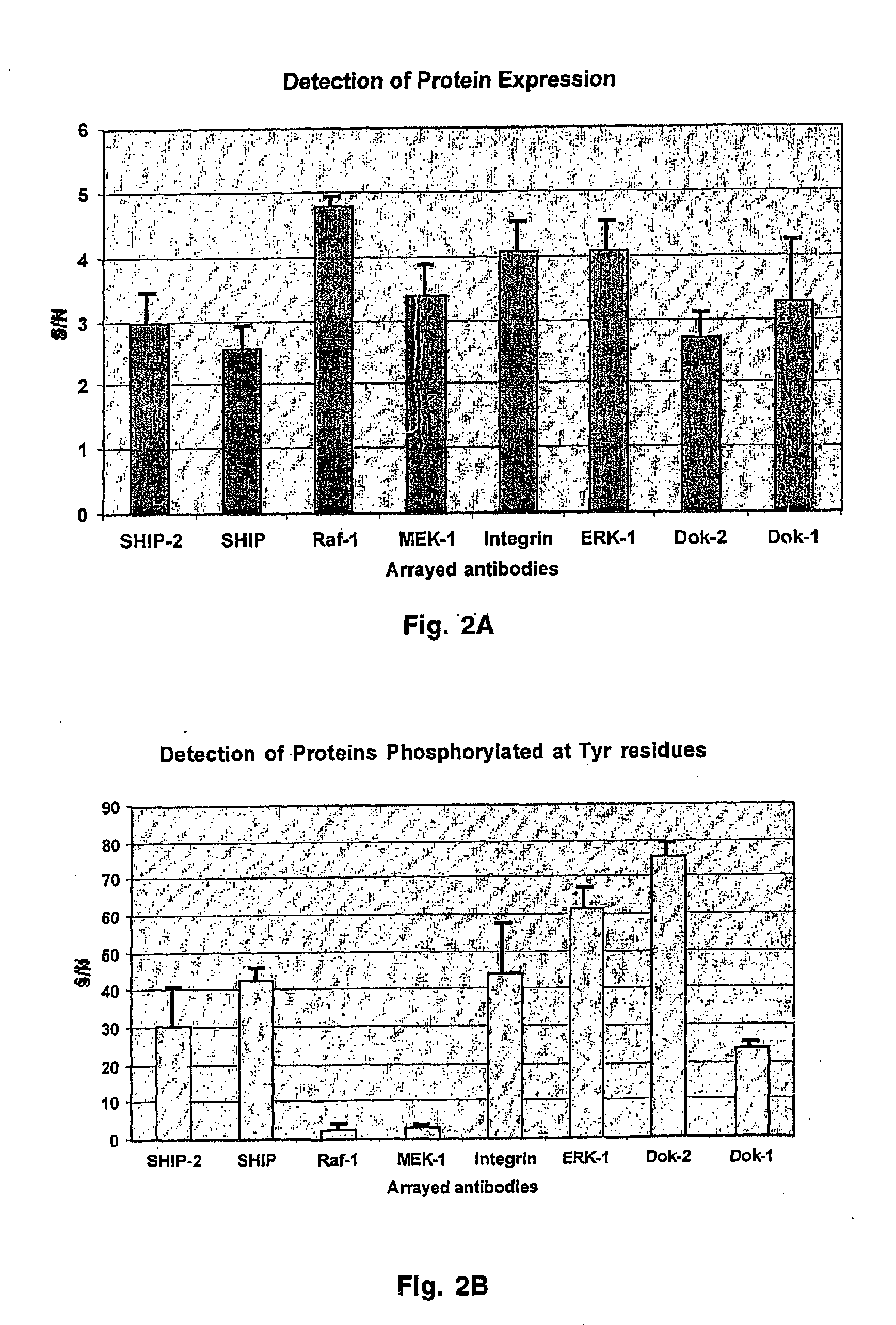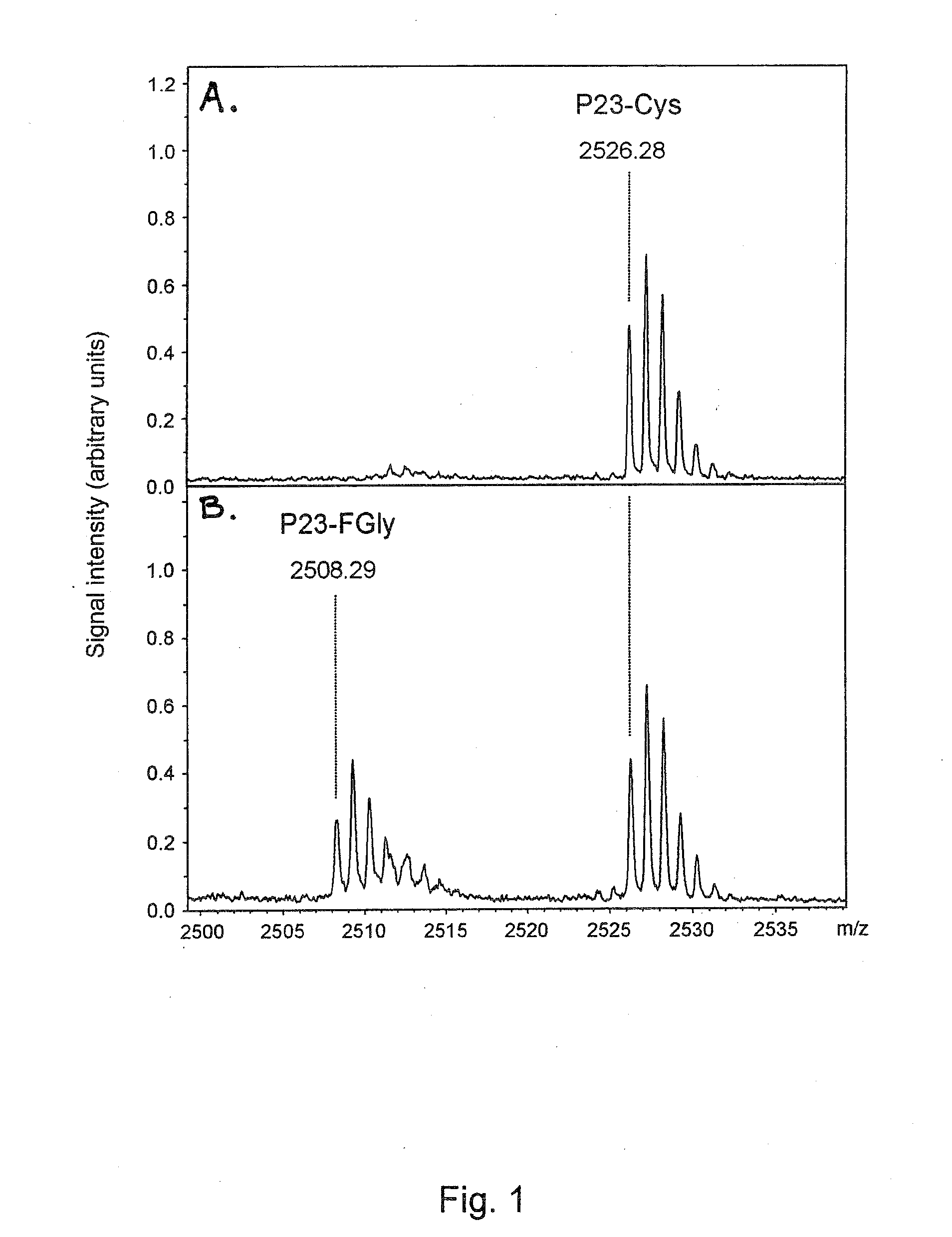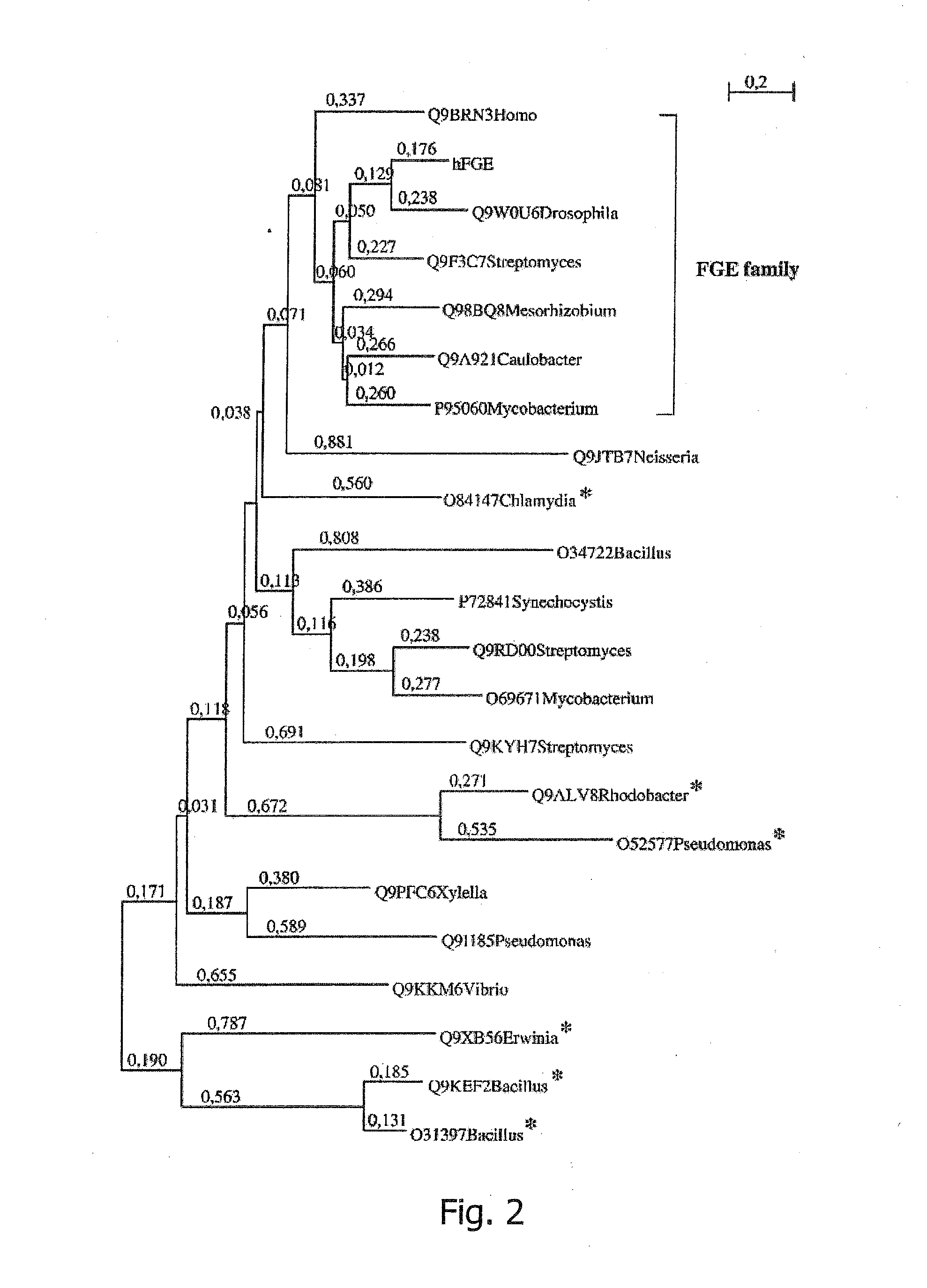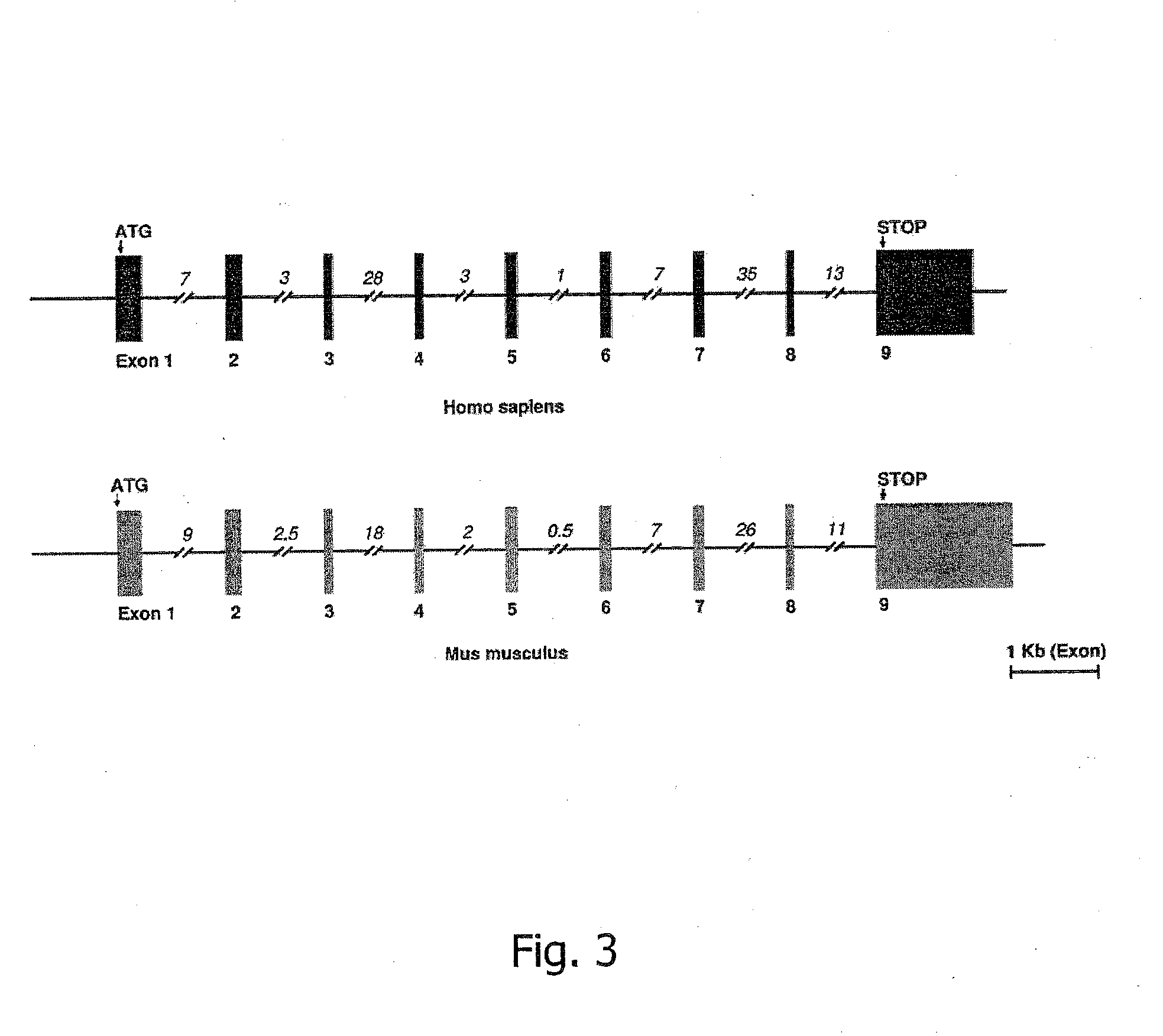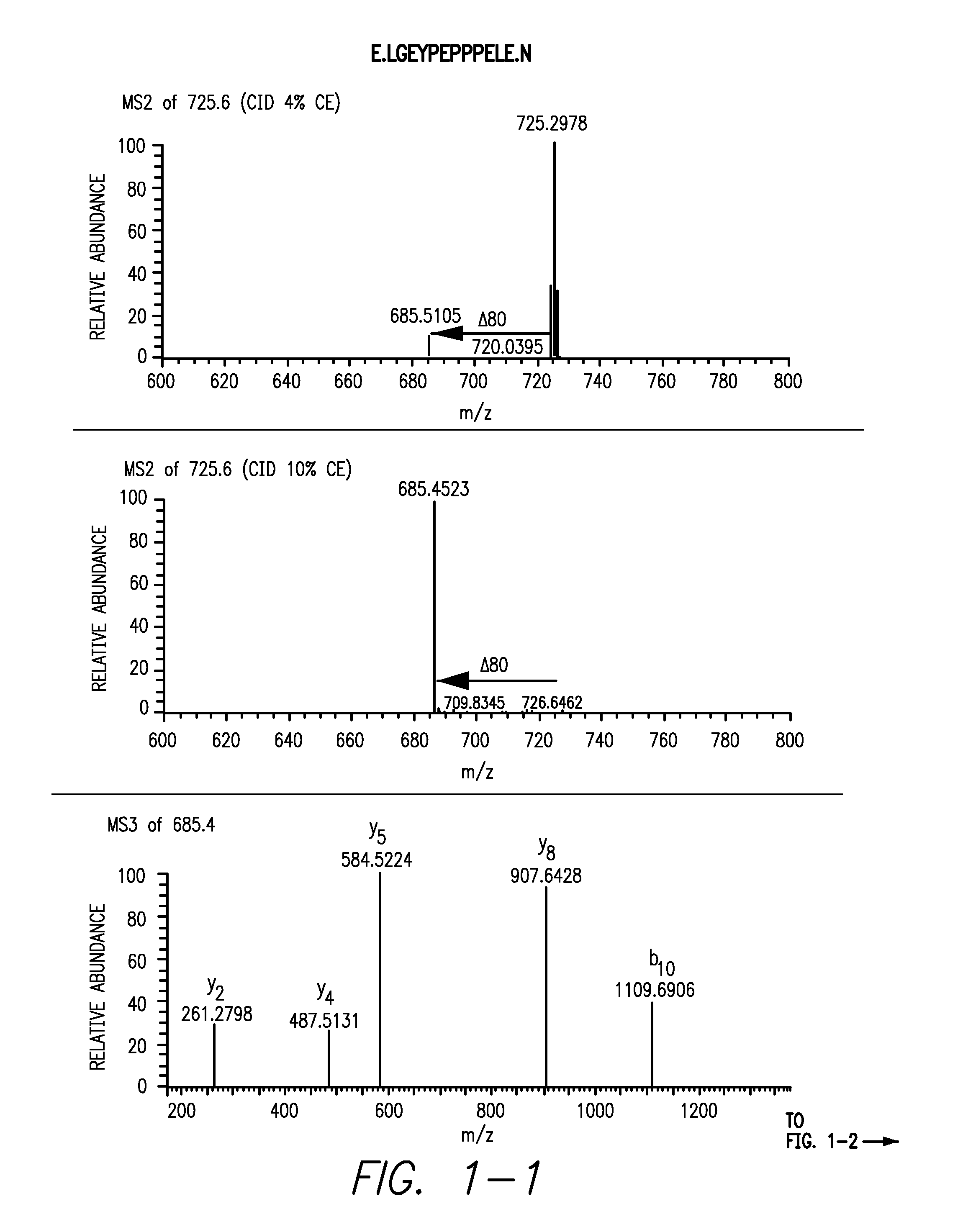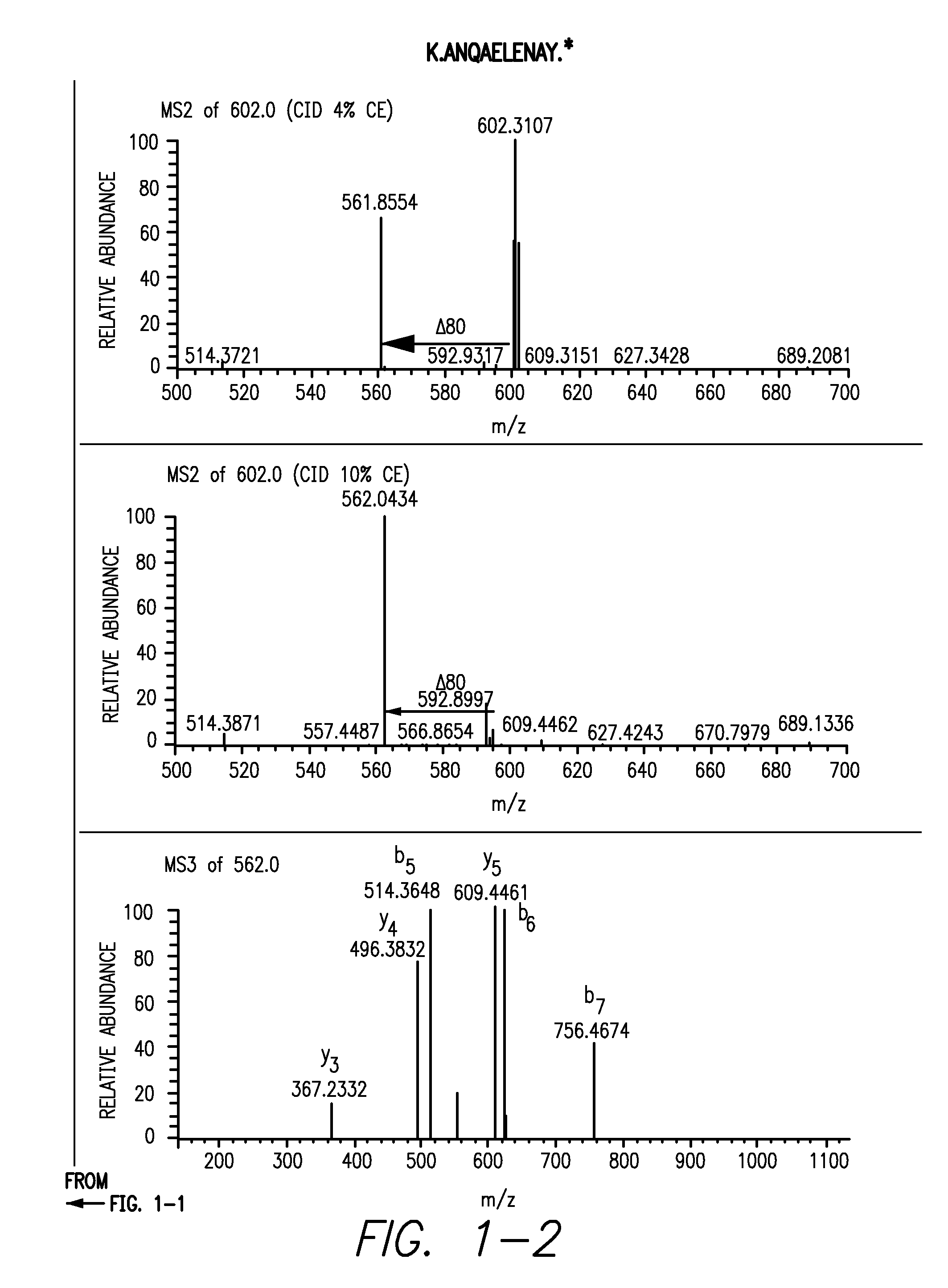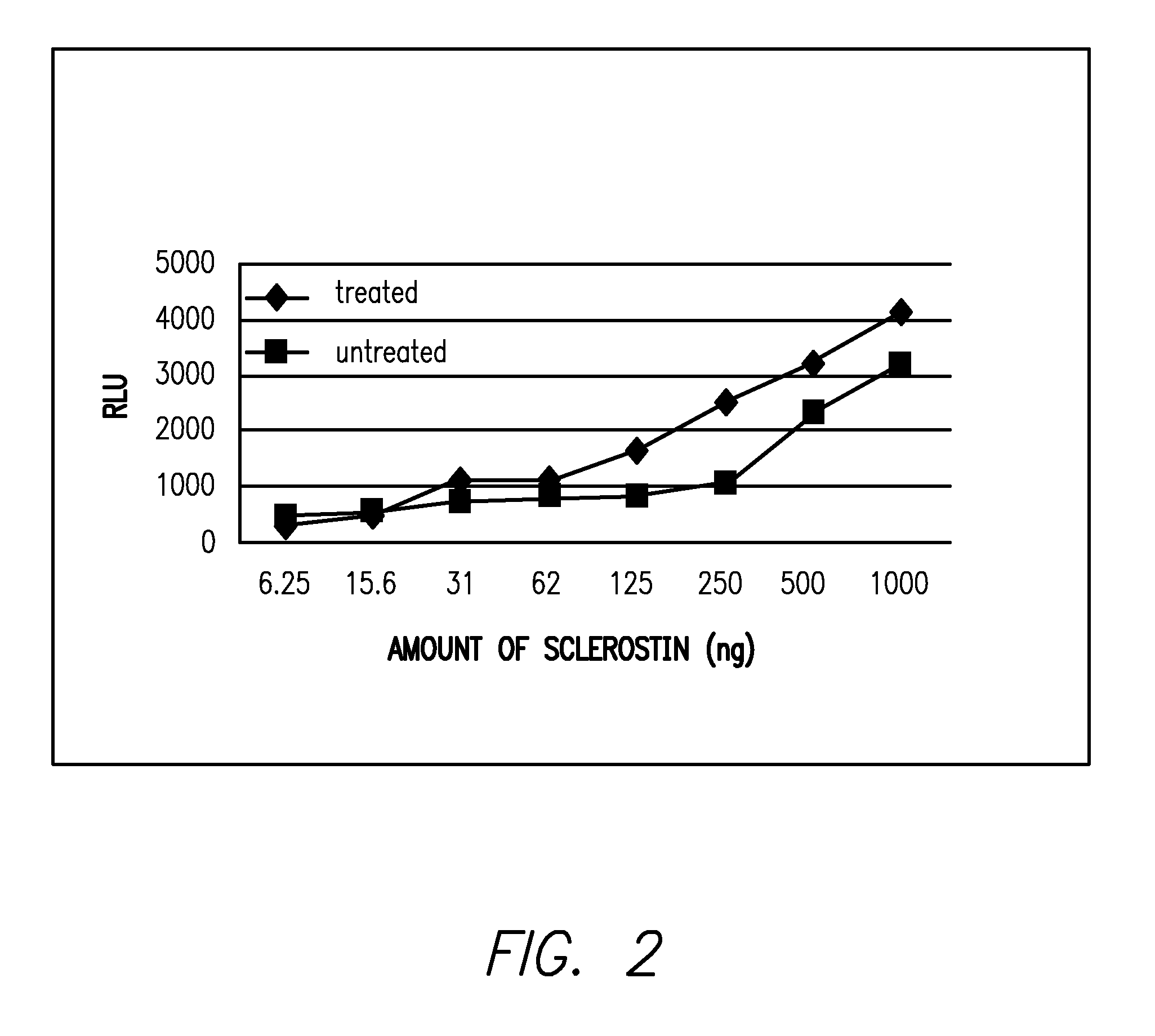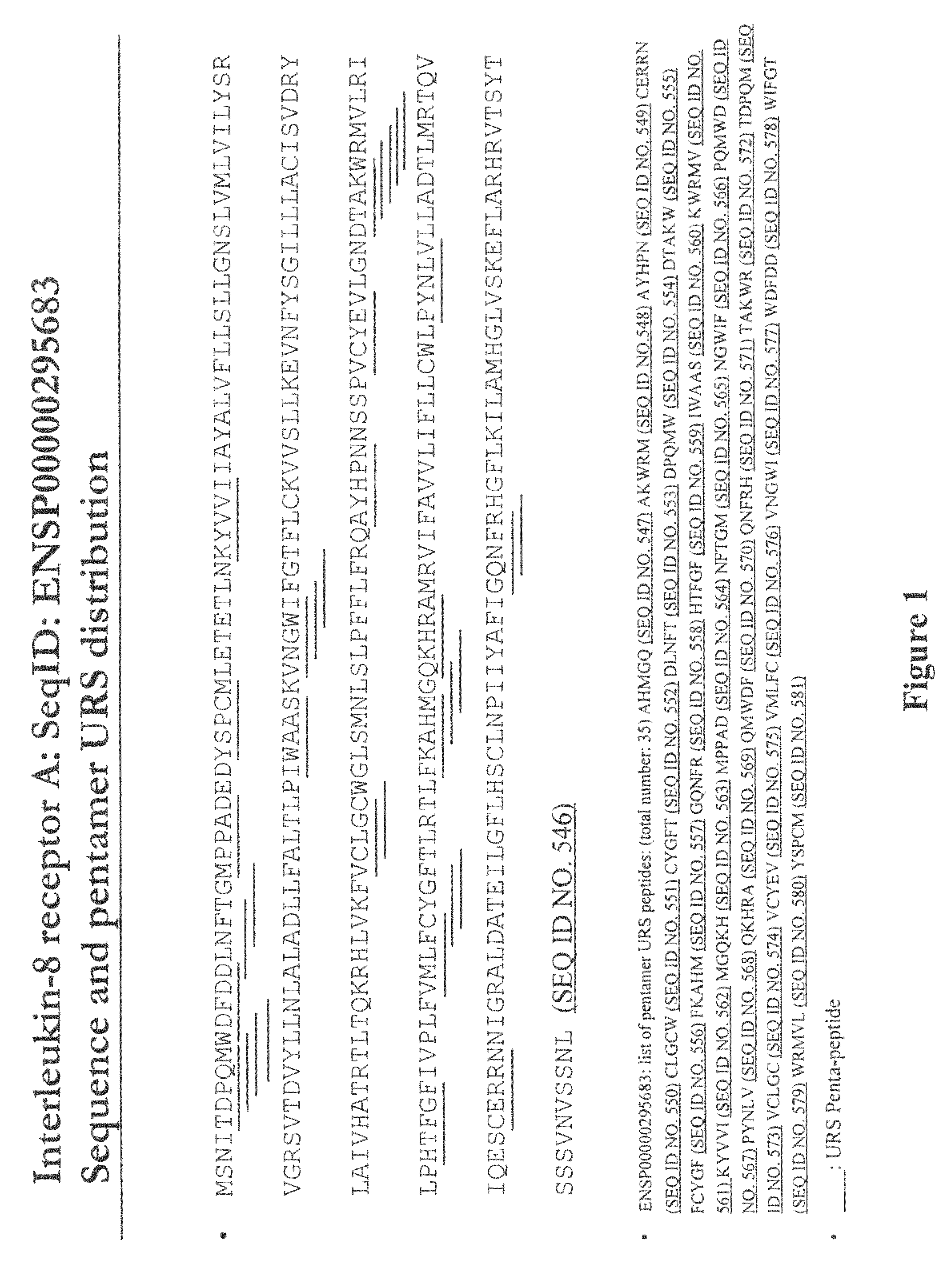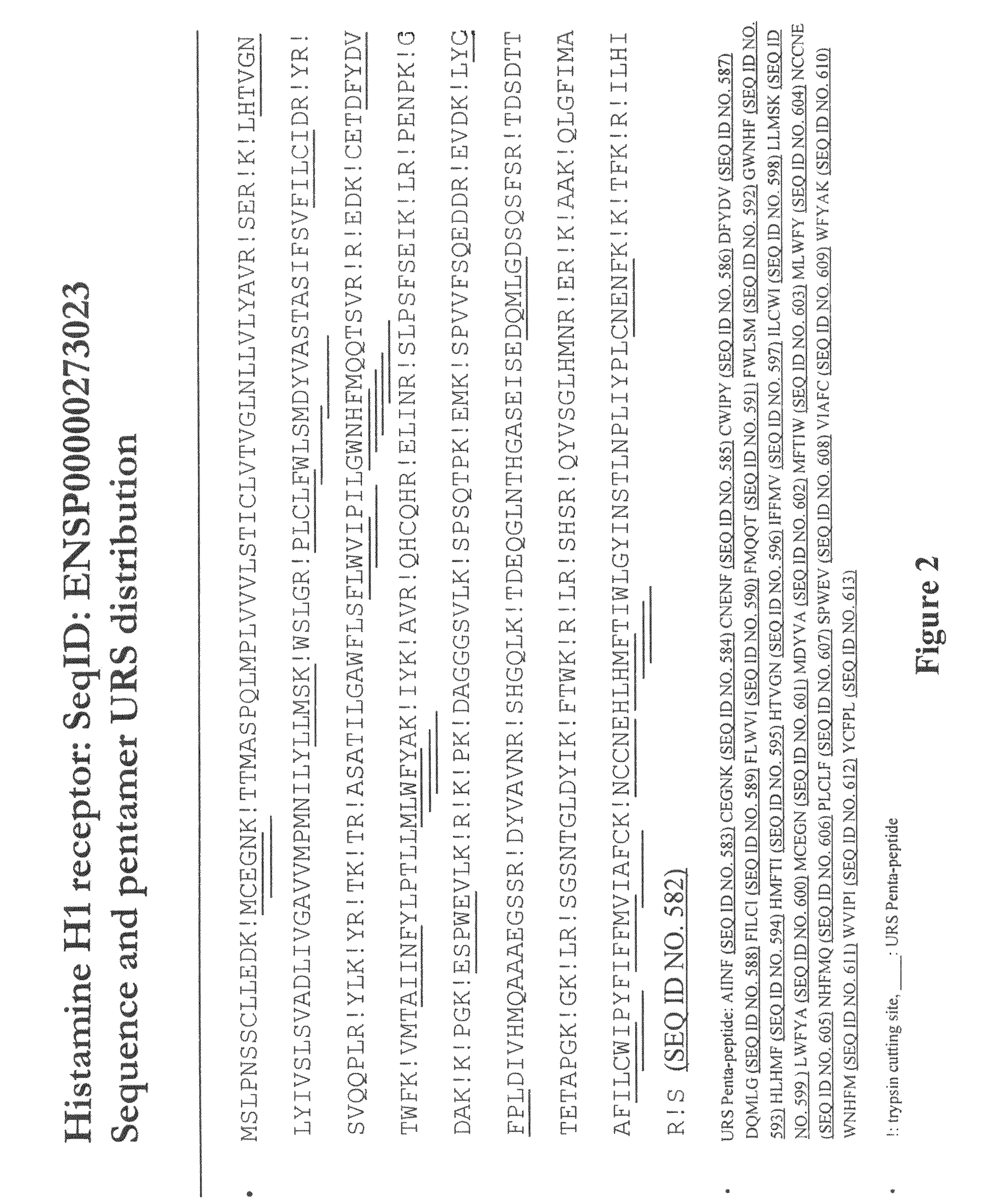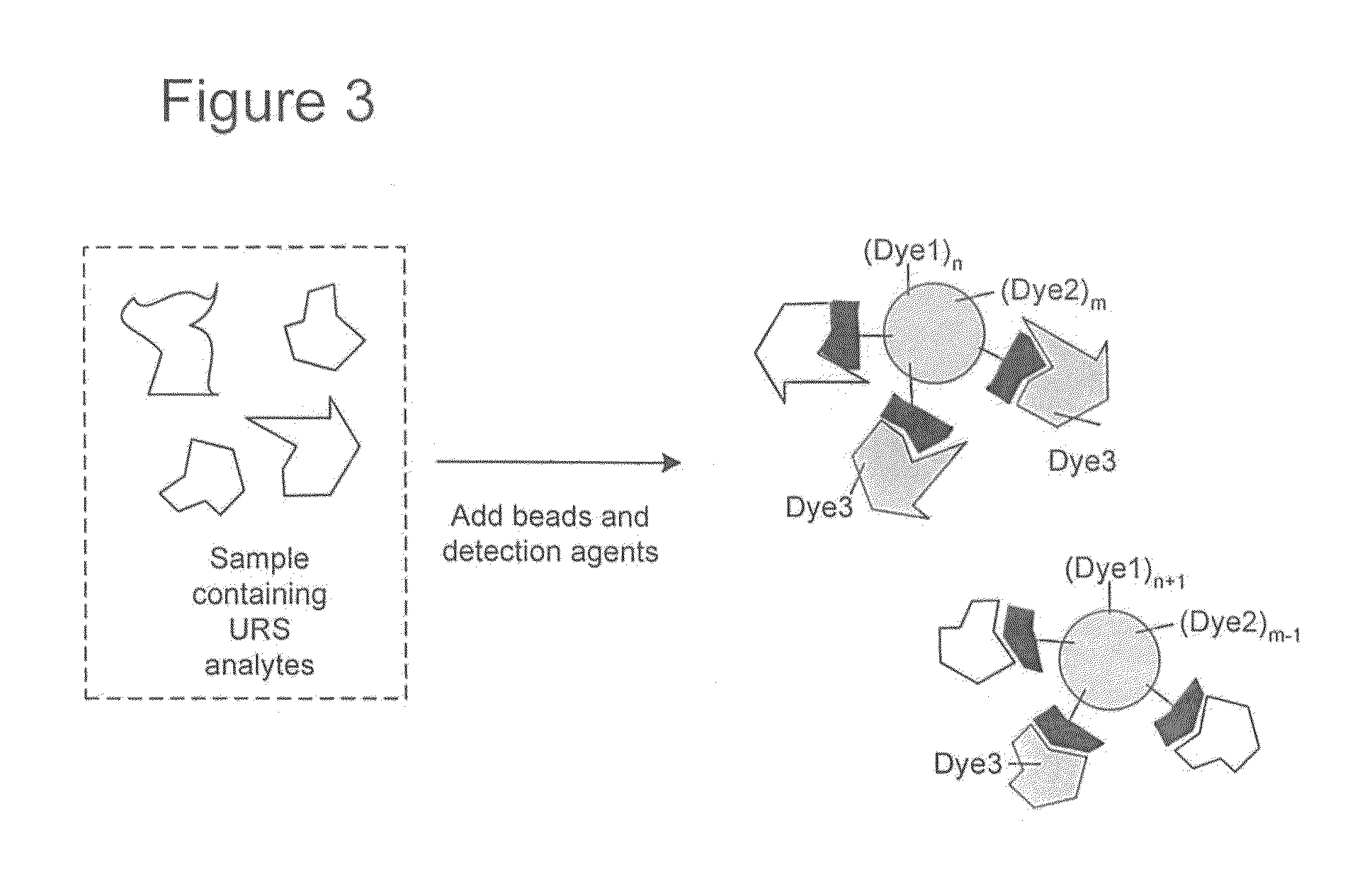Patents
Literature
182 results about "Post translational" patented technology
Efficacy Topic
Property
Owner
Technical Advancement
Application Domain
Technology Topic
Technology Field Word
Patent Country/Region
Patent Type
Patent Status
Application Year
Inventor
Post Translational Modification. Post translational modifications refer to any alteration in the amino acid sequence of the protein after its synthesis. It may involve the modification of the amino acid side chain, terminal amino or carboxyl group by means of covalent or enzymatic means following protein biosynthesis.
Advanced drug development and manufacturing
X-ray fluorescence (XRF) spectrometry has been used for detecting binding events and measuring binding selectivities between chemicals and receptors. XRF may also be used for estimating the therapeutic index of a chemical, for estimating the binding selectivity of a chemical versus chemical analogs, for measuring post-translational modifications of proteins, and for drug manufacturing.
Owner:RGT UNIV OF CALIFORNIA
Methods for increasing the efficiency of recombinant AAV product
InactiveUS6548286B1Altering the stability of REP mRNAShort lifeGenetic material ingredientsVirus peptidesPost translationalStable cell line
The present invention relates to methods and compositions for increasing the production of high titre stocks of recombinant AAV (rAAV) through regulation of expression of the AAV REP and CAP proteins. The methods and compositions of the invention are based on the observation that the low level expression of the AAV REP protein increases the production of AAV viral capsid protein and efficiency of packaging resulting in production of higher titre recombinant viral stocks. The invention encompasses recombinant AAV vectors that direct the expression of AAV REP and CAP proteins and the use of such vectors for the production of novel stable cell lines capable of generating high titre rAAV vectors. The invention provides methods for regulating the expression of the AAV REP gene at the transcriptional and post-translational level. The methods and compositions of the invention can be used to produce high titre stocks of rAAV which can be used in gene therapy for the purpose of transferring genetic information into appropriate host cells for the management and correction of human diseases including inherited and acquired disorders.
Owner:CELLS GENESYS INC +1
Ribosome complexes as selection particles for in vitro display and evolution of proteins
The invention provides a method of displaying nascent proteins or peptides as complexes with eukaryotic ribosomes and the mRNA encoding the protein or peptide following transcription and translation in vitro, of further selecting complexes carrying a particular nascent protein or peptide by means of binding to a ligand, antigen or antibody, and of subsequently recovering the genetic information encoding the protein or peptide from the selected ribosome complex by reverse transcription and polymerase chain reaction (RT-PCR). The RT-PCR recovery step is carried out directly on the intact ribosome complex, without prior dissociation to release the mRNA, thus contributing to maximal efficiency and sensitivity. The steps of display, selection and recovery can be repeated in consecutive cycles. The method is exemplified using single-chain antibody constructs as antibody-ribosome-mRNA complexes (ARMs).
Owner:CRESCENDO BIOLOGICS
Proteome epitope tags and methods of use thereof in protein modification analysis
InactiveUS20060014212A1High clinical application valueReliable detectionLibrary screeningNanoinformaticsEpitopePost translational
Disclosed are reagents and methods for reliably detecting the presence and measuring the amount of proteins, including proteins with various post-translational modifications (phosphorylation, glycosylation, methylation, acetylation, etc.) in a sample by the use of one or more capture agents that recognize and interact with recognition sequences uniquely characteristic of a protein or a set of proteins (Proteome Epitope Tags, or PETs) in the sample. Arrays comprising these capture agents or PETs are also provided.
Owner:EPITOME BIOSYST
Automated identification of peptides
InactiveUS20020102610A1Quick identificationCharacter and pattern recognitionBiological testingPresent methodPost translational
A fully automated, user-independent method is described for computer-mediated interpretation of data derived by mass spectrometry of an experimental peptide to identify and characterize a corresponding peptide sequence in a peptide database. The method identifies the corresponding sequence if it is present in the database, without the need for a skilled observer to choose from amongst a list of possible matches. By using an automated back-read process, the present method can uniquely identify a corresponding peptide sequence in a database based on a single matching peptide sequence. The method also permits mapping of mass spectral data to sequences in peptide or nucleotide databases for unambiguous identification of exons; determining a correct reading frame; identifying artefacts and errors in sequences; identifying mutations and polymorphisms; identifying post-translational modifications; and identifying exon-intron boundaries.
Owner:OXFORD GLYCOSCI UK
Method and compositions for the detection of protein glycosylation
ActiveUS20050130235A1Sugar derivativesMicrobiological testing/measurementPost translationalProtein insertion
The invention provides methods and compositions for the rapid and sensitive detection of post-translationally modified proteins, and particularly of those with post-translational glycosylations. The methods can be used to detect O-GlcNAc posttranslational modifications on proteins on which such modifications were undetectable using other techniques. In one embodiment, the method exploits the ability of an engineered mutant of β-1,4-galactosyltransferase to selectively transfer an unnatural ketone functionality onto O-GlcNAc glycosylated proteins. Once transferred, the ketone moiety serves as a versatile handle for the attachment of biotin, thereby enabling detection of the modified protein. The approach permits the rapid visualization of proteins that are at the limits of detection using traditional methods. Further, the preferred embodiments can be used for detection of certain disease states, such as cancer, Alzheimer's disease, neurodegeneration, cardiovascular disease, and diabetes.
Owner:CALIFORNIA INST OF TECH
Post-translational modifications and Clostridial neurotoxins
InactiveUS7223577B2Increase and decrease persistenceIncrease or decrease stabilityPeptide/protein ingredientsDepsipeptidesDiseasePost translational
The present invention discloses modified neurotoxins with altered biological persistence. In one embodiment, the modified neurotoxins are derived from Clostridial botulinum toxins. Such modified neurotoxins may be employed in treating various conditions, including but not limited to muscular disorders, hyperhidrosis, and pain.
Owner:ALLERGAN INC
Multiple mechanisms for modulation of the pi3 kinase pathway
InactiveUS20100233733A1Microbiological testing/measurementDisease diagnosisPost translationalPI3 Kinases
An embodiment of the present invention is a method for measuring the post translational states and expression levels of proteins in the PI3K and / or mTor for use in diagnosis, prognosis and drug screening applications.
Owner:NODALITY
Modified beta-lactamase and method for its preparation
The invention relates to targeted post translational modifi-cation of metallo-beta-lactamase by truncation and inser-tion of a dipeptide at the amino terminal end to reduce amino terminal heterogeneity in a recombinant DNA pro-duction system. A protein K-T-E-ΔBL is expressed, and modified by host proteases to E-ΔBL. Appropriate nucleotide molecules, vectors and hosts are also de-scribed. E-ΔBL is useful in a pharmaceutical composition for treating antibiotic induced adverse effects in the intes-tine of patients treated with beta-lactam antibiotics.
Owner:SYNTHETIC BIOLOGICS INC
Pharmacological profiling of drugs with cell-based assays
InactiveUS20060040338A1Enable optimizationBioreactor/fermenter combinationsCompound screeningPost translationalAssay
The instant invention provides a method for establishing safety profiles for chemical compounds, as well as pharmacological profiling said method comprising (A) testing the effects of said chemical compounds on the amount and / or post-translational modifications of two or more macromolecules in intact cells; (B) constructing a pharmacological profile based on the results of said tests; and (C) comparing said profile to the profile(s) of drugs with established safety characteristics. Additionally, the invention is also directed to a composition comprising an assay panel, said panel comprising at least one high-content assay for the amount and / or post-translational modification of a protein and at least one high-content assay for the amount and / or subcellular location of a protein-protein interaction.
Owner:ODYSSEY THERA INC
Optical probes and assays
Owner:LIFE TECH CORP
Method for increasing the efficiency of recombinant AAV production
InactiveUS6037177AReduce expressionIncreased of replicationArtificial cell constructsVertebrate cellsPost translationalTiter
The present invention relates to methods and compositions for increasing the production of high titre stocks of recombinant AAV (rAAV) through regulation of expression of the AAV REP and CAP proteins. The methods and compositions of the invention are based on the observation that the low level expression of the AAV REP 78 / 68 protein increases the production of AAV viral capsid protein and efficiency of packaging resulting in production of higher titre recombinant viral stocks. The invention encompasses recombinant AAV vectors that direct the expression of AAV REP and CAP proteins and the use of such vectors for the production of novel stable cell lines capable of generating high titre rAAV vectors. The invention provides methods for regulating the expression of the AAV REP 78 / 68, REP 40 / 52 and CAP gene at the transcriptional and post-translational level. The methods and compositions of the invention can be used to produce high titre stocks of rAAV which can be used in gene therapy for the purpose of transferring genetic information into appropriate host cells for the management and correction of human diseases including inherited and acquired disorders.
Owner:CELLS GENESYS INC
Compositions and Methods for Detection, Prognosis and Treatment of Breast Cancer
InactiveUS20090118175A1Improved prognosisOrganic active ingredientsSugar derivativesDiseasePost translational
The present invention relates to methods of detection, prognosis and treatment of breast cancer using a plurality genes or gene products present in normal and neoplastic cells, tissues and bodily fluids. Gene products relate to compositions comprising the nucleic acids, polypeptides, antibodies, post translational modifications (PTMs), variants, derivatives, agonists and antagonists of the invention and methods for the use of these compositions. Additional uses include identifying, monitoring, staging, imaging and treating cancer and non-cancerous disease states in breast as well as determining the effectiveness of therapies alone or in combination for an individual. Therapies include gene therapy, therapeutic molecules including but not limited to antibodies, small molecules and antisense molecules.
Owner:MACINA ROBERTO A
Method and compositions for the detection of protein glycosylation
The invention provides methods and compositions for the rapid and sensitive detection of post-translationally modified proteins, and particularly of those with post-translational glycosylations. The methods can be used to detect O-GlcNAc post-translational modifications on proteins on which such modifications were undetectable using other techniques. In one embodiment, the method exploits the ability of an engineered mutant of β-1,4-galactosyltransferase to selectively transfer an unnatural ketone functionality onto O-GlcNAc glycosylated proteins. Once transferred, the ketone moiety serves as a versatile handle for the attachment of biotin, thereby enabling detection of the modified protein. The approach permits the rapid visualization of proteins that are at the limits of detection using traditional methods. Further, the preferred embodiments can be used for detection of certain disease states, such as cancer, Alzheimer's disease, neurodegeneration, cardiovascular disease, and diabetes.
Owner:CALIFORNIA INST OF TECH
High-throughput screening of expressed DNA libraries in filamentous fungi
InactiveUS7122330B2Minimizes and eliminates formationLow culture viscosityHydrolasesAntibody mimetics/scaffoldsBiotechnologyCDNA library
The invention provides a method for the expression of exogenous DNA libraries in filamentous fungi. The fungi are capable of processing intron-containing eukaryotic genes, and also can carry out post-translational processing steps such as glyclosylation and protein folding. The invention provides for the use of fungi with altered morphology, which permits high-throughput screening and directed molecular evolution of expressed proteins. The same transformed fungi may be used to produce larger quantities of protein for isolation, characterization, and application testing, and may be suitable for commercial production of the protein as well.
Owner:DANISCO US INC +1
Post translational modification pattern analysis
InactiveUS20100331200A1Increase flexibilityReliably retrievedLibrary screeningBiological testingPost translationalProtein target
This invention relates to methods and apparatus for detecting the pattern of post translational modification in a protein or in a plurality of proteins in a sample. One or more target proteins are subjected to predetermined proteolysis to yield plural peptide fragments comprising potential post translational modification sites. The fragments and the state of such sites are analyzed to yield a post translational pattern for the protein or proteins.
Owner:MILLIPORE CORP
Method for the production of fusion proteins in transgenic mammal milk
InactiveUS20060105347A1Short timeEfficient productionFungiPeptide/protein ingredientsHalf-lifeBiocompatibility Testing
Desirable fusion proteins can be produced in and purified from the milk of transgenic animals. The peptides are made as fusion proteins with a suitable fusion partner such as human alpha-fetoprotein. The fusion partner protein acts to promote and increase the half-life of the overall molecule as well as having therapeutic effects on its own. The fusion protein is typically produced through the use of transgenic animals and can be purified away from the now the milk or other bodily fluid of such an animal by an affinity purification method. A particular advantage of producing peptides via this route, in addition to the obvious advantages of high yield and biocompatibility, is that specific post-translational modifications, such as carboxy terminal amidation, can be performed in the mammary gland. Biologically active polypeptides comprising a therapeutically active polypeptide fused to human alpha-fetoprotein fragment or a variant thereof, methods for the preparation thereof, nucleotide sequences encoding such fusion polypeptides, expression cassettes comprising such nucleotide sequences, self-replicating plasmids containing such expression cassettes, and pharmaceutical compositions containing said fusion polypeptides.
Owner:GTC BIOTHERAPEUTICS INC
Complex formation for the stabilisation and purification of proteins of interest
InactiveUS20050059053A1Increase volumeReduce degradation rateAntibody mimetics/scaffoldsVaccinesAntigenPost translational
A method is described for altering the properties such as the accumulation, the stability and / or integrity, the subcellular localisation, the post-translational modifications, the ability to get purified, and the phase partitioning behaviour of natural or recombinant target proteins expressed in a host organism. The method involves the co-expression of natural or recombinant proteins along with a specific binding partner that sequesters the target recombinant protein into a complex. The binding partner is supplied as a separate protein allowing formation of intermolecular complexes or is fused to the protein of interest, allowing the formation of intramolecular complexes. The binding partner can also be used to alter the subcellular localisation without modifying the sequence or structure of the target protein itself. This can be achieved by either incorporating appropriate targeting signals into the binding ligand, which are then linked to the target protein through complex formation, or complex formation itself may alter the subcellular localisation. The same strategy can be used to provide an affinity tag to facilitate protein purification. The principle of the invention is demonstrated by the coexpression of an unstable antibody and its cognate antigen.
Owner:FRAUNHOFER GESELLSCHAFT ZUR FOERDERUNG DER ANGEWANDTEN FORSCHUNG EV
Cell that expresses a sulfatase and a formylglycine generating enzyme
This invention relates to methods and compositions for the diagnosis and treatment of Multiple Sulfatase Deficiency (MSD) as well as other sulfatase deficiencies. More specifically, the invention relates to isolated molecules that modulate post-translational modifications on sulfatases. Such modifications are essential for proper sulfatase function.
Owner:TAKEDA PHARMA CO LTD
Diagnostic method based on large scale identification of post-translational modification of proteins
InactiveUS20100160177A1Quick filterLibrary screeningDisease diagnosisPost translationalDisease cause
Methods for the large scale identification of post-translational modification states of proteins and enzyme activities for carrying out post-translational modification reactions involve the analysis of functional extracts from fresh and frozen samples using protein arrays. The methods and kits of the present invention can be used to analyze and characterize compounds for their effects on post-translational modifications and their pathways. The methods and kits can also be used to diagnose and characterize a wide variety of diseases and medical conditions, including cancer, neurodegenerative diseases, immune diseases, infectious diseases, genetic diseases, metabolic conditions, and drug effects using cells or body fluids of a patient.
Owner:PRESIDENT & FELLOWS OF HARVARD COLLEGE
Induction of tolerance to a therapeutic polypeptide
Liver-directed gene transfer can induce immunological tolerance to a polypeptide associated with the expression of a therapeutic nucleic acid. Hepatic expression of a transgene induces tolerance to the expression product of the transgene, or to post-translational product related to transgene expression, thereby ameliorating or eliminating the immune responses associated with gene therapy and protein replacement, respectively, independent of the genetic background of the subject.
Owner:THE CHILDRENS HOSPITAL OF PHILADELPHIA
Proteome epitope tags and methods of use thereof in protein modification analysis
InactiveUS20090023157A1Improvement in predictive value and sensitivity and reproducibilityHigh sensitivityMicrobiological testing/measurementNanoinformaticsEpitopePost translational
Disclosed are methods for reliably detecting the presence of proteins, especially proteins with various post-translational modifications (phosphorylation, glycosylation, methylation, acetylation, etc.) in a sample by the use of one or more capture agents that recognize and interact with recognition sequences uniquely characteristic of a set of proteins (Proteome Epitope Tags, or PETs) in the sample. Arrays comprising these capture agents or PETs are also provided.
Owner:MILLIPORE CORP
Chemical derivatization, detection, and identification of peptide and protein modifications
InactiveUS20070099256A1Microbiological testing/measurementBiological testingPost translationalActivity profiling
Embodiments of the present invention provide devices and methods for detecting, identifying, distinguishing, and quantifying modification states of peptides using Surface Enhanced Raman Spectroscopy (SERS) and Raman spectroscopy. Additional embodiments provide strategies for chemically derivatizing post-translational modifications and detecting the chemically derivatized products using SERS. Applications of embodiments of the present invention include proteome wide modification profiling and analyses with applications in disease diagnosis, prognosis and drug efficacy studies, enzymatic activity profiling and assays.
Owner:INTEL CORP
Automated identification of peptides
InactiveUS6963807B2Quick identificationCharacter and pattern recognitionBiological testingPost translationalPresent method
A fully automated, user-independent method is described for computer-mediated interpretation of data derived by mass spectrometry of an experimental peptide to identify and characterize a corresponding peptide sequence in a peptide database. The method identifies the corresponding sequence if it is present in the database, without the need for a skilled observer to choose from amongst a list of possible matches. By using an automated back-read process, the present method can uniquely identify a corresponding peptide sequence in a database based on a single matching peptide sequence. The method also permits mapping of mass spectral data to sequences in peptide or nucleotide databases for unambiguous identification of exons; determining a correct reading frame; identifying artefacts and errors in sequences; identifying mutations and polymorphisms; identifying post-translational modifications; and identifying exon-intron boundaries.
Owner:OXFORD GLYCOSCI UK
Production of recombinant therapeutic bioscavengers against chemical and biological agents
InactiveUS20070111279A1PotentSafe and simple mechanismAnimal cellsSugar derivativesPost translationalIn vivo
This application provides a method to produce recombinant bioscavenger molecules to be used as human treatments to protect against toxicity resulting from exposure to chemical / biological agent toxins or drugs. This invention relates to the production of glycoproteins that exhibit poor stability in vivo and are thus inadequate as therapeutic treatments without the additional post-translational modifications of the expressed molecules. In one embodiment, the method combines molecular and biochemical technologies; first for the expression of recombinant molecules and second for the in vitro glycoslyation of the purified or partially purified expressed molecules, intended to mimic the glycoprotein profiles of the native molecules. In another embodiment, post-translation modifications can be provided by direct genetic modification of the cells used in the protein expression system. Although the invention is intended for in vivo use, the invention allows for decontamination in vitro. The establishment of recombinant detoxification agents has applications in numerous terrorist, drug, and environmental scenarios involving military and civilian welfare.
Owner:PROCELL
Human cancer stem cell culture compositions comprising Erbb2 variants and methods of use thereof
The present invention provides compositions and methods for the culture and maintenance of cancer stem cells. More particularly, the present invention provides the identification of cancer stem cell specific markers and methods of recognizing the same for the detection of tumors, for facilitating the prognosis of a patient with a tumor, and for the treatment of various cancers. The invention also provides antibodies that specifically recognize the disulfide linked Erbb2Δ16 homodimer, an Erbb2Δ16 / Erbb3 heterodimer, or post-translational modifications of Erbb2 that are specific to Erbb2 of variant hESCs. In addition, the invention provides a modified defined media useful in the absence of a feeder layer and in the absence of serum or serum replacement, that comprises a basal salt nutrient solution, bFGF, IGF-I, and Activin A, and wherein the composition does not comprise heregulin. The invention further relates to the use of an Erbb2 variant isoform to generate robust cell cultures that are independent of heregulin.
Owner:VIACYTE INC
Protein micro-arrays and multi-layered affinity interaction detection
InactiveUS20050153298A1Improve throughputHigh analysisMicrobiological testing/measurementBiological testingPost translationalHigh flux
The present invention provides proteomic techniques that extend sensitive and quantitative analysis of proteins to post-translational modifications. Protein micro-arrays and / or multiplex coded-microbeads are used in combination with multilayered affinity interaction detection (MAID) methods that permit high throughput analysis of cellular protein modifications and functional protein interactions.
Owner:GEMBITSKY DMITRY S +1
Diagnosis and treatment of multiple sulfatase deficiency and other sulfatase deficiencies
InactiveUS20130028881A1Nervous disorderPeptide/protein ingredientsMultiple sulfatase deficiencyPost translational
This invention relates to methods and compositions for the diagnosis and treatment of Multiple Sulfatase Deficiency (MSD) as well as other sulfatase deficiencies. More specifically, the invention relates to isolated molecules that modulate post-translational modifications on sulfatases. Such modifications are essential for proper sulfatase function.
Owner:SHIRE HUMAN GENETIC THERAPIES INC
Sulfation of wnt pathway proteins
ActiveUS20120071399A1Reduce inhibitionPeptide/protein ingredientsSkeletal disorderCrystallographySulfation
Provided is a composition comprising a peptide comprising amino acids and / or amino acid analogs comprising a continuous sequence of a sclerostin fragment comprising Tyr43 or Tyr213. Also provided is a composition comprising a peptide comprising less than about 75 amino acids and / or amino acid analogs including an amino acid or amino acid analog capable of being sulfated, where the composition is capable of inhibiting sclerostin binding to an LRP. Further provided is a composition comprising a peptide comprising less than about 75 amino acids and / or amino acid analogs including an amino acid or amino acid analog capable of being post-translationally sulfated, where the composition is capable of inhibiting binding of a protein ligand comprising a sulfation site to its binding partner. Additionally provided is a method of enhancing a Wnt signaling pathway comprising contacting an LRP5 / 6 receptor in the Wnt signaling pathway with either of the above-described compositions that comprise a sequence of a sclerostin fragment or is capable of inhibiting sclerostin binding to an LRP, where the tyrosine or tyrosine analog is not sulfated, in a manner sufficient to enhance the Wnt signaling pathway. Further provided is a method of treating a subject having a disease exacerbated by inhibition of a Wnt signaling pathway comprising administering either of the above-described compositions that comprise a sequence of a sclerostin fragment or is capable of inhibiting sclerostin binding to an LRP, where the tyrosine or tyrosine analog is not sulfated, to the subject in a manner sufficient to reduce the inhibition of the Wnt signaling pathway. Also, a method of inhibiting binding of a protein ligand comprising a sulfation site to its binding partner is provided. The method comprises adding the above-described composition that is capable of inhibiting binding of a protein ligand to its binding partner to the protein ligand and its binding partner in a manner sufficient to inhibit binding of the protein ligand to its binding partner.
Owner:ENZO THERAPEUTICS +1
Proteome epitope tags and methods of use thereof in protein modification analysis
InactiveUS7964362B2Improvement in predictive value and sensitivity and reproducibilityHigh sensitivityMicrobiological testing/measurementNanoinformaticsEpitopePost translational
Disclosed are methods for reliably detecting the presence of proteins, especially proteins with various post-translational modifications (phosphorylation, glycosylation, methylation, acetylation, etc.) in a sample by the use of one or more capture agents that recognize and interact with recognition sequences uniquely characteristic of a set of proteins (Proteome Epitope Tags, or PETs) in the sample. Arrays comprising these capture agents or PETs are also provided.
Owner:EMD MILLIPORE CORP
Features
- R&D
- Intellectual Property
- Life Sciences
- Materials
- Tech Scout
Why Patsnap Eureka
- Unparalleled Data Quality
- Higher Quality Content
- 60% Fewer Hallucinations
Social media
Patsnap Eureka Blog
Learn More Browse by: Latest US Patents, China's latest patents, Technical Efficacy Thesaurus, Application Domain, Technology Topic, Popular Technical Reports.
© 2025 PatSnap. All rights reserved.Legal|Privacy policy|Modern Slavery Act Transparency Statement|Sitemap|About US| Contact US: help@patsnap.com
